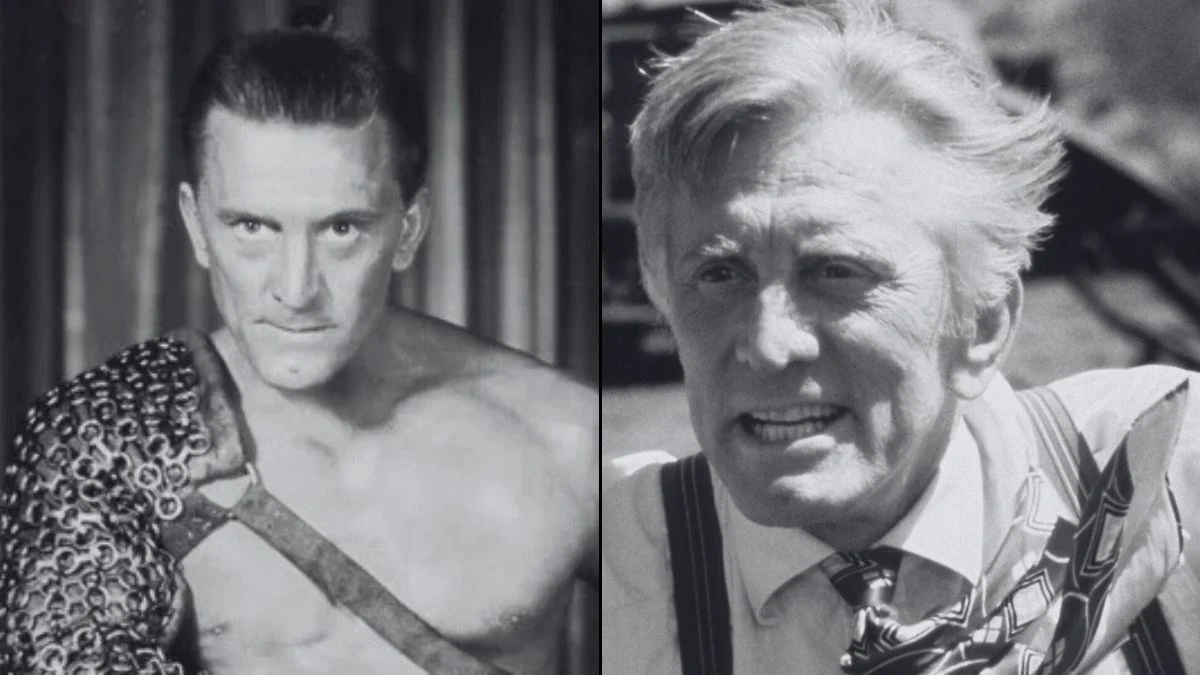
Kirk Douglas, renowned for his dynamic acting style, distinctive rugged features (including a prominent jawline and well-known dimpled chin), was one of the last remaining icons from the era of cinema’s Golden Age. For numerous decades, he was a top earner at the box office due to his popularity. Often portraying intense, hardened characters, Douglas also demonstrated versatility by taking on roles in comedies and dramas as well. Following his film debut in the mid-1940s, he rapidly ascended to stardom with a succession of impactful performances that solidified him as a prominent figure in Hollywood.
Apart from his acclaimed acting roles, Douglas was also a powerful figure behind the scenes as a producer. He established Bryna Productions, enabling him to have greater creative freedom over his film projects. This autonomy led him to produce and star in daring productions such as ‘Paths of Glory’ and ‘Spartacus’. Notably, with ‘Spartacus’, he played a crucial role in dismantling the Hollywood blacklist by openly acknowledging Dalton Trumbo as the screenwriter. His illustrious career, which lasted over six decades, continues to influence cinema significantly.
The Strange Love of Martha Ivers (1946)
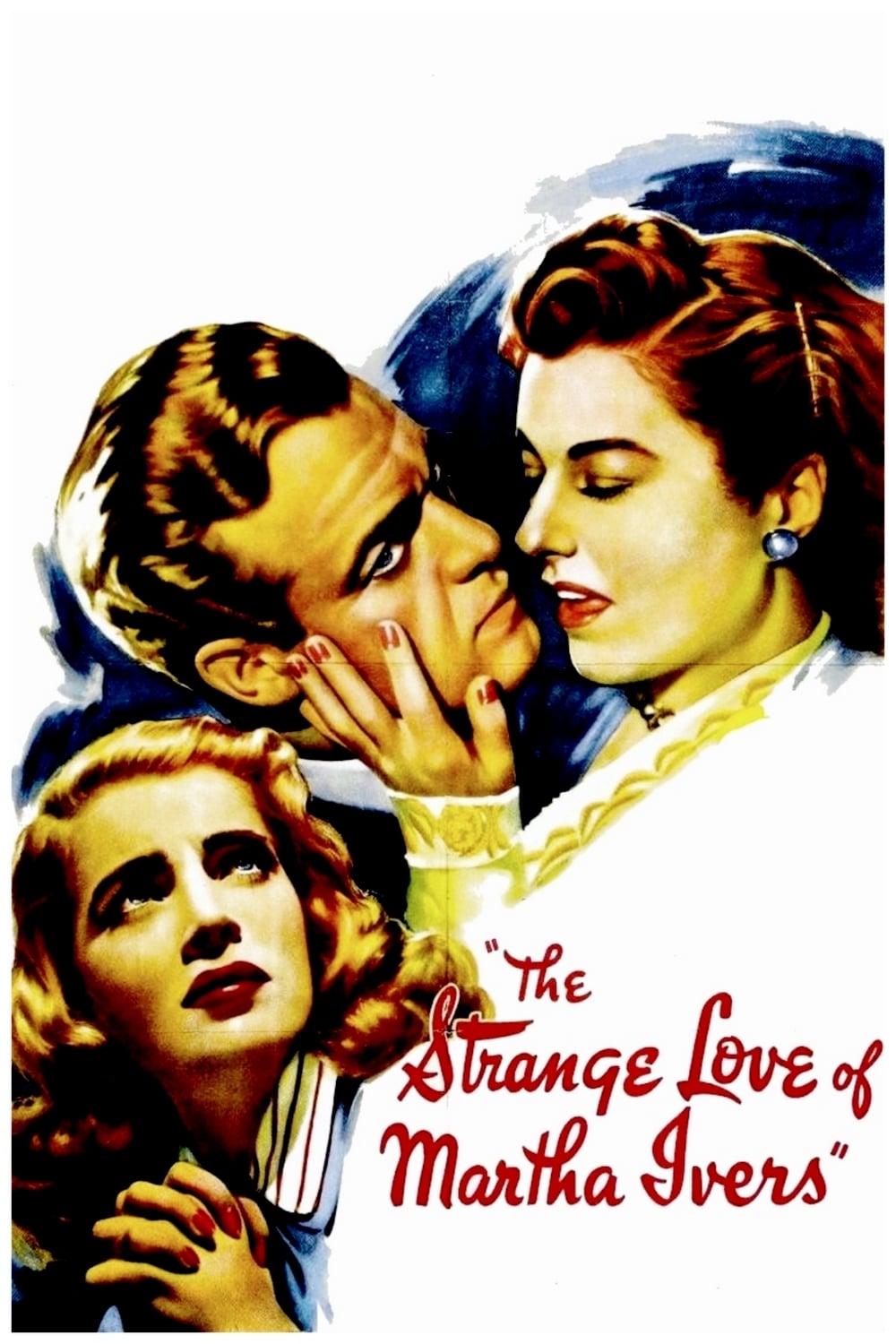
In his first movie role, Douglas portrays Walter O’Neil, a troubled district attorney with a drinking problem, who is married to the wealthy and controlling Martha Ivers. Sharing a haunting secret from their past about the demise of Martha’s aunt, they are joined by a childhood companion named Sam.
Sam’s homecoming could potentially uncover secrets they’ve kept hidden for a long time. Douglas gave an impressive debut with his portrayal of Walter, a weak and tormented character, demonstrating his talent for playing intricate and disturbed roles.
Mourning Becomes Electra (1947)
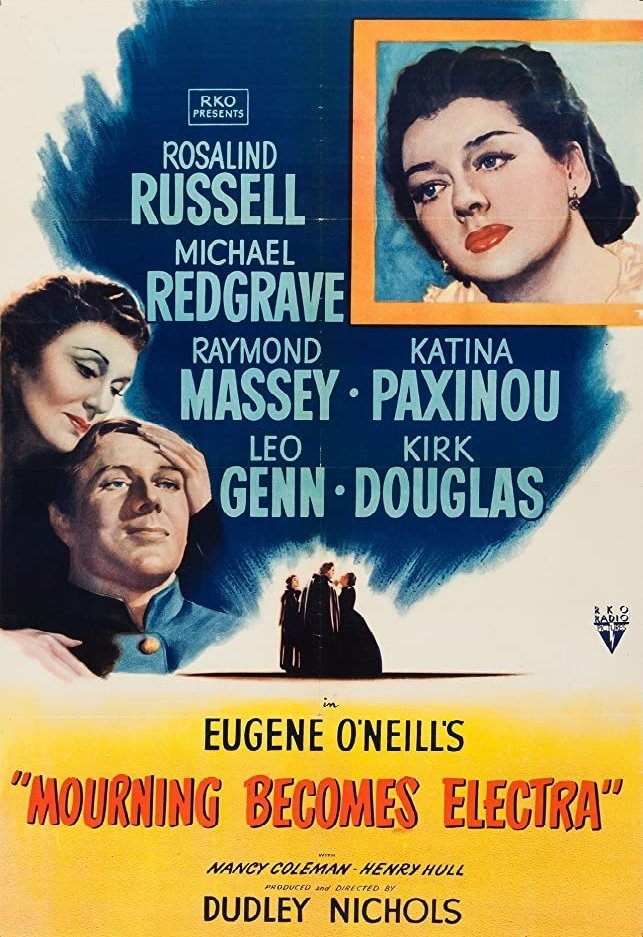
In my humble opinion, this cinematic masterpiece breathes new life into Eugene O’Neill’s timeless adaptation of ‘Oresteia’, an ancient Greek tragedy. I found myself utterly captivated by Douglas’s portrayal of Peter Niles, a character who navigates the treacherous waters of love within the affluent Mannon family of New England.
The narrative unfolds like a gripping thriller, laced with murder, deceit, and psychological turmoil that leaves no stone unturned in dissecting the darkest corners of human emotion. The Mannons’ descent into chaos is as captivating as it is heart-wrenching, offering a chilling reminder of the destructive power of family secrets and unrequited love.
In essence, this film is a must-see for any cinephile seeking a thought-provoking exploration of humanity at its most vulnerable – a modern tragedy that will undoubtedly leave you questioning your own moral compass.
The movie was a lengthy and melancholic drama that didn’t fare well financially at the cinema. Yet, it was an endeavor with grand aspirations, boasting a talented ensemble cast. Douglas portrayed an outsider navigating the poisonous relationships within the leading family.
Out of the Past (1947)
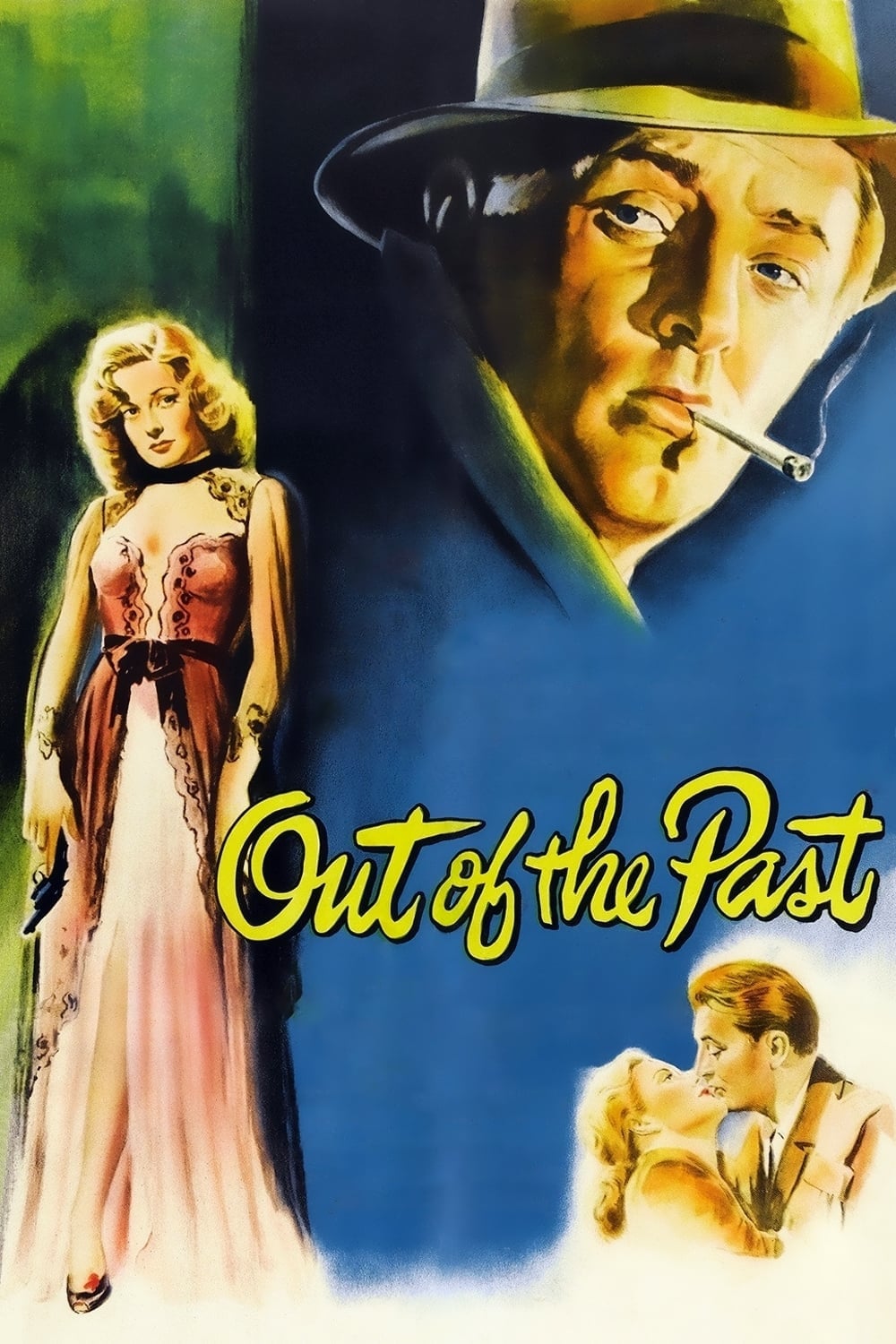
In this iconic film noir, Douglas skillfully depicts Whit Sterling as a cold-blooded, strategic gambler. To track down his wounded girlfriend who swiped his cash, he enlists the help of private investigator Jeff Bailey. As Jeff locates the woman, he develops feelings for her, ensnaring himself in a tangled web of treachery and trickery.
Despite Robert Mitchum and Jane Greer taking center stage, Douglas’s portrayal of the charismatic yet lethal villain plays a pivotal role in the movie. This character embodies raw power and cunning intelligence, willing to go to any lengths to fulfill his desires.
In this case, I tried to maintain the original meaning while making it more engaging and conversational.
I Walk Alone (1948)
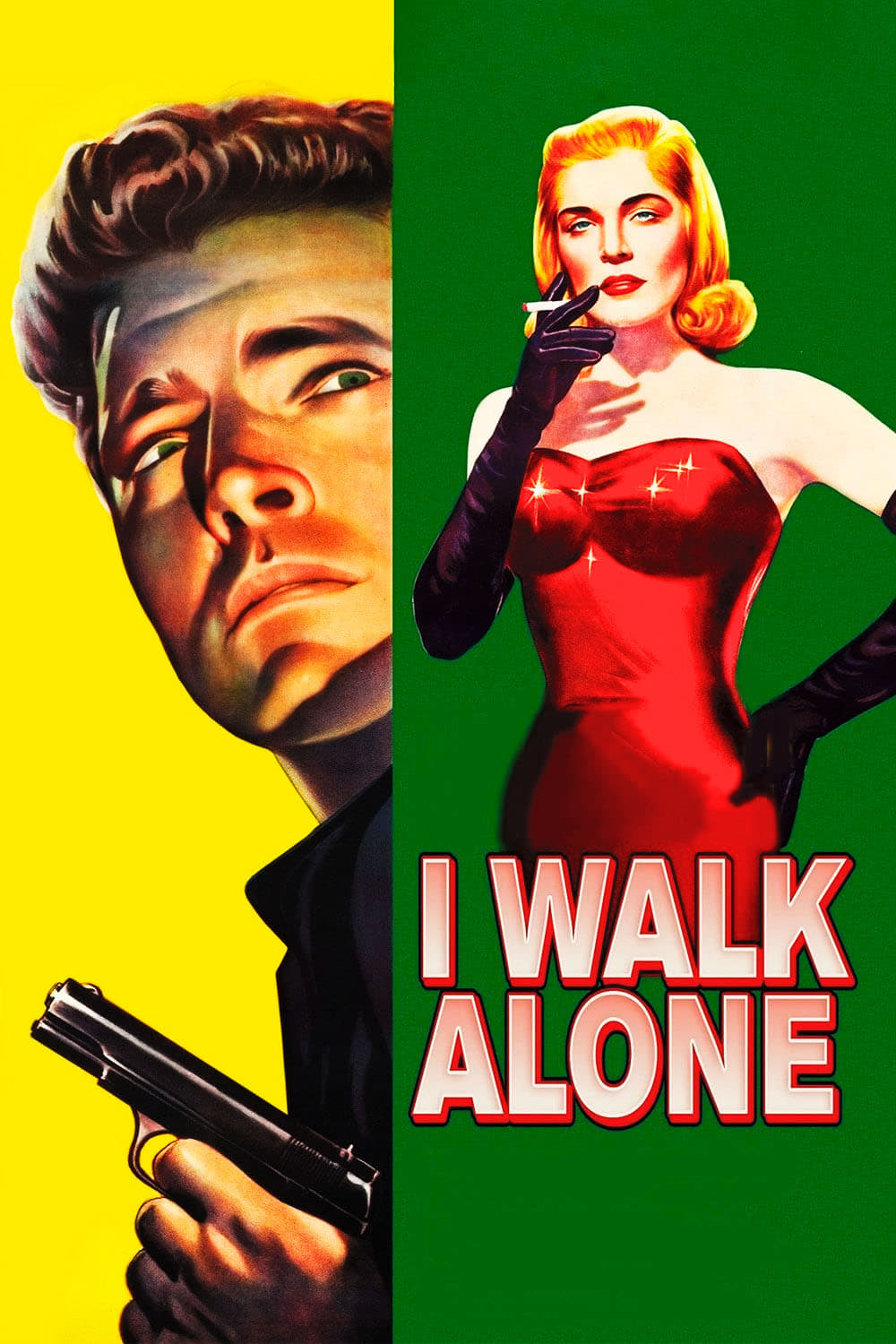
In this film noir, Douglas portrays Noll “Dink” Turner, a charismatic and prosperous nightclub proprietor. However, his tranquility is disrupted by the reappearance of his ex-partner Frankie, fresh out of prison after a 14-year stint. Frankie anticipates claiming his share of the nightclub’s earnings, but Dink has different intentions.
In this movie, Douglas teamed up with Burt Lancaster for the first time in a series of joint projects. The captivating tension between them, frequently portraying opposing characters, was a significant factor in their successful collaborations. This film set the stage for their contrasting personas – intellect versus physical strength.
The Walls of Jericho (1948)
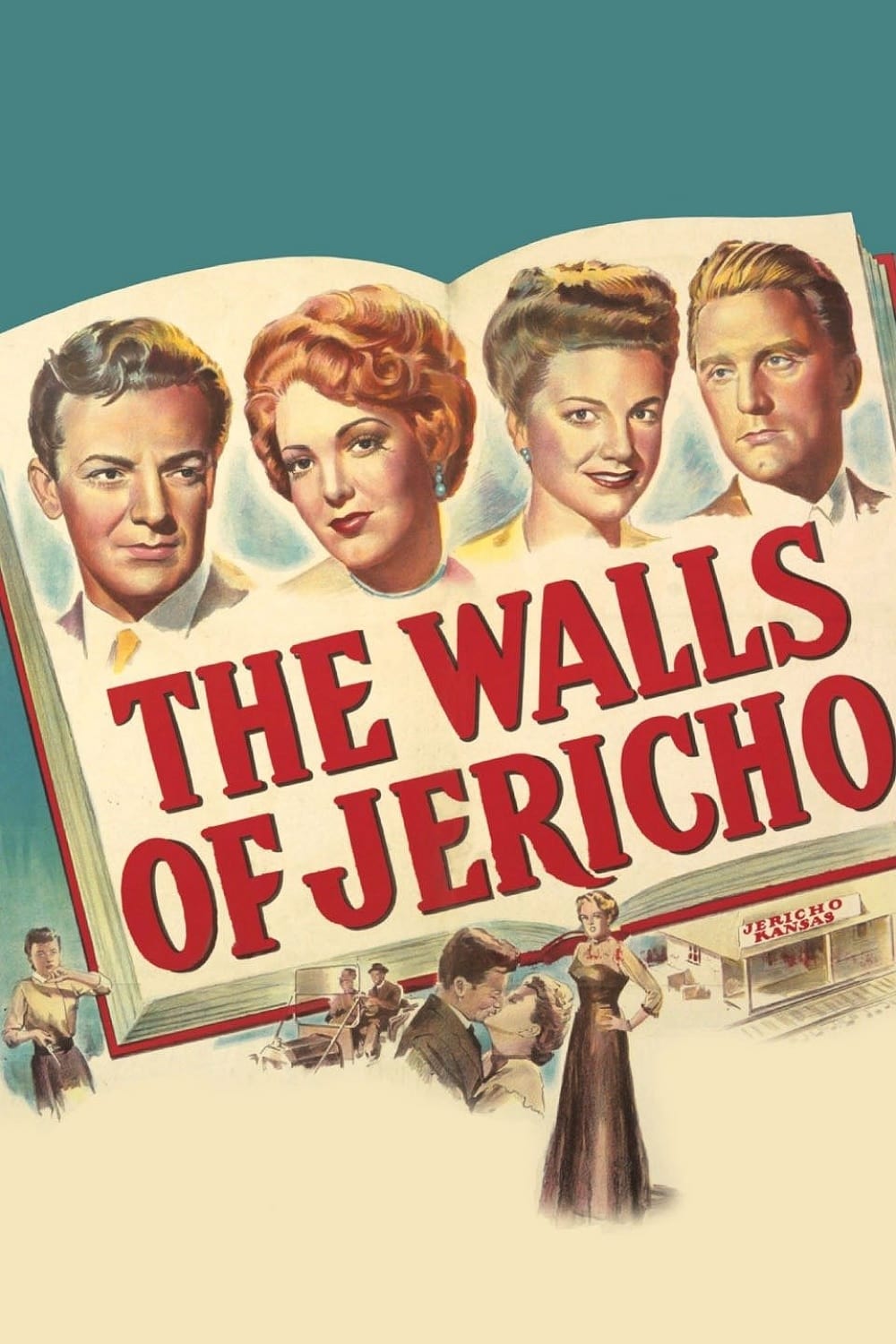
In a small-town setting in Kansas, Douglas assumes the role of Tucker Wedge, a newspaper proprietor who clashes politically with the central figure, Dave Connors. The narrative unfolds as Dave Connors, a lawyer with political ambitions, experiences both personal and professional hurdles.
In this story, Wedge plays a role as a secondary character, adding tension to the political aspects. The movie delves into themes such as ambition and interpersonal connections within a tightly bonded society, making it a dramatic portrayal.
My Dear Secretary (1948)

In this zany comedy, Douglas plays the role of Owen Waterbury, a renowned author who takes on a fresh secretary. This new employee happens to be an aspiring writer herself, initially overjoyed to work for her literary idol. However, she soon realizes that he is a quirky and demanding boss.
In the movie, there’s initially friction between the main characters, but over time, their work bond evolves into a romantic one. This film marked a shift in genre for Douglas, allowing him to display his humorous delivery in a more playful character.
A Letter to Three Wives (1949)
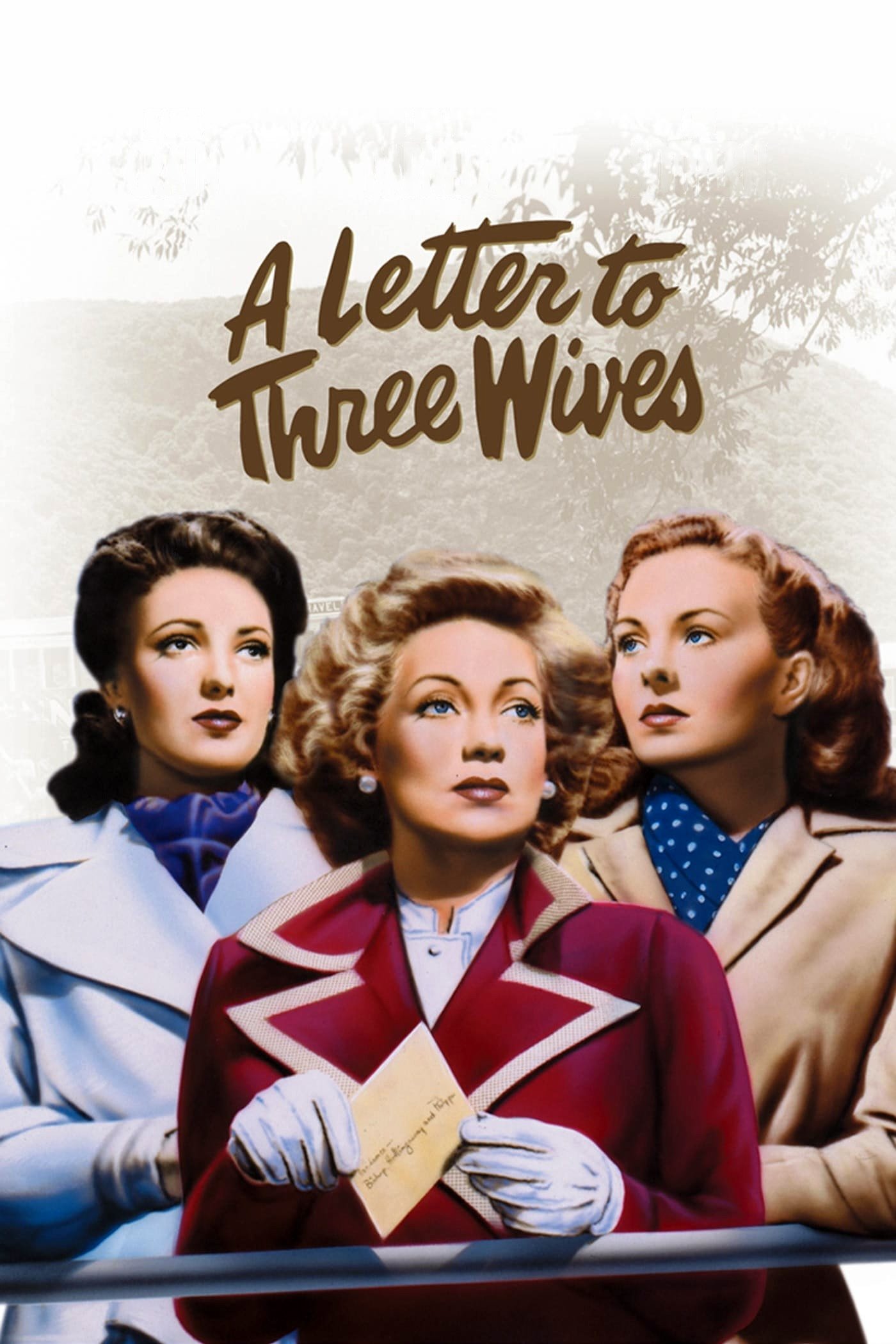
In this highly-praised drama, Douglas takes on the role of George Phipps, a schoolteacher. The narrative centers around three women who are shocked by a letter from a common friend, Addie Ross, revealing that she’s eloped with one of their husbands. As the story unfolds, it delves into flashbacks of each woman’s marriage, intriguing viewers to figure out which husband is involved.
In the movie, Phipps is shown as a diligent yet financially struggling educator who his spouse desires him to be more career-driven. This film received both critical acclaim and box office success, earning praise for its sharp script and powerful acting.
Champion (1949)

In this movie, Douglas took on his career-defining part as Midge Kelly, a boxer. The narrative traces Kelly’s journey from humble beginnings to claiming the title of boxing champion. However, his relentless drive and self-centered nature lead him to deceive those who supported him throughout his rise.
Douglas’s powerful and energetic portrayal led to his initial nomination for an Academy Award in the Best Actor category. This role solidified his on-screen identity as a rugged, ambitious, and frequently ethically ambiguous character.
Young Man with a Horn (1950)
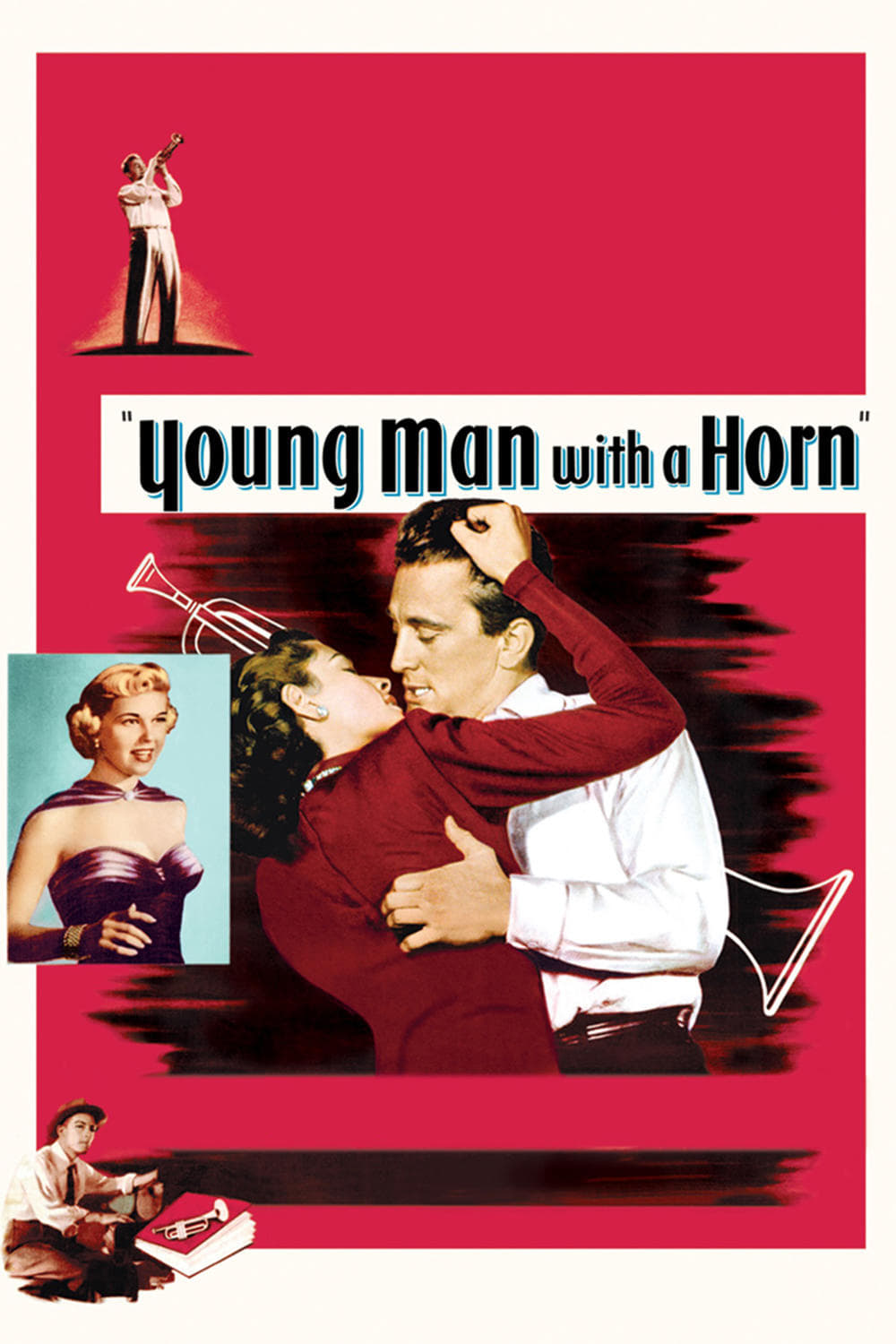
In a film, we see Douglas portray Rick Martin, an exceptional and driven trumpet player whose life is modeled after the jazz legend Bix Beiderbecke. The narrative unfolds as Martin climbs the ladder of success, battles alcoholism, and manages intricate relationships with two distinct women.
In the movie, which is a timeless musical drama depicting the ups and downs of an accomplished performer’s life, Douglas mastered playing the trumpet for his character, even though it was a professional musician who provided the actual recorded music.
The Glass Menagerie (1950)

In this rendition of Tennessee Williams’s play, I take on the role of Jim O’Connor, often referred to as the “gentleman caller.” I find myself invited to dine at the home of Amanda Wingfield, who harbors dreams that I might become a potential suitor for her timid and reserved daughter, Laura.
1) Jim, an amiable and commonplace young fellow, momentarily ignites a spark of optimism in Laura’s secluded existence. The movie serves as a true-to-life portrayal of the renowned stage production, delving into topics like memories, remorse, and deception.
Along the Great Divide (1951)
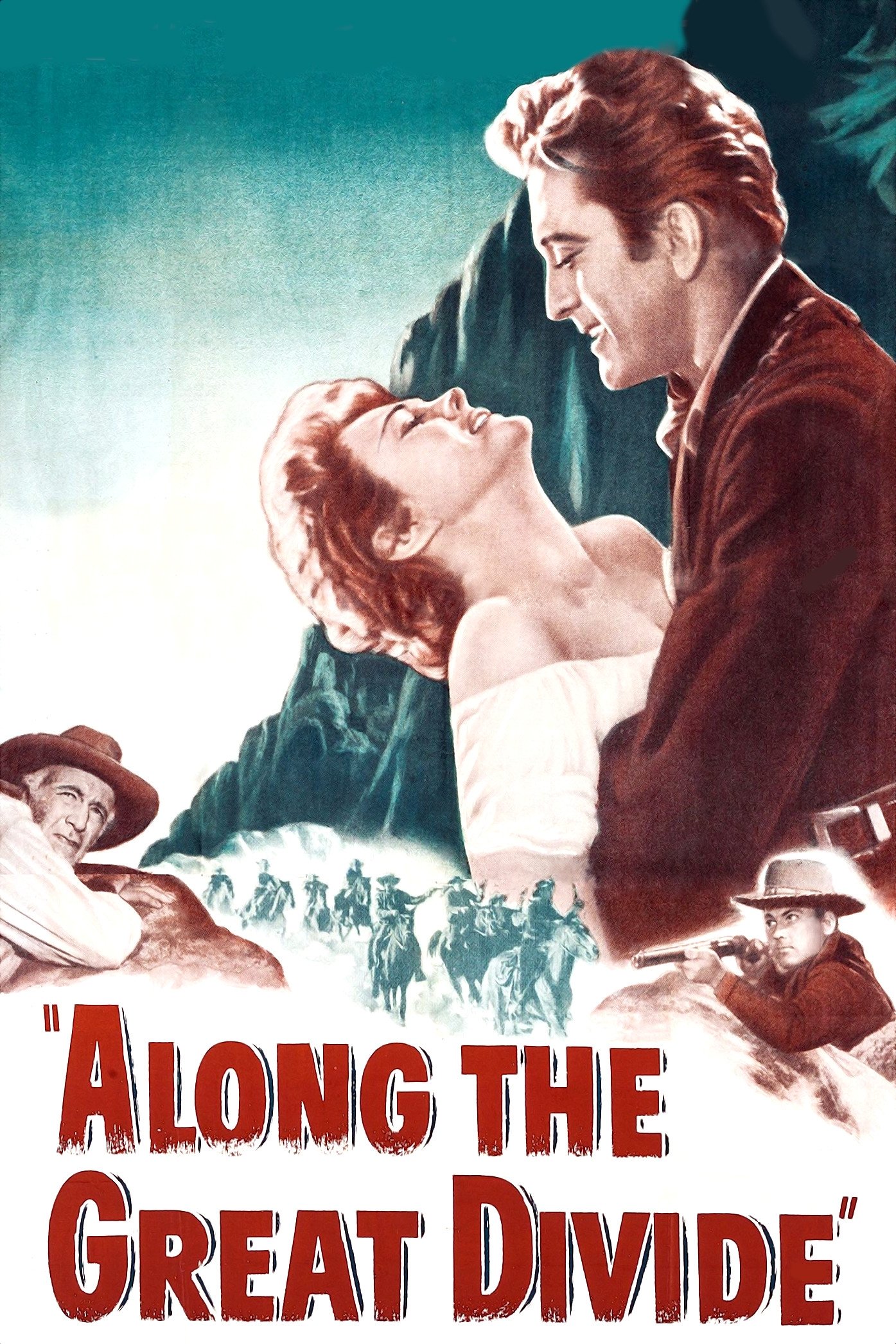
In this Western, Douglas plays the role of Marshal Len Merrick. Finding himself in a situation where a suspected cattle rustler is threatened by a mob, Merrick decides to ensure the suspect stands trial rather than face a lynching. His journey with his prisoner through a treacherous desert proves testing, as they confront not only the harsh conditions but also those intent on seeing the suspect meet an untimely demise.
In his career, Douglas made his debut in a Western film, a genre he frequently revisited. This production offered a glimpse of his skill at portraying tough and resolute law enforcement officers.
Ace in the Hole (1951)
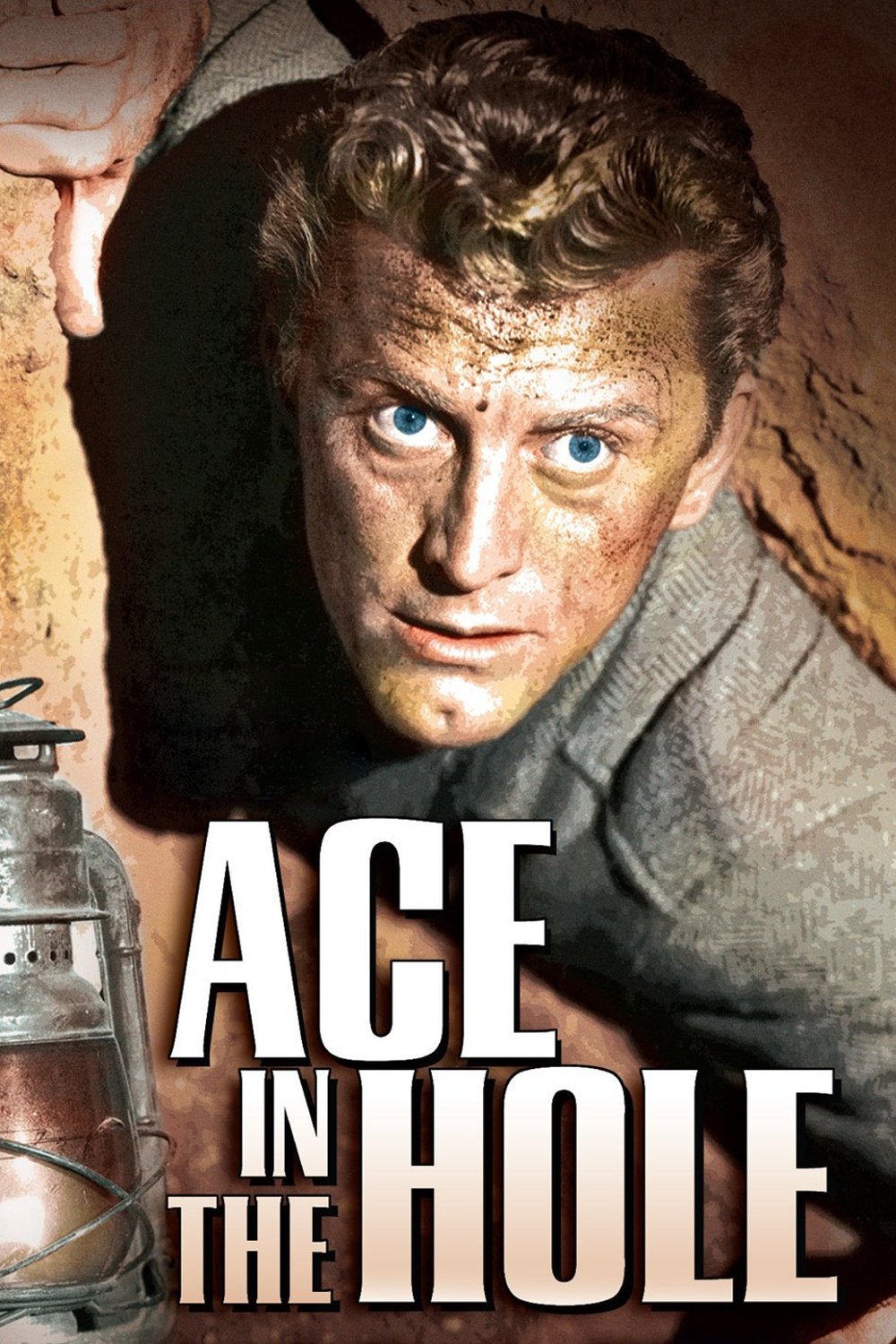
In this gritty drama masterminded by Billy Wilder, Douglas delivers a compelling portrayal of Chuck Tatum. Tatum, once a disgraced journalist from a bustling city, finds himself working for a modest newspaper in Albuquerque after a fall from grace. When he discovers a story about a man trapped in a collapsed mine, he perceives it as his chance to regain his former prominence.
In simpler terms, Tatum skillfully orchestrates events to generate a sensational news spectacle, extending the duration of the rescue mission to amplify the story’s influence. The movie serves as a grim commentary on media ethics and human behavior, with Douglas’s portrayal of an immoral journalist often praised as one of his best performances.
Detective Story (1951)
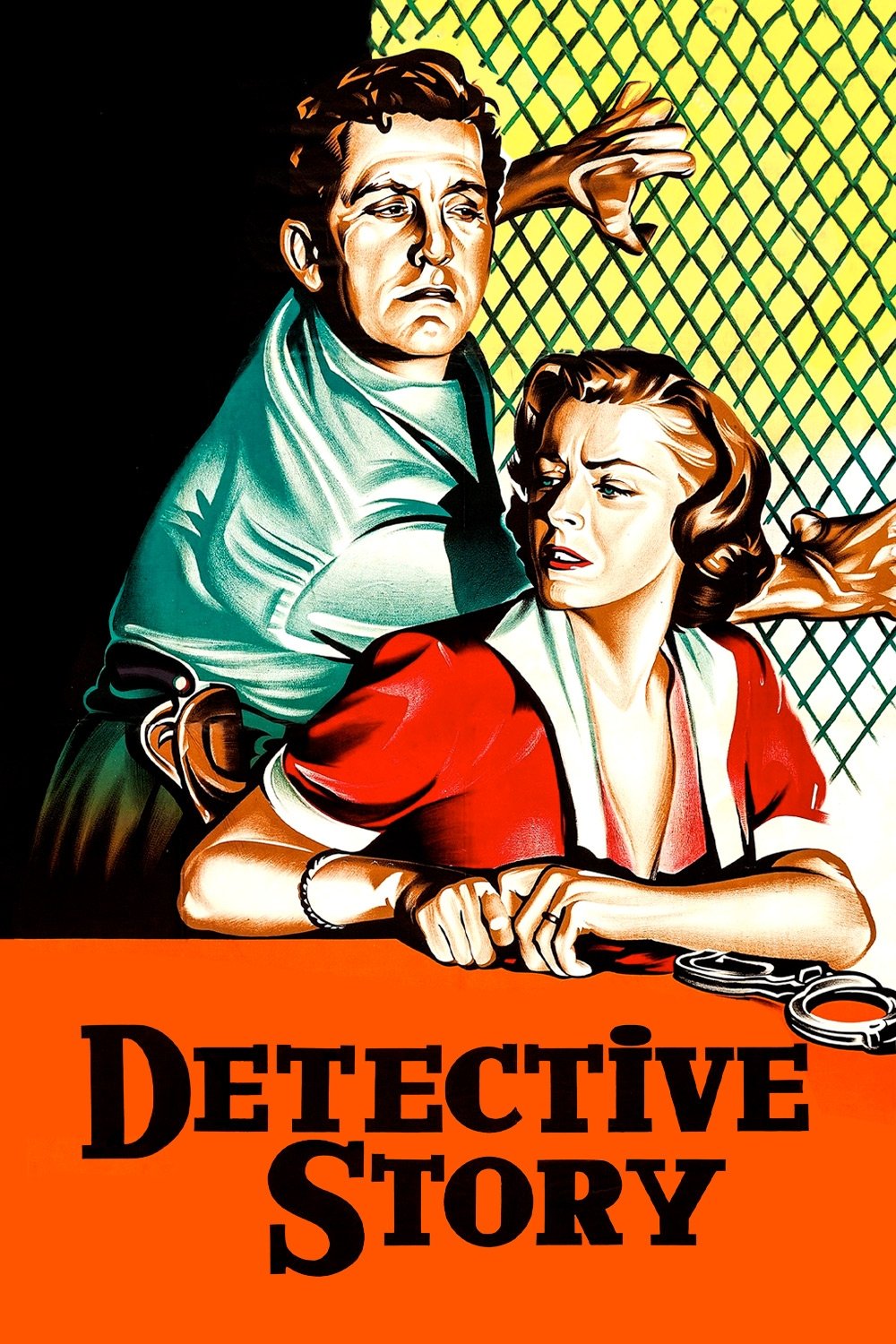
In this version, Douglas portrays Detective Jim McLeod, a strict and unyielding law enforcement officer. The movie unfolds within a New York City police station over the course of one day, showcasing the diverse cases and characters that cross paths there. McLeod’s relentless chase for an abortionist eventually triggers a personal predicament for him.
The movie, derived from a hit Broadway show, garnered acclaim for its powerful acting ensemble and gripping storyline. Douglas’s portrayal excellently conveyed the character’s passionate anger and internal struggles.
The Big Trees (1952)
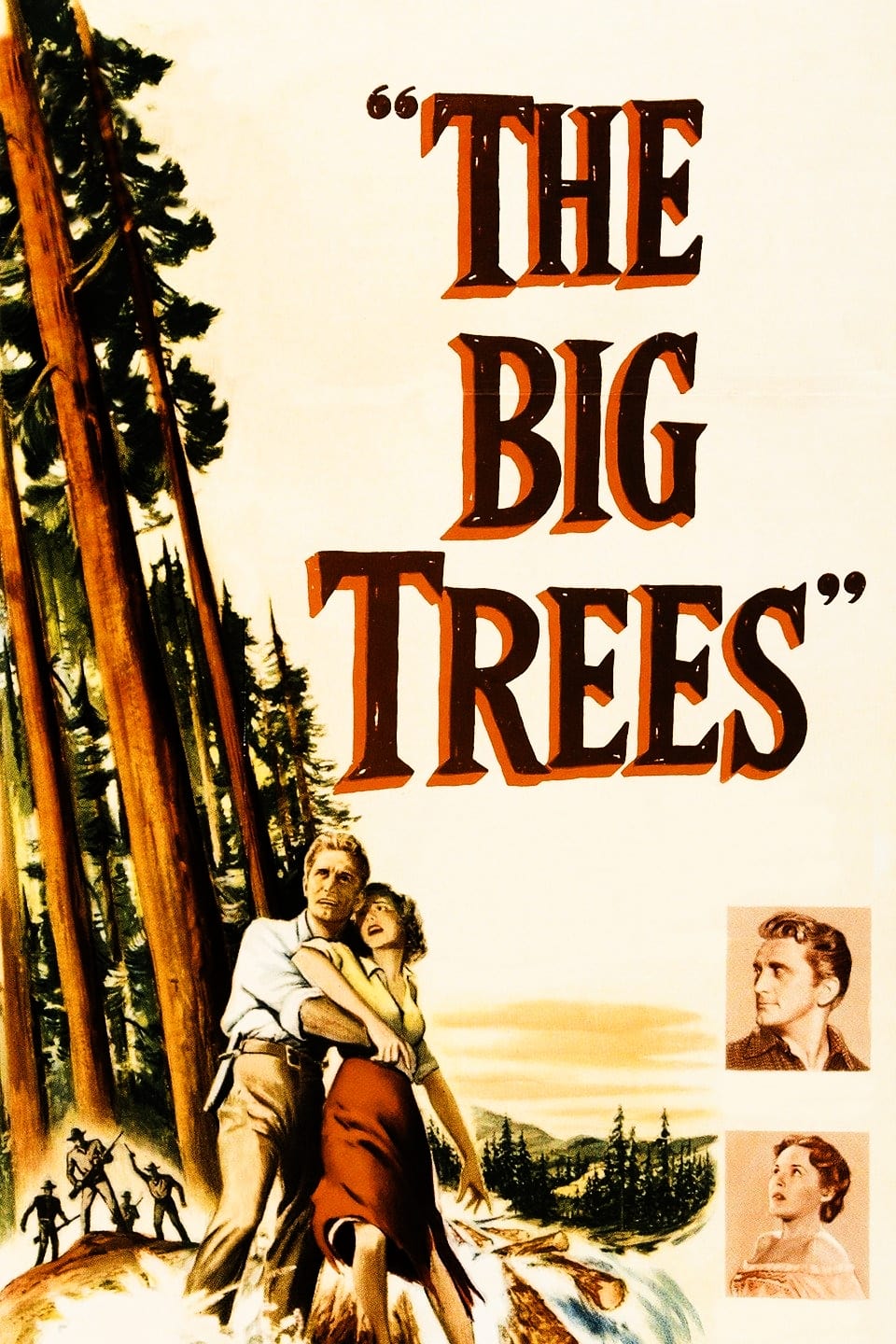
As a devoted cinephile, I’d rephrase that for you: In the movie, Douglas portrays Jim Fallon, a relentless and morally questionable lumberjack. By 1900, Fallon has his eyes set on a colossal grove of towering redwoods in Northern California. His cunning scheme involves exploiting a legal loophole to wrestle the land away from a peaceful settlement of religious devotees who consider these trees as their sacred entities.
The movie offers an exhilarating blend of action and exploration, primarily centered around the world of logging and disputes over land ownership. Throughout the narrative, the protagonist, Fallon, undergoes a transformation in his perspective and ultimately chooses to align with the settlers, advocating for the preservation of the redwood forests.
The Big Sky (1952)
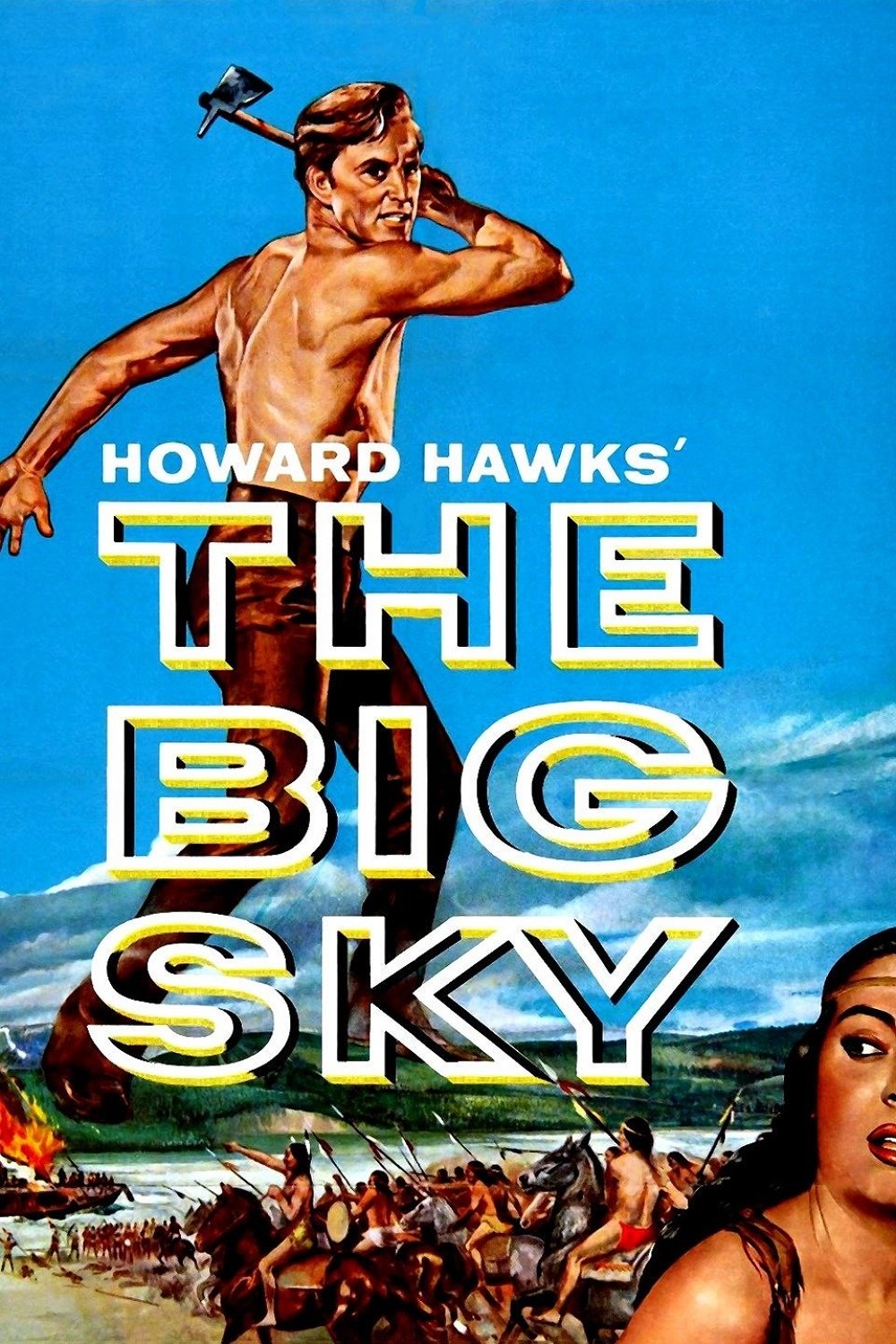
In this Western tale, Douglas portrays Jim Deakins. Accompanied by his companion Boone, both being rugged frontiersmen from Kentucky, they embark on a trading expedition navigating the Missouri River into potentially hostile Native American lands. The story unfolds as they navigate through their treacherous journey encountering numerous hazards.
The film received acclaim for its genuine atmosphere and stunning outdoor settings, serving as a tale of camaraderie and exploration set against the backdrop of the American Wild West in the 1830s.
The Bad and the Beautiful (1952)
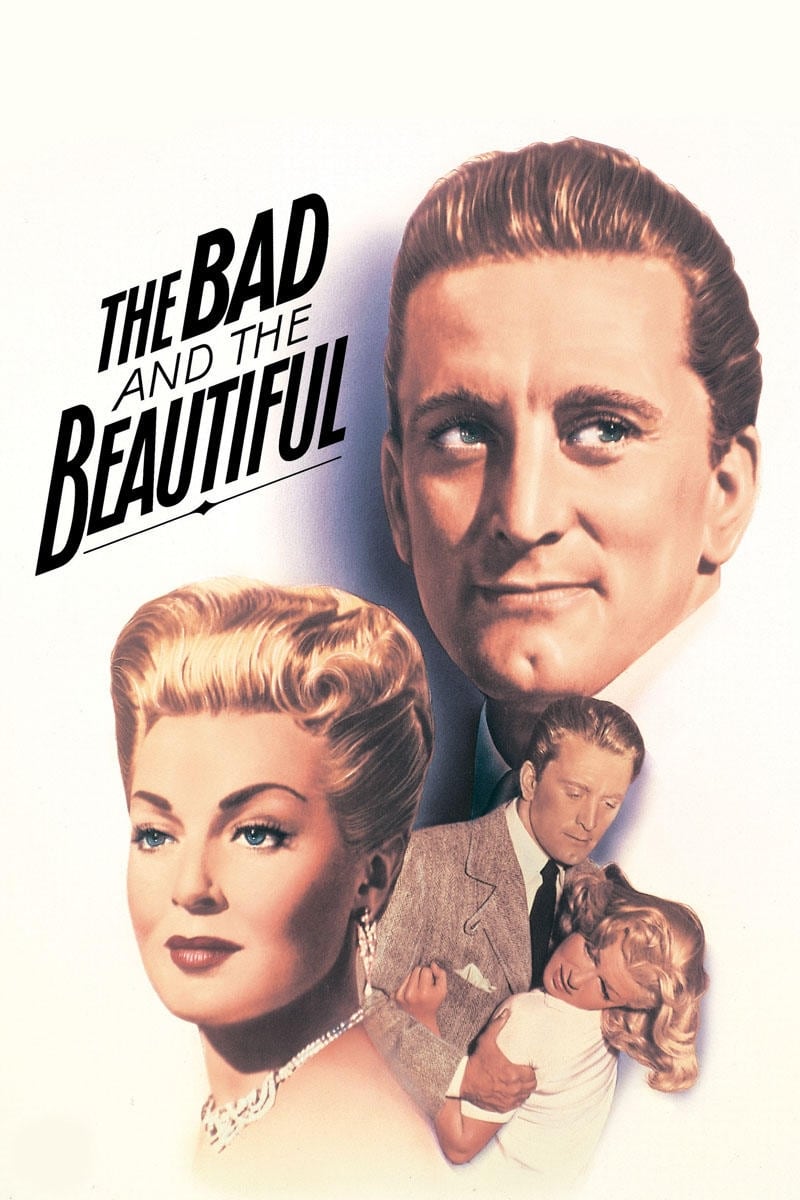
Douglas portrays the character of Jonathan Shields, a relentless and genius Hollywood producer. The narrative unfolds through a sequence of flashbacks, each offering different viewpoints from a director, an actress, and a writer – all who encountered manipulation and discard at Shields’ hands during his ascension to power.
The movie presents a timeless, dramatic tale that provides a jaded perspective on the greed and deceit beneath Tinseltown’s glitter. Douglas’s portrayal of the captivating yet scheming filmmaker garnered him his second bid for the Academy Award in the Best Actor category.
(Note: I tried to maintain the same structure and tone as your original sentence while using simpler, more conversational language.)
The Story of Three Loves (1953)
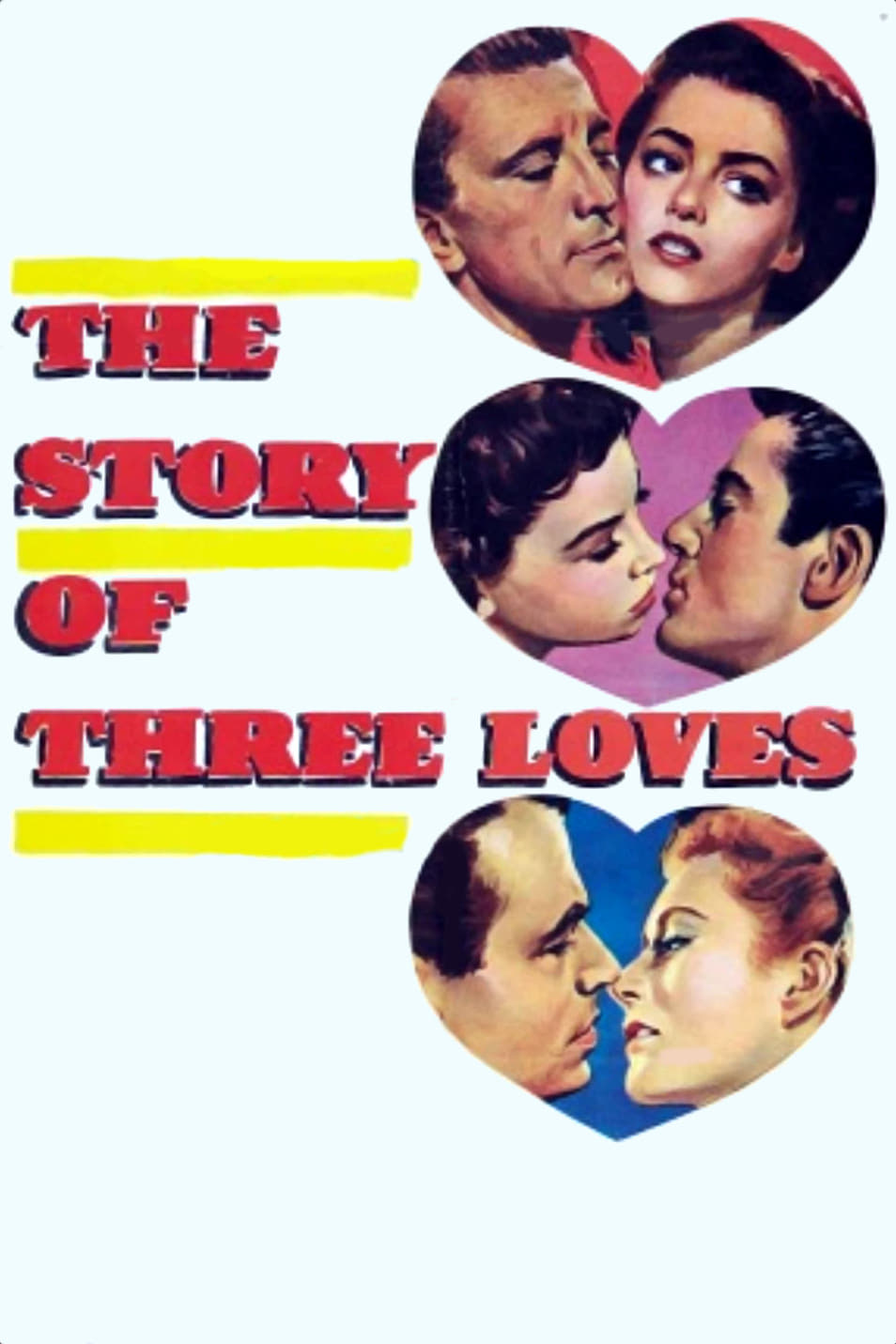
In this movie, you’ll find a collection of three distinct romantic tales. The opening story features Douglas as Pierre Narval, a trapeze artist, in the segment titled “Equilibrium.” Here, he rescues a young woman and convinces her to become his new partner for a perilous trapeze act.
The piece narrates the development of their romance while they rehearse for their act. The movie encompasses various romantic narratives, each exhibiting distinct moods and aesthetics.
The Juggler (1953)
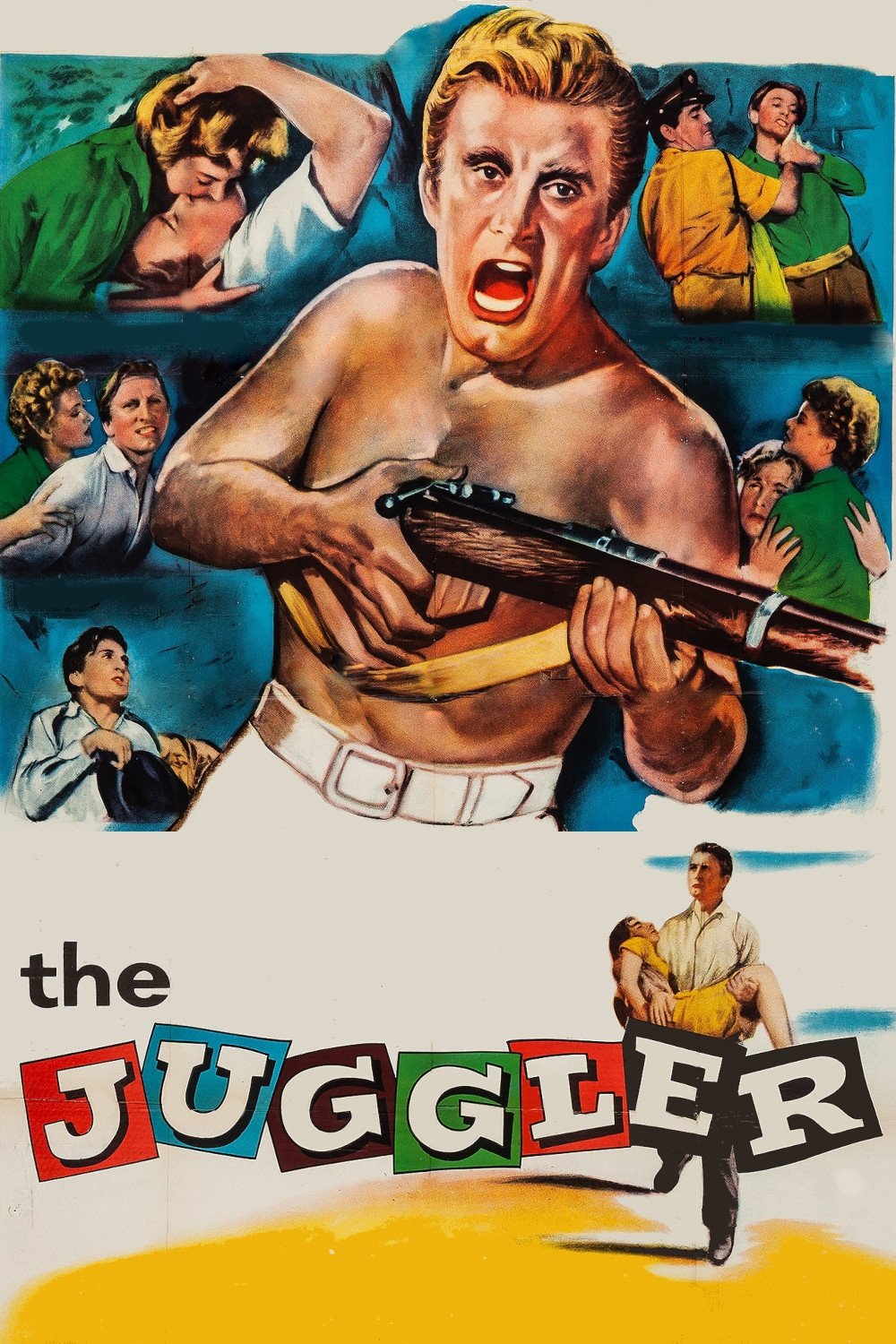
Douglas portrays Hans Muller, a German-Jewish refugee and ex-juggler who endured the Holocaust. He arrives in Israel, battling extreme emotional distress and irrational fear. Following an encounter with a police officer, he panics and sets off on a cross-country escape, which leads to a nationwide manhunt.
The movie was among the initial Hollywood productions filmed on-site in Israel. It portrays a potent drama revolving around a man’s struggle to reconcile his past and start anew.
Act of Love (1953)

In the poignant romance unfolding against the backdrop of post-WWII Paris, the character portrayed by Douglas is Robert Teller, an American solider. Caught up in the whirlwind of emotions, he finds himself smitten with a young French woman trying to make ends meet amidst the harsh post-war reality.
The movie presents a heart-wrenching tale of love and sorrow set against the backdrop of a challenging period filled with numerous hurdles like military rules and the tough reality of life in a city still grappling with post-occupation struggles.
20,000 Leagues Under the Sea (1954)
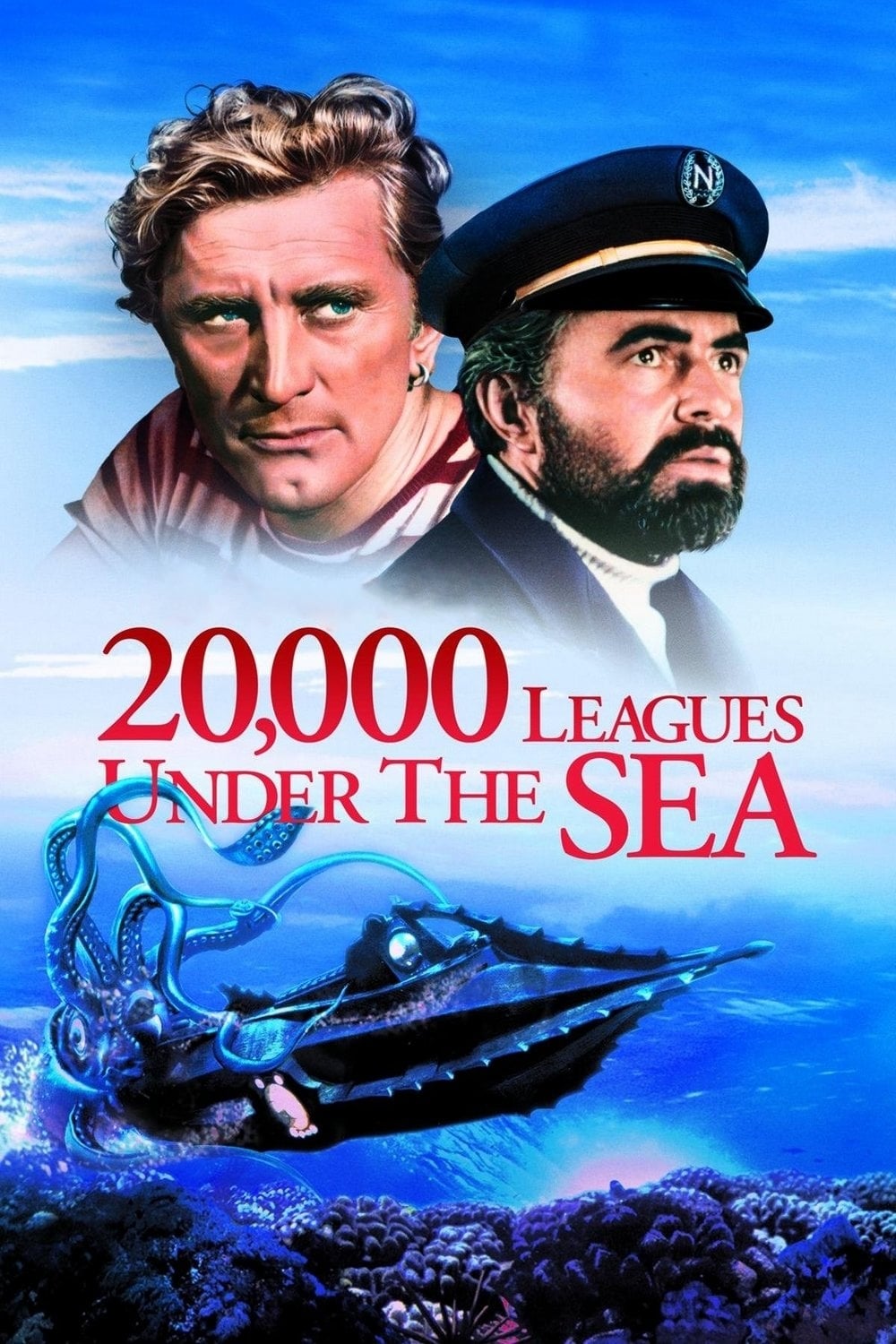
In this timeless Disney movie adaptation, Douglas takes on the role of the jovial and valiant seafarer named Ned Land. The narrative is based upon the novel penned by Jules Verne, where Ned finds himself a prisoner on the Nautilus, an advanced submarine helmed by the enigmatic Captain Nemo.
The movie turned out to be a massive hit at the box office, receiving accolades for its breathtaking visual effects, particularly the thrilling fight scene involving a colossal squid. Douglas’s lively portrayal offered a humorous balance against Captain Nemo’s somber demeanor.
The Racers (1955)
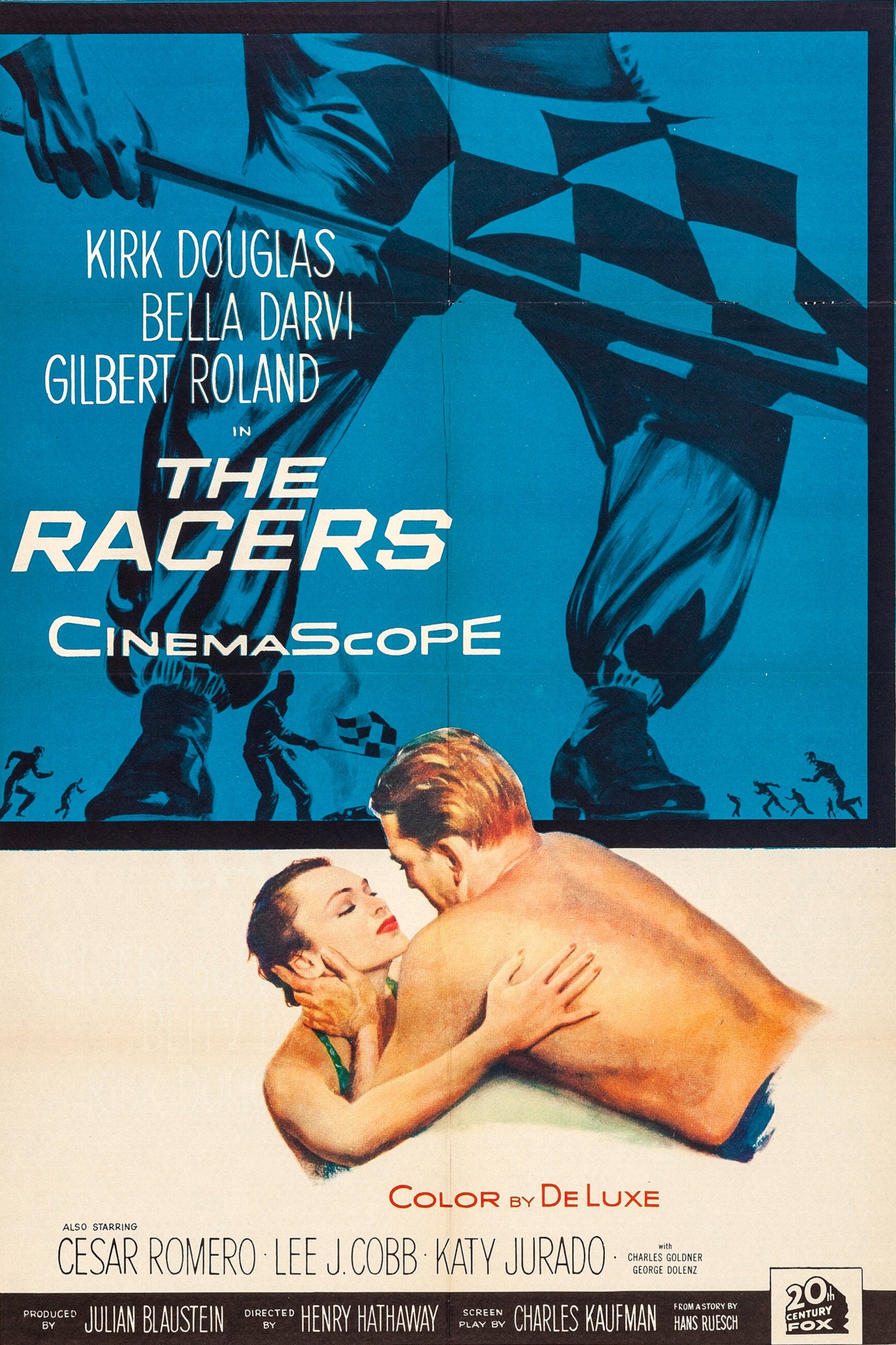
In a different setting, Douglas portrays Gino Borgesa, an audacious and ambitious Italian auto racer. This movie chronicles his journey from being unknown to claiming the title of world champion in Grand Prix racing. Yet, his unyielding pursuit for triumph takes a heavy toll on his personal life.
The film showcases pulse-pounding racing scenes captured on real European racetracks, portraying a tale of the perils and concessions needed to excel in top-tier motor racing.
Ulysses (1955)

In this Italian cinematic masterpiece, Douglas assumes the lead character as the iconic Greek legend, Odysseus. This film is a dramatic retelling of Homer’s epic tale ‘The Odyssey’, chronicling the arduous and hazardous voyage of the hero on his way back home following the Trojan War.
The movie compactly tells the grand tale, highlighting crucial events like Odysseus’s interactions with the Cyclops, Circe, and the Sirens. This massive multinational project transformed the timeless myth into an accessible experience for many.
Man Without a Star (1955)
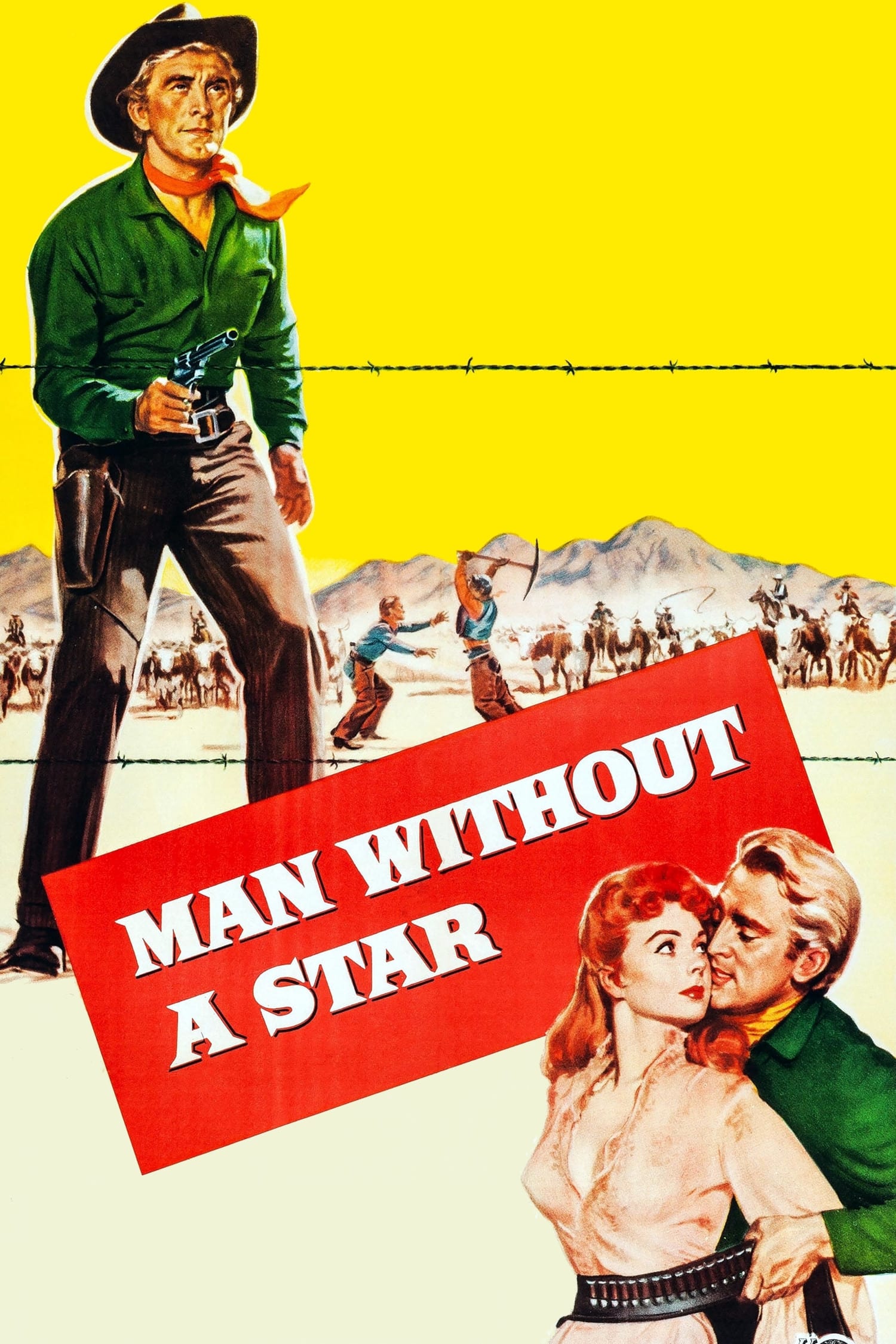
I assume the role of Dempsey Rae, a rugged and autonomous cowboy traversing the American West. Taking on a position at a vast ranch, I find myself embroiled in a brutal conflict over land ownership between the ambitious woman proprietor and neighboring small-scale ranchers, which escalates into a dangerous range war.
The movie, recognized for its thrilling action scenes and captivating portrayal by Douglas, is a timeless Western. A noteworthy moment features Douglas instructing an inexperienced ranch worker on the art of firearm handling.
The Indian Fighter (1955)
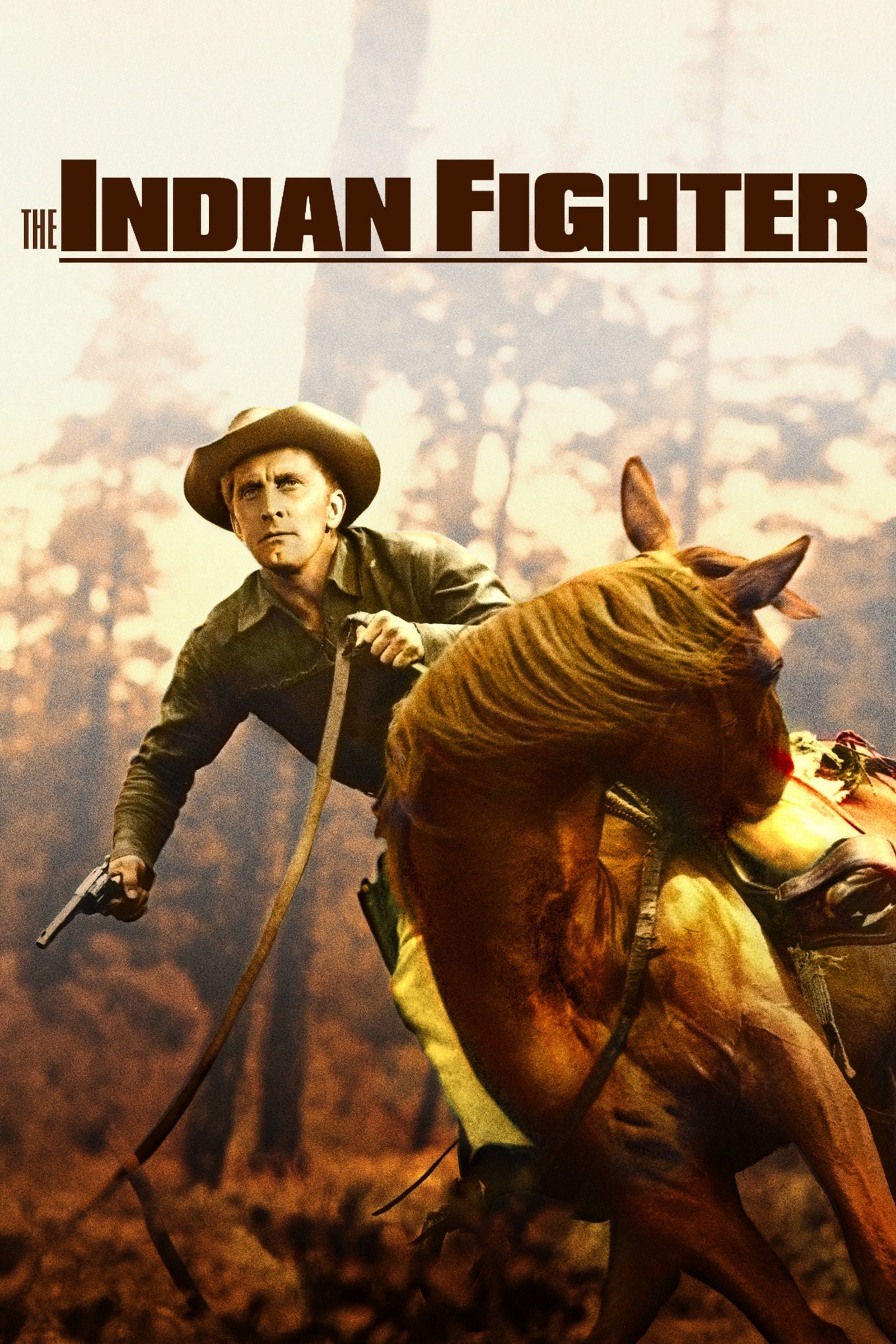
As I step into this Western tale, I find myself embodying Johnny Hawks, a scout known for his alliance with the Native American tribes. My mission is to escort a wagon train across U.S. Army territories that happen to be inhabited by the Sioux people. The journey begins peacefully, but things take a turn when gold is unearthed on their land, stirring up tensions among us travelers and the locals.
This movie marked the debut production from Douglas’s personal company, Bryna Productions. It provided him with more artistic freedom and proved to be a financial triumph, garnering recognition for its empathetic representation of Native American figures.
Lust for Life (1956)
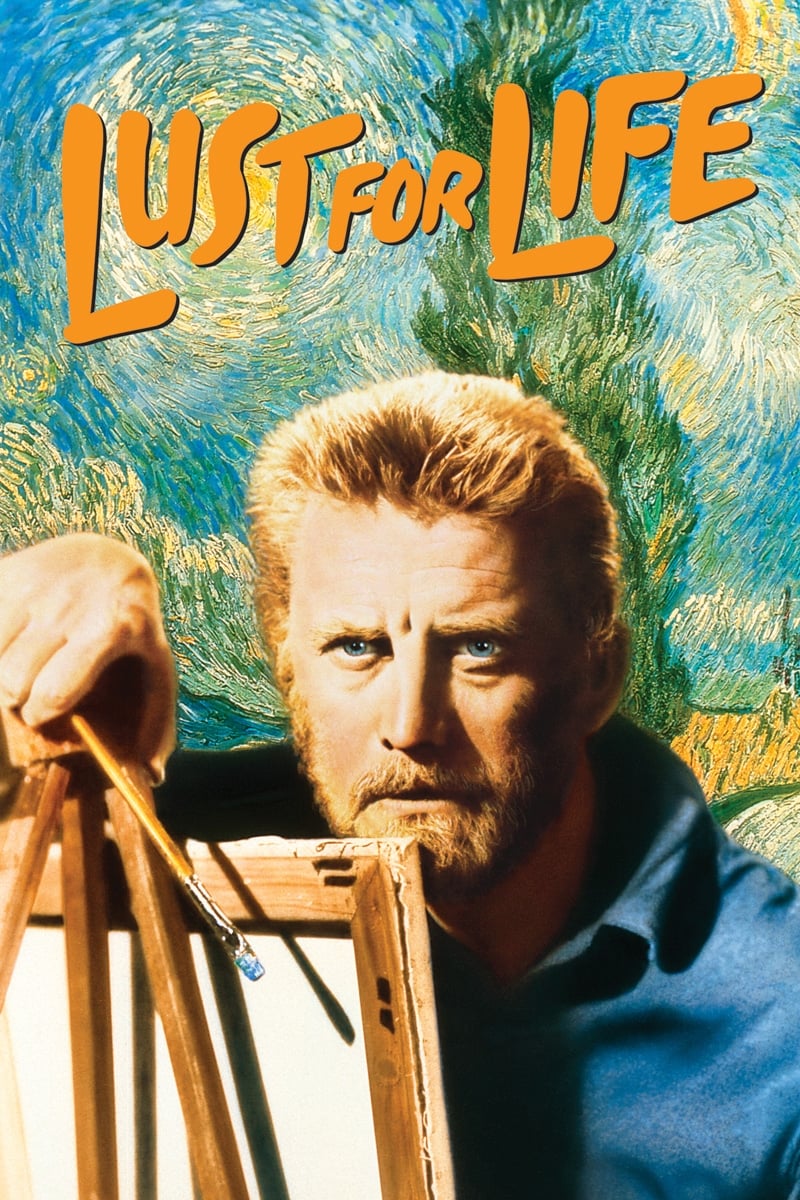
In simpler terms, Douglas gives a remarkable and award-winning portrayal of the tormented yet gifted artist Vincent van Gogh in this movie. The film is essentially a story about the renowned Dutch painter, detailing his intense and stormy life, battles with mental health issues, and unwavering commitment to his artwork.
To get ready for the part, Douglas delved into van Gogh’s artwork and even tried painting himself. This deeply emotional portrayal resulted in his third and last Academy Award nomination for Best Actor. Critics often rank this performance among the best of his career.
Top Secret Affair (1957)

In this charming romantic comedy, Douglas portrays Major General Melville A. Goodwin, a respected military figure with aspirations for a top-tier government post. However, he finds himself under attack by a formidable publishing magnate who disapproves of his nomination and aims to tarnish his good name.
The publishing company tasks a reporter with uncovering scandals about Goodwin; however, their investigation takes an unexpected turn towards romantic entanglements.
– The movie is a delightful portrayal of a playful power struggle between the genders.
Gunfight at the O.K. Corral (1957)
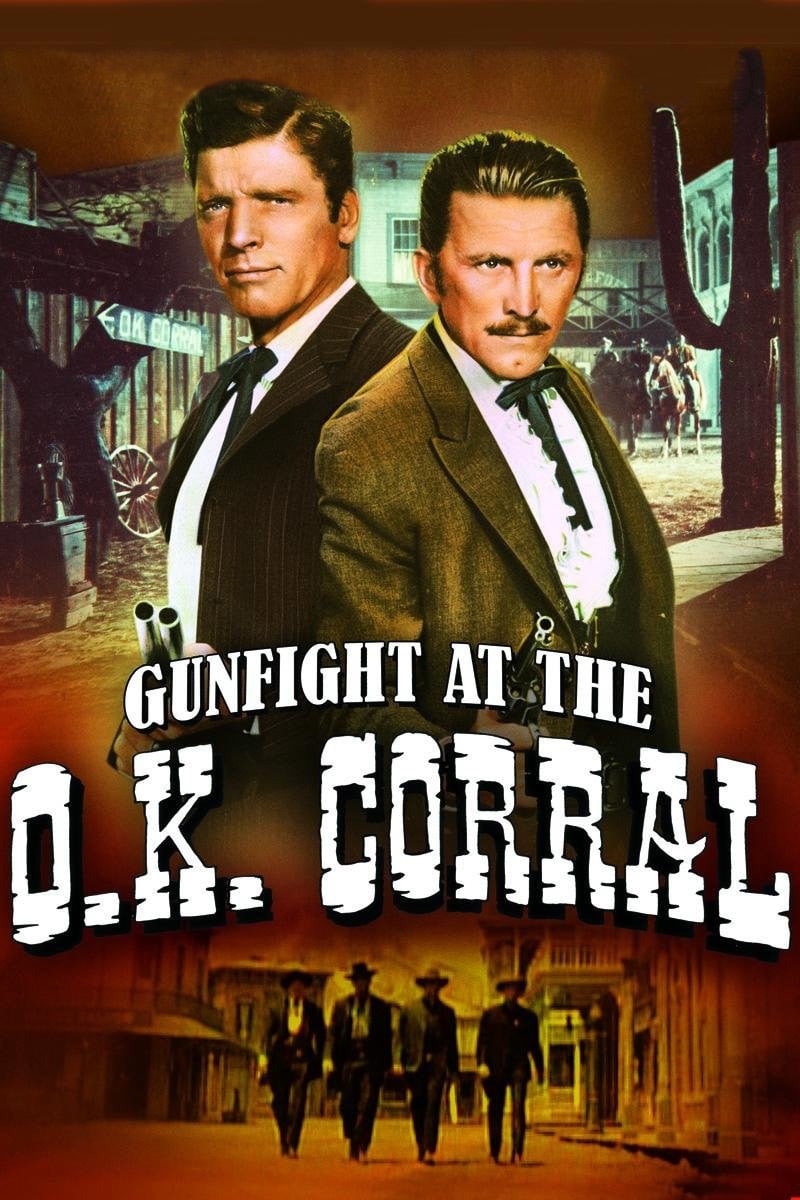
In this rendition, Douglas portrays the renowned gambler and gunfighter Doc Holliday, teaming up with Burt Lancaster as Wyatt Earp. The movie offers a fictionalized account of the events preceding the well-known 1881 gunfight in Tombstone, Arizona.
In this film, the central relationship is depicted between the stern sheriff Earp and the unpredictable, ailing gunfighter Holliday, who has consumption. Critics lauded Douglas’s performance as the intricate and tragic outlaw.
Paths of Glory (1957)
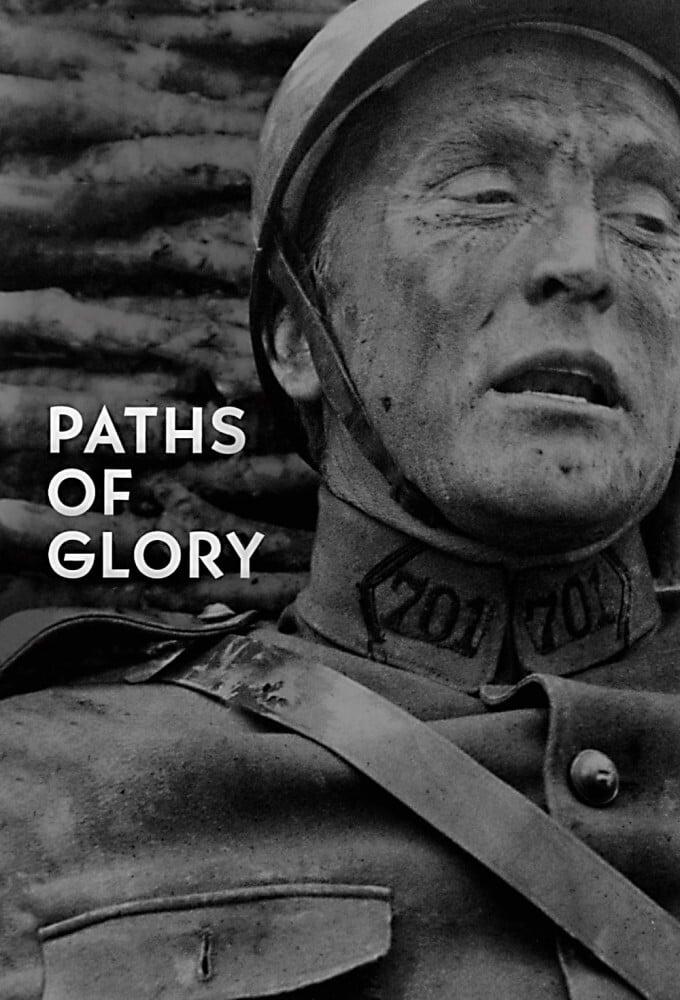
In this potent anti-war movie helmed by Stanley Kubrick, Douglas portrays Colonel Dax, a strong military leader in the French forces during World War I. Following a self-destructive assault on a German outpost that ends unfavorably, the army’s top brass decides to conduct a trial by court-martial against three unjustly accused soldiers for cowardice, aiming to make an example of them.
In his civilian career as a lawyer, Colonel Dax passionately defended the soldiers during their unfair trials, speaking out against the skepticism and brutality displayed by the military hierarchy. The film, backed by Douglas’s production company, has since been recognized as a significant milestone in cinematic history.
The Vikings (1958)
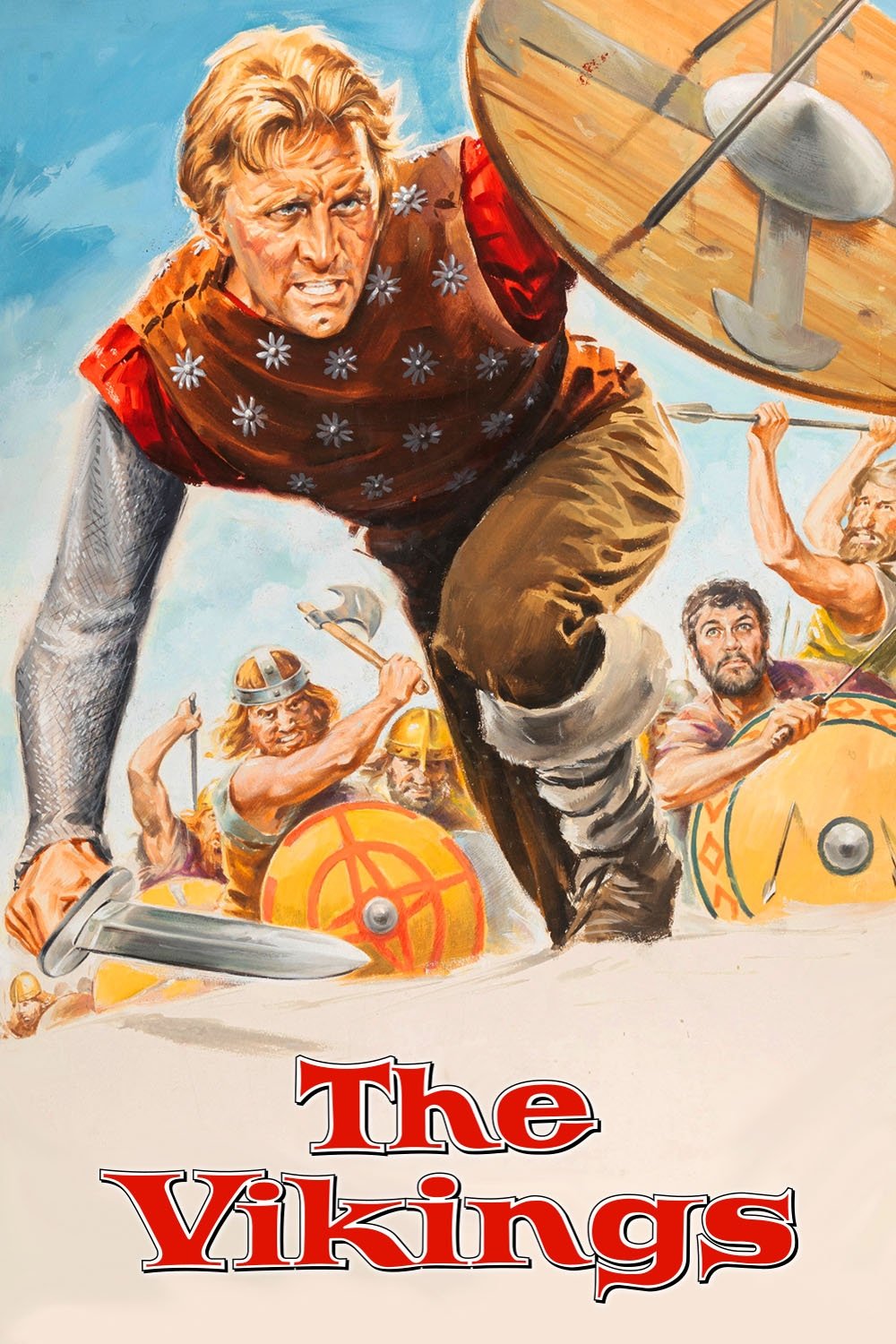
In this grand historical tale, Douglas portrays Einar – a strong-willed and proud son of a Viking leader. Notable for its thrilling action scenes and captivating visuals, the movie unfolds an intriguing narrative about two half-brothers who are oblivious to their familial bond, engaged in a fierce rivalry.
1. The film became incredibly successful on a global scale. Douglas’s powerful and action-packed portrayal of the one-eyed Viking warrior left a lasting impression in the popular movie.
2. The movie achieved tremendous international success. Douglas’s gripping and energetic role as the one-eyed Viking warrior was an unforgettable standout in the hit film.
3. The picture was a major global sensation. Douglas’s compelling and active performance as the one-eyed Viking warrior made for a memorable moment in the popular movie.
4. The flick garnered immense international acclaim. Douglas’s dynamic and athletic depiction of the one-eyed Viking warrior served as a striking feature in the well-liked film.
5. The motion picture was an enormous global triumph. Douglas’s captivating and physical performance as the one-eyed Viking warrior was a significant highlight in the widely-watched movie.
Last Train from Gun Hill (1959)
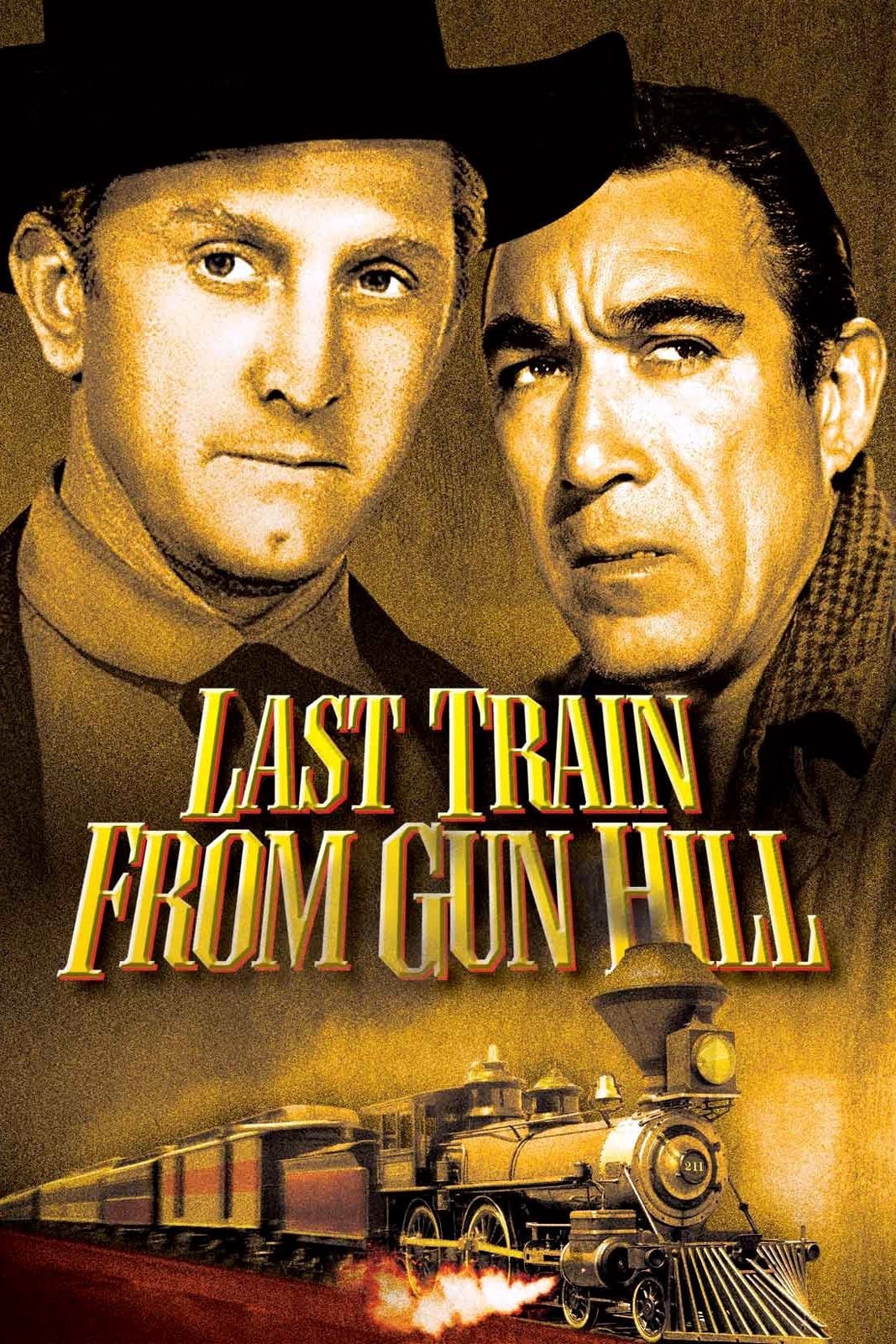
In this gritty western film, Douglas portrays the role of Marshal Matt Morgan. His journey leads him to the town of Gun Hill, driven by the quest for justice following the tragic murder of his wife. To his dismay, he uncovers that the perpetrator is the son of an influential cattle baron and former friend who holds significant control over the town.
In this rephrased version, Morgan finds himself facing off against the cattle baron and his posse, aiming to apprehend a young man and ensure his escape from town via the final train. The movie portrays an intense tale of retribution and ethical dilemmas.
The Devil’s Disciple (1959)
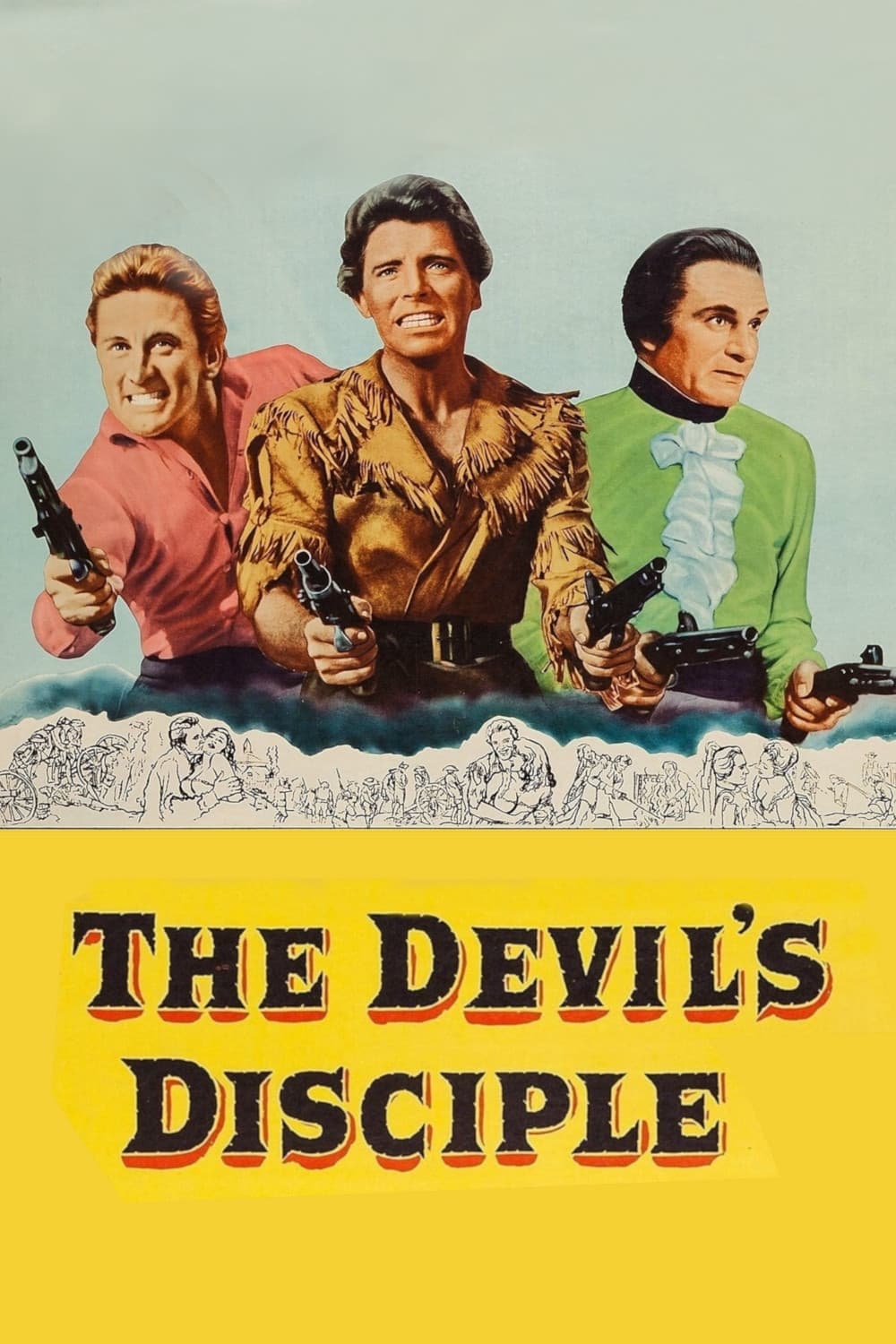
In this movie, reminiscent of a work penned by George Bernard Shaw, the action unfolds amidst the turbulent backdrop of the American Revolutionary War. The character Douglas portrays Dick Dudgeon, a man with a rebellious spirit and a cynical outlook, who finds himself in a predicament when he is mistaken for a local minister and subsequently arrested by the British authorities.
The movie, which features both Burt Lancaster and Laurence Olivier, is a humorous take on history. The main storyline revolves around Dudgeon’s choice to go along with a case of mistaken identity, serving as the central plot point.
Operation Petticoat (1959)
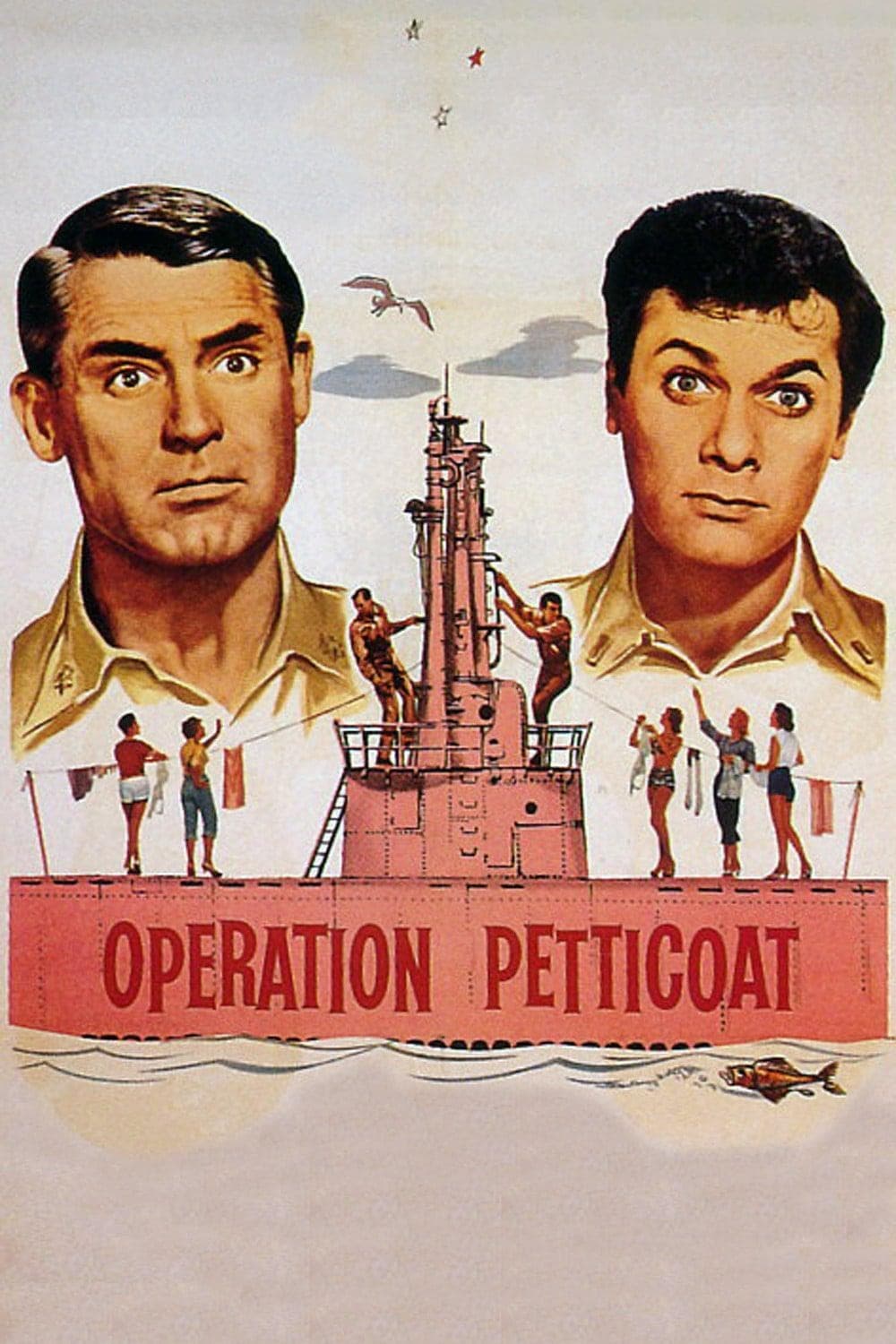
As a devoted cinephile, I can’t help but notice that the iconic Douglas himself slipped into an unaccredited role as a welder in this beloved war-time comedy. This film, set during the early days of World War II, casts the suave Cary Grant as the commander of a submerged vessel in distress.
In simpler terms, his short, uncredited appearance was just a tiny scene in a movie that ended up being a huge box-office hit. The film’s plot revolves around the humorous mishaps experienced by the crew of a submarine as they struggle to keep their vessel seaworthy.
Strangers When We Meet (1960)

Dougles portrays Larry Coe, a thriving architect who’s tied down by marriage and children. However, he embarks on a secret romance with a forlorn, wedded neighbor, causing turbulence in both their family lives.
The movie delves into the realms of romance and emotional drama, focusing on issues such as unfaithfulness and dissatisfaction in suburbia. It gained recognition for its grand and contemporary architectural designs, which significantly influenced the film’s visual aesthetic.
Spartacus (1960)

In this grand, historically based movie, Douglas takes on the lead character, portraying a significant slave uprising against the Roman Republic. As both the leading actor and executive producer, Douglas played a pivotal role in bringing the film to life. He made the influential decision to recruit Dalton Trumbo, a screenwriter who had been blacklisted, thereby helping to shatter Hollywood’s blacklist.
The movie presented an enormous production challenge, boasting a stellar cast along with countless background actors. ‘Spartacus’ was both critically acclaimed and commercially successful, earning four Oscars and solidifying it as one of Douglas’s most memorable performances.
Town Without Pity (1961)
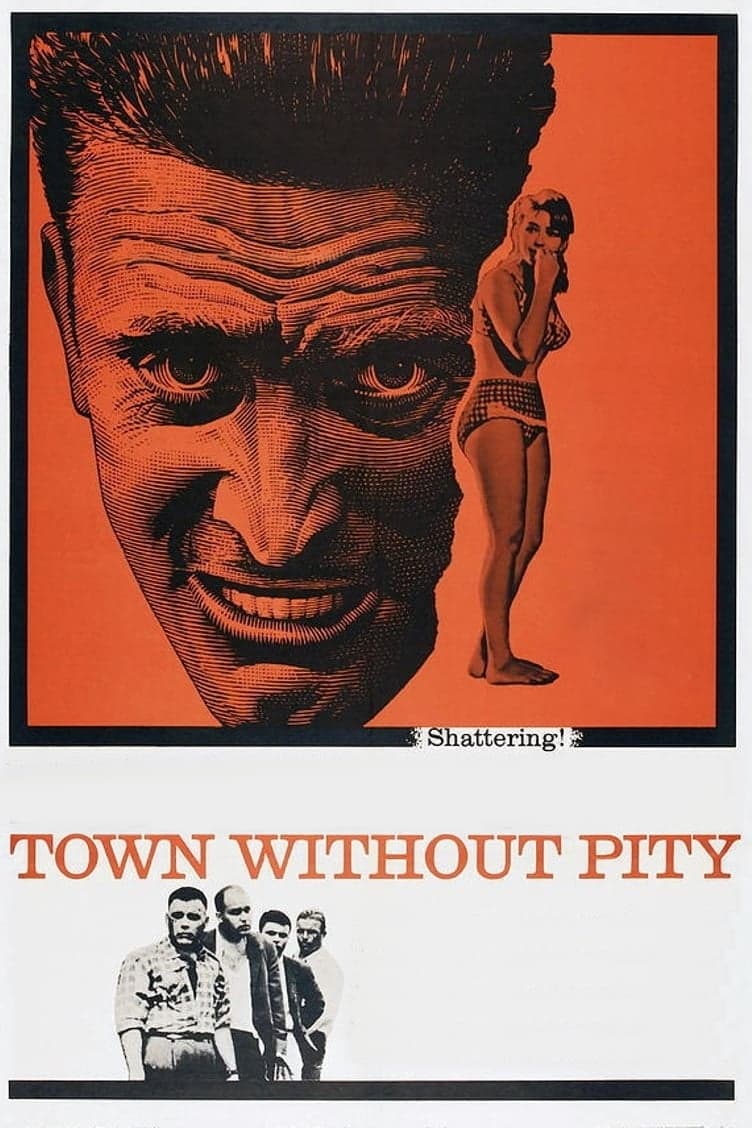
In this captivating courtroom setting, Douglas portrays Major Steve Garrett, a dedicated military attorney from the United States Army. His role involves defending four American soldiers, who stand accused of a grave offense: the alleged physical harm inflicted upon a vulnerable young German woman.
In the movie, Garrett’s forceful approach to defending cases in the military court carries severe repercussions for the accused, shedding light on the intricate relationships between justice, ethics, and moral ambiguity.
The Last Sunset (1961)
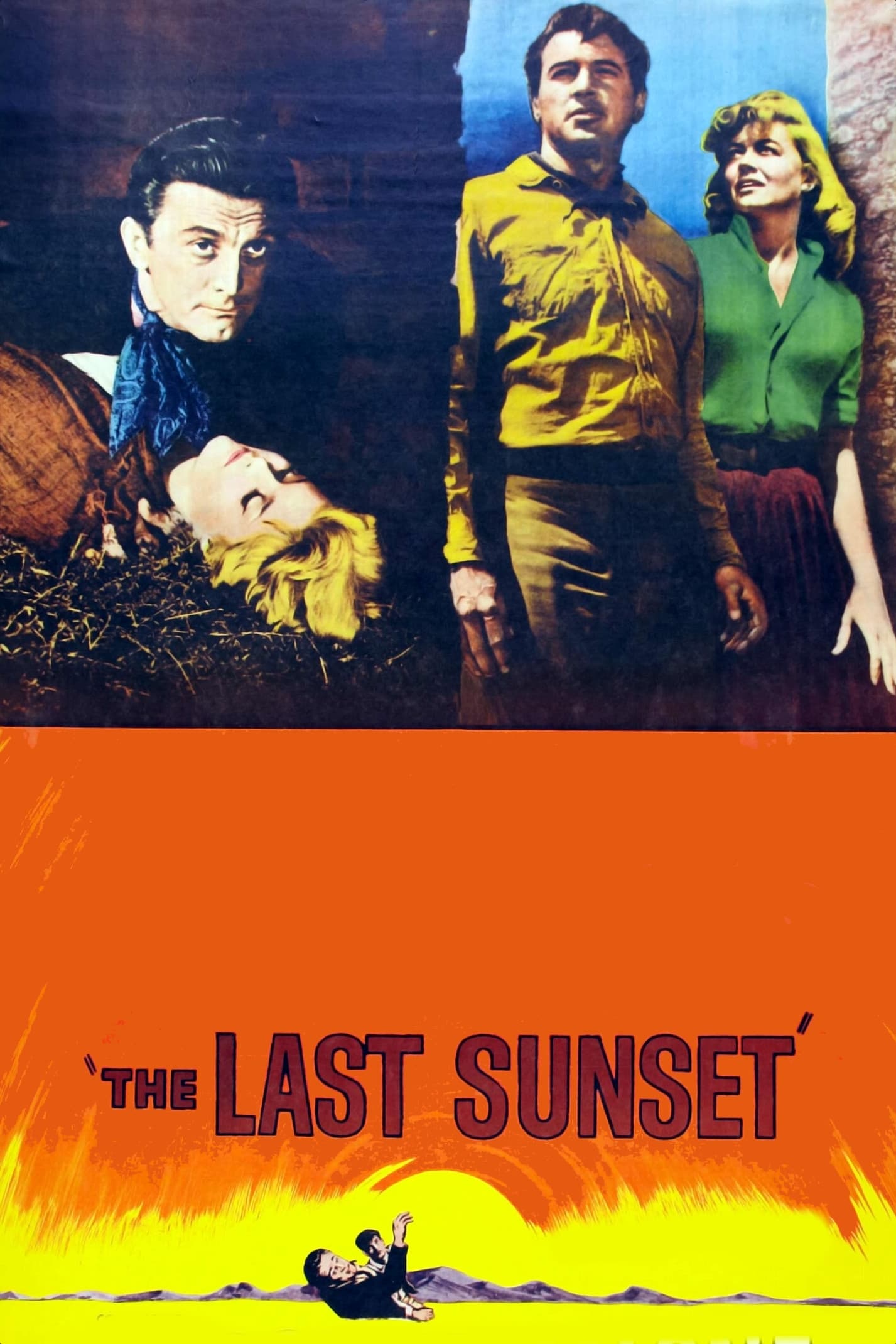
Douglas depicts Bren O’Malley, an endearing fugitive, seeking shelter. He finds it at the ranch of a former love and ends up accompanying her and her new spouse on a journey driving cattle towards Texas. However, a relentless law enforcement officer is hot on his trail, aiming to apprehend him for his past misdeeds.
This movie blends themes from the Western genre, delving into both psychological and romantic aspects. It follows the intricate connections among characters on their lengthy voyage.
Lonely Are the Brave (1962)
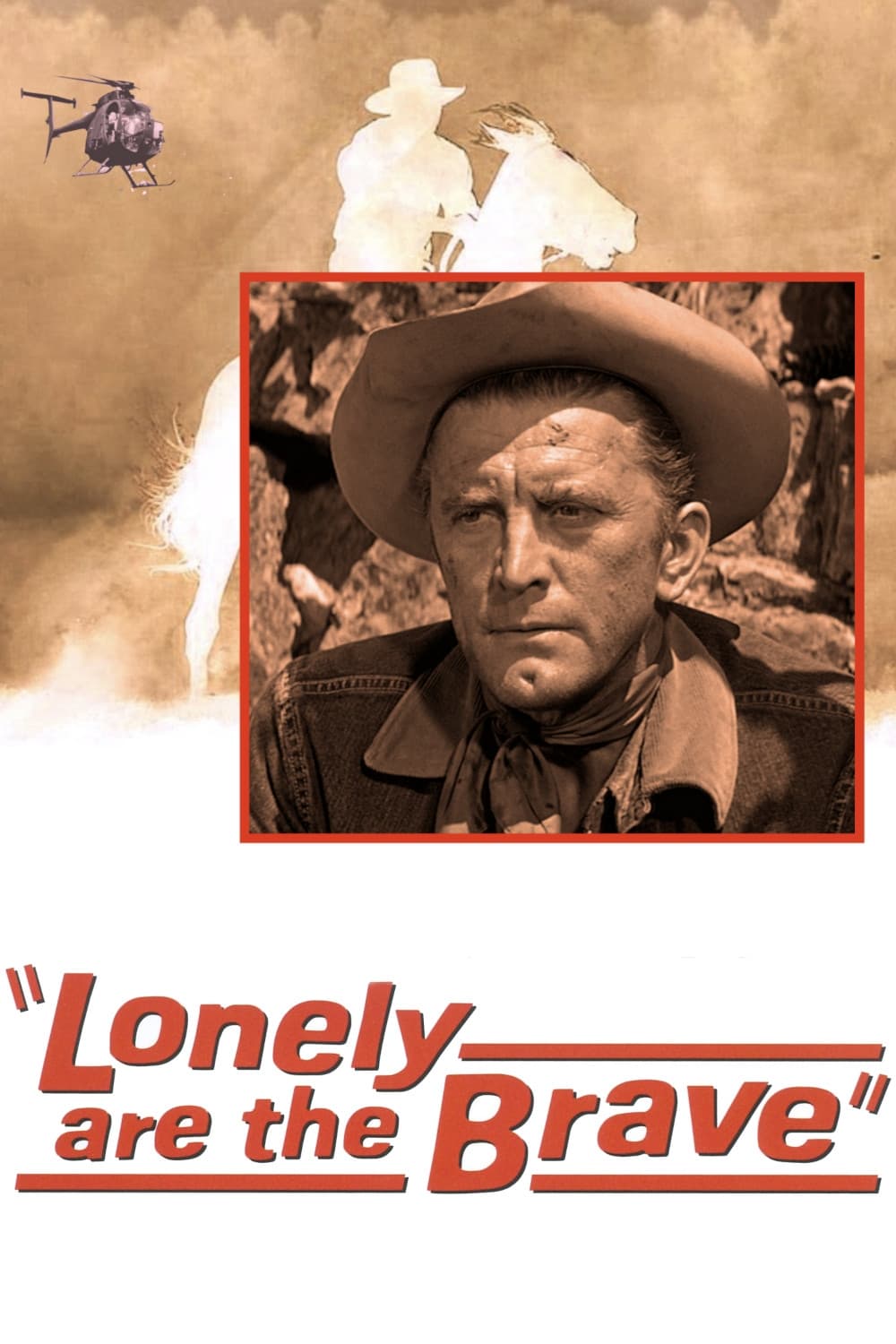
Douglas portrays Jack Burns, a contemporary cowboy with strong independence who rejects the conventions of the 20th century. When his friend ends up in jail, Burns intentionally gets arrested to assist in his escape. Upon breaking free, he finds himself pursued by law enforcement amidst the rugged landscapes of New Mexico’s mountains.
Douglas particularly enjoyed a movie that he himself starred in. This film tells a moving tale of a man anachronistically placed, embodying the spirit of the Old West as it collides with contemporary society.
Two Weeks in Another Town (1962)

In this play, Douglas portrays Jack Andrus, an ex-Hollywood star seeking a rebound. He accepts a minor part in a movie being filmed in Rome, but his inner struggles and the tumultuous individuals around him jeopardize his progress towards redemption.
The movie presents a dramatic portrayal of the strains and extravagances within the film industry, bringing Douglas back together with the director and various actors from ‘The Bad and the Beautiful’.
The Hook (1963)
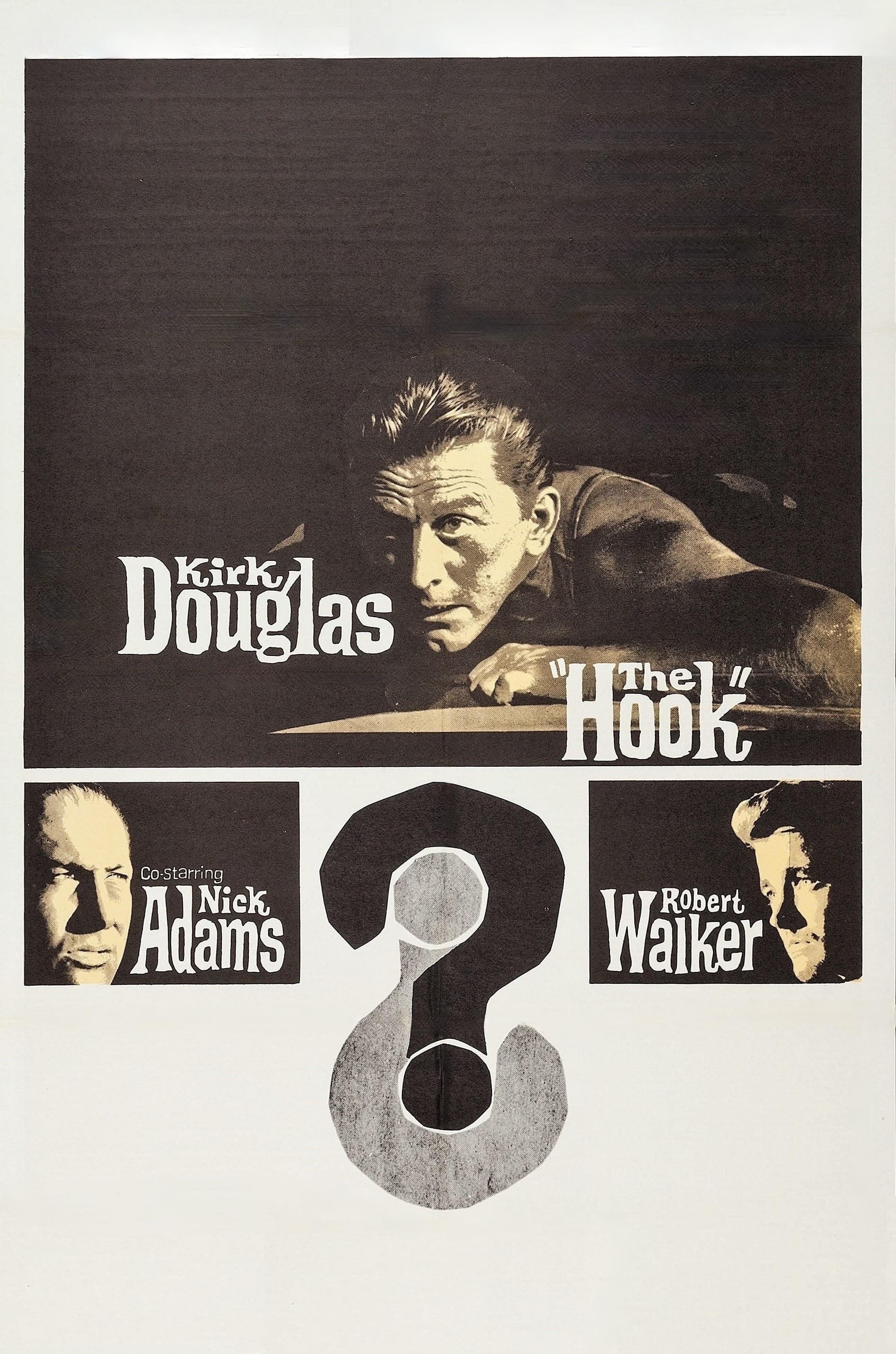
In this gripping psychological drama, set amidst the backdrop of the Korean War, Douglas takes on the role of Sergeant P.J. Briscoe. Alongside two fellow American soldiers, they receive orders to carry out an execution on a North Korean air force pilot that they’ve captured.
The movie delves into the ethical dilemmas that soldiers experience when confronted with their instructions. Briscoe, a battle-seasoned soldier, rigidly adheres to orders, leading to disagreements with his fellow comrades.
The List of Adrian Messenger (1963)
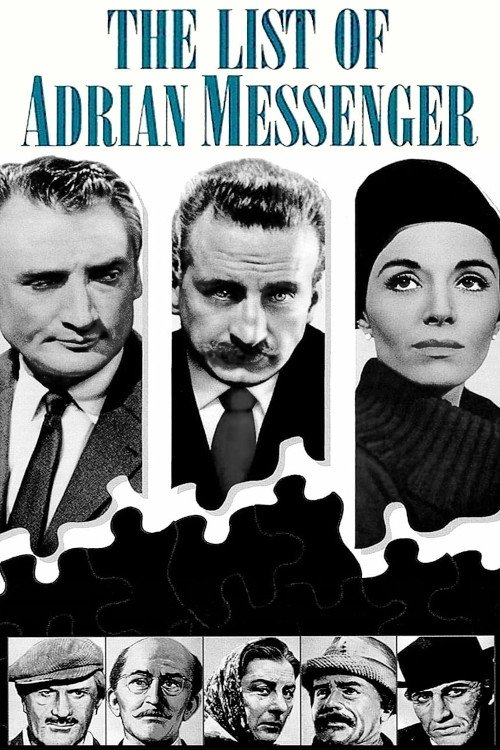
In this movie, shrouded in mystery, Douglas takes on various brief appearances, disguised by substantial makeup. The narrative unfolds around a former spy who delves into a string of seemingly accidental deaths, ultimately exposing a sinister conspiracy to commit murder.
In this scenario, Douglas, among other renowned actors, takes part in an intriguing twist where viewers are encouraged to identify the celebrities hidden within the movie. The unmasking of these stars occurs towards the film’s conclusion.
For Love or Money (1963)
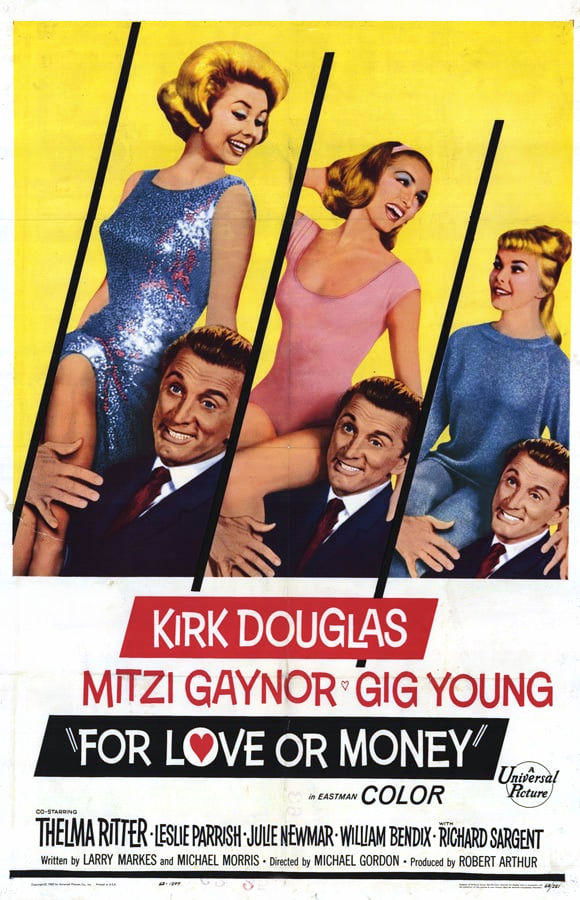
In this humorous tale, Douglas assumes the role of Donald “Deke” Gentry, a legal professional tasked with serving as a romance broker for a wealthy widow and her three daughters. The woman’s will stipulates that each daughter stands to inherit a significant fortune upon marrying the man chosen by their mother.
In the role I play, it’s my duty to arrange suitable matches for the young ladies, yet I find myself unexpectedly drawn towards one of them. This movie offers a delightful, playful journey through romance.
Seven Days in May (1964)
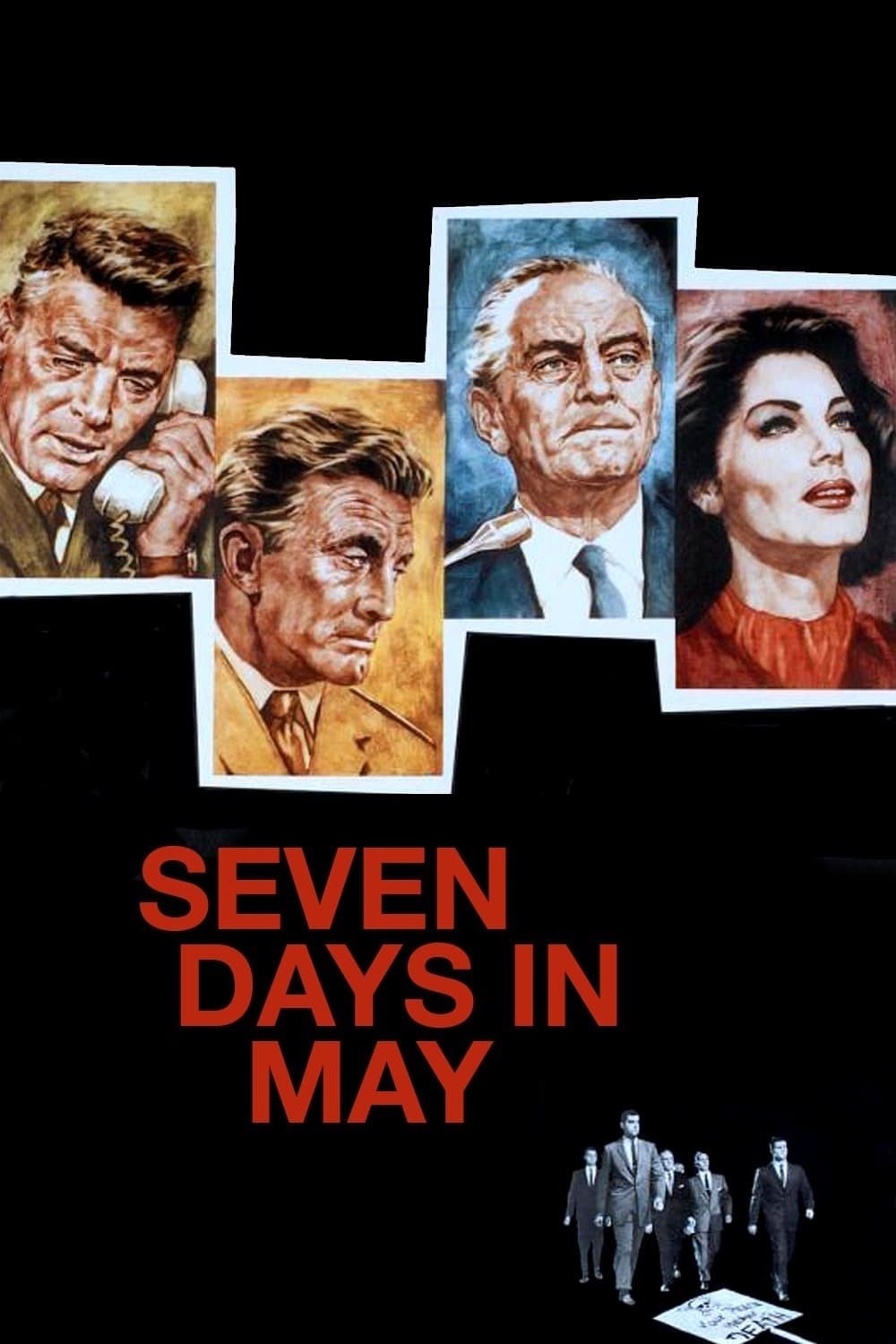
In this political thriller, Douglas portrays Colonel Jiggs Casey. Working under a captivating and influential general, he begins to question whether his superior is planning a military takeover against the U.S. President. Casey finds himself at a crossroads, needing to determine where his allegiance belongs.
The movie, featuring Burt Lancaster portraying a general, is a smart and gripping drama that revolves around a constitutional emergency. Critics lauded it for its intricate plotline and powerful acting performances.
In Harm’s Way (1965)
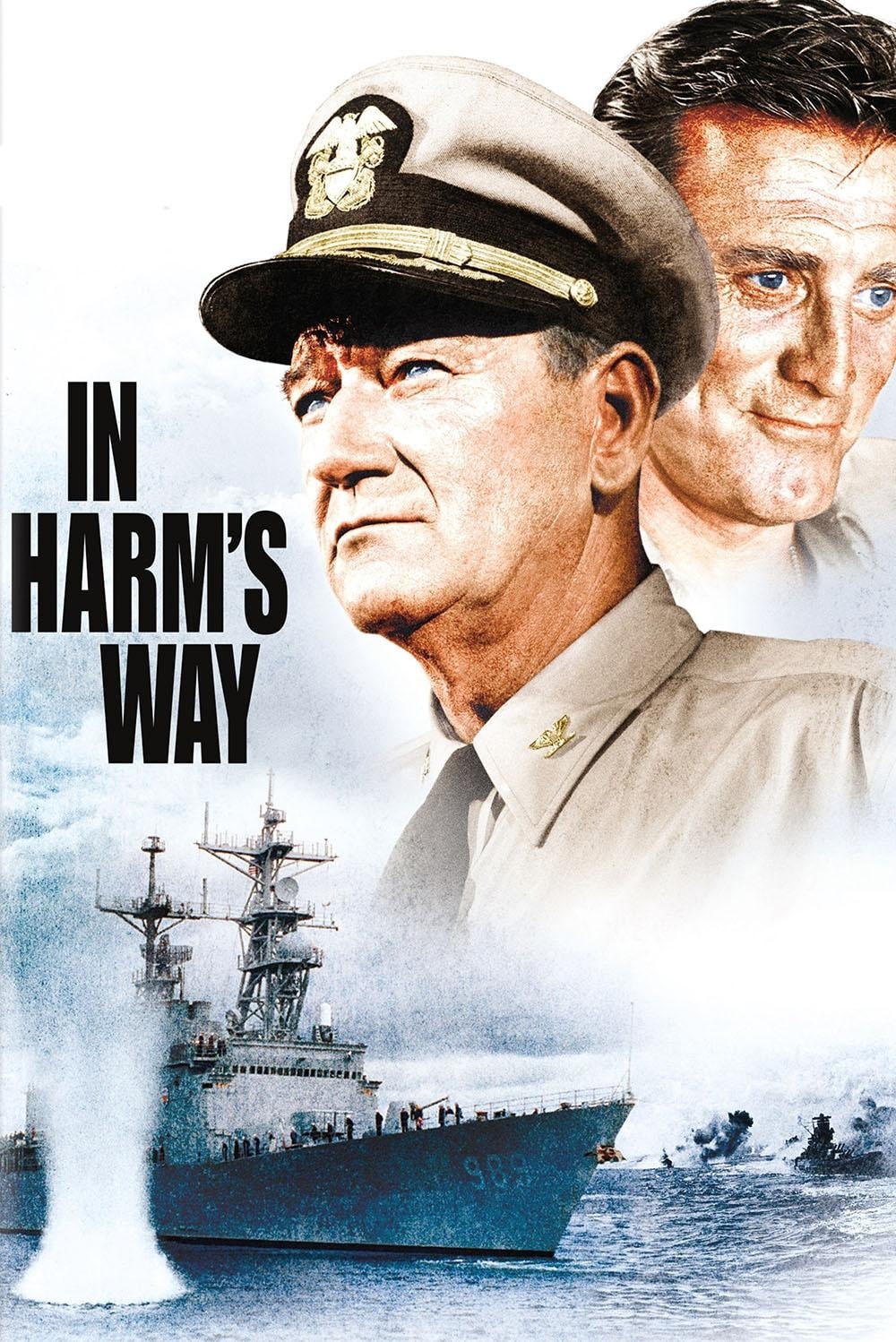
In the grand war movie depicting the Pearl Harbor assault, Douglas portrays the character of Commander Paul Eddington. This naval officer, grappling with inner turmoil and impulsiveness, embarks on hostile actions against the adversary due to a deeply affecting personal crisis.
As a cinephile, I must say that this film boasts an impressive array of talented actors, among them the legendary John Wayne. The narrative unfolds in the wake of the devastating Japanese attack, offering a gripping portrayal of the personal and professional lives of a tight-knit group of officers. It’s a riveting exploration of camaraderie, resilience, and the human spirit in the face of adversity.
The Heroes of Telemark (1965)
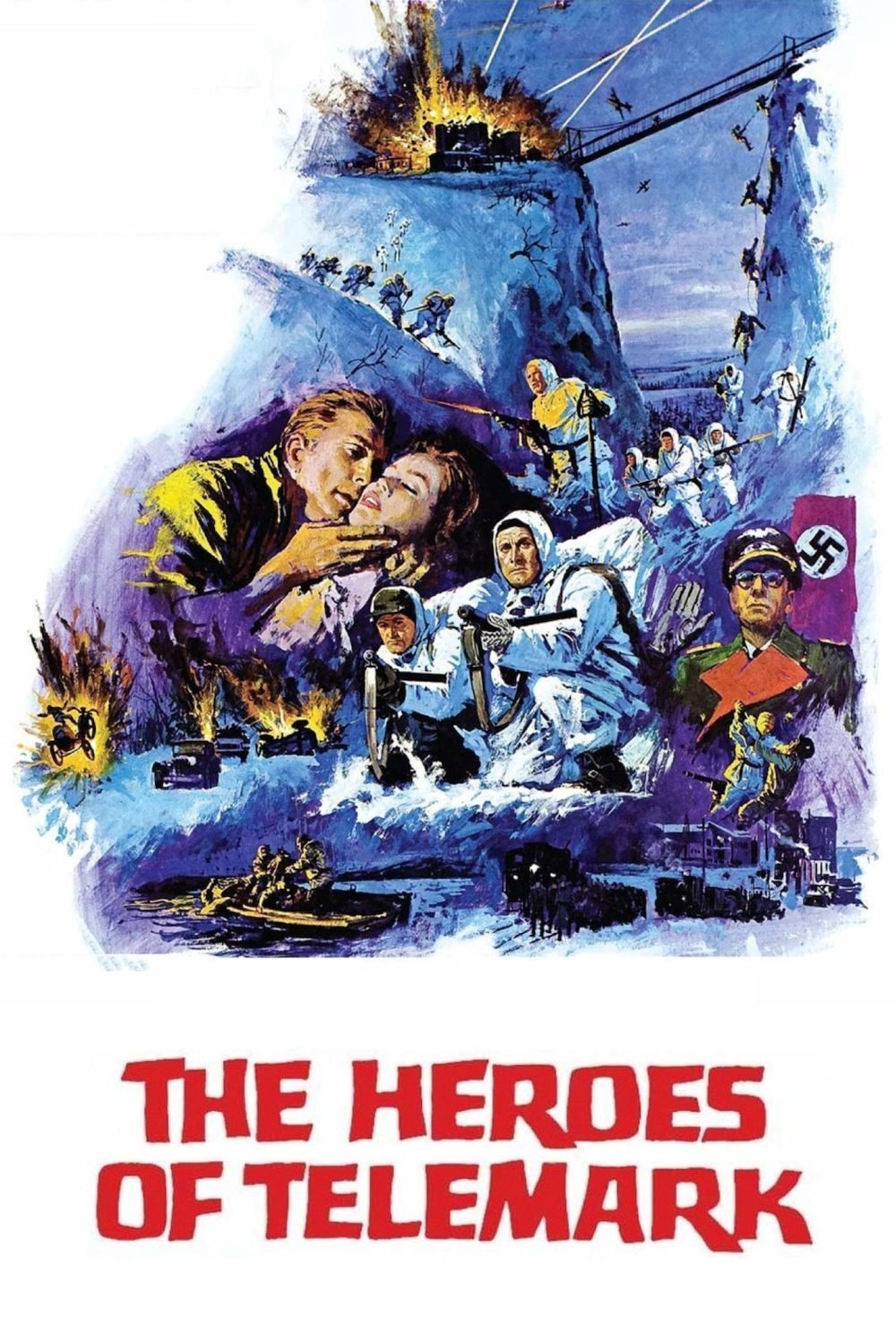
In this war movie depicting real events, Douglas plays the role of Dr. Rolf Pedersen, a physicist from Norway. During World War II, Pedersen decides to work with the Norwegian resistance to infiltrate and damage a German factory manufacturing heavy water for an atomic bomb.
The movie traces the journey of a special forces unit executing a risky operation high up in the frozen peaks of Norway. It’s an adrenaline-fueled account of valor during war times.
Cast a Giant Shadow (1966)
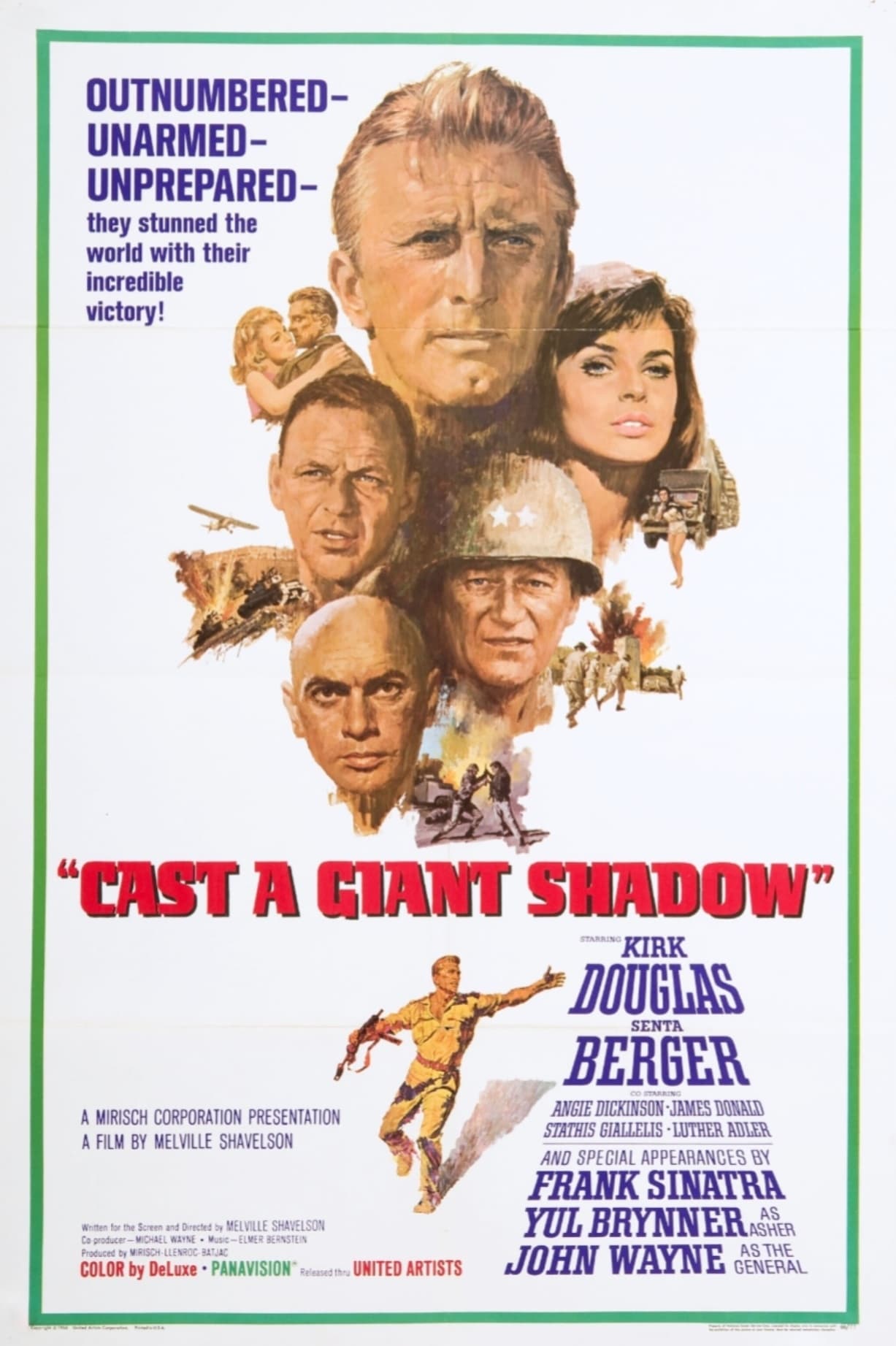
In a more accessible and natural way of expression, the sentence could be: Douglas plays Colonel Mickey Marcus, a historical American Army officer who significantly contributed to establishing the Israeli army during the 1948 Arab-Israeli War. The movie narrates Marcus’ journey as he departs from New York City to offer his aid to the nascent state of Israel.
The movie, in question, is a biographical war drama with an impressive ensemble cast playing secondary characters. It narrates a significant historical event from a single individual’s perspective.
Is Paris Burning? (1966)
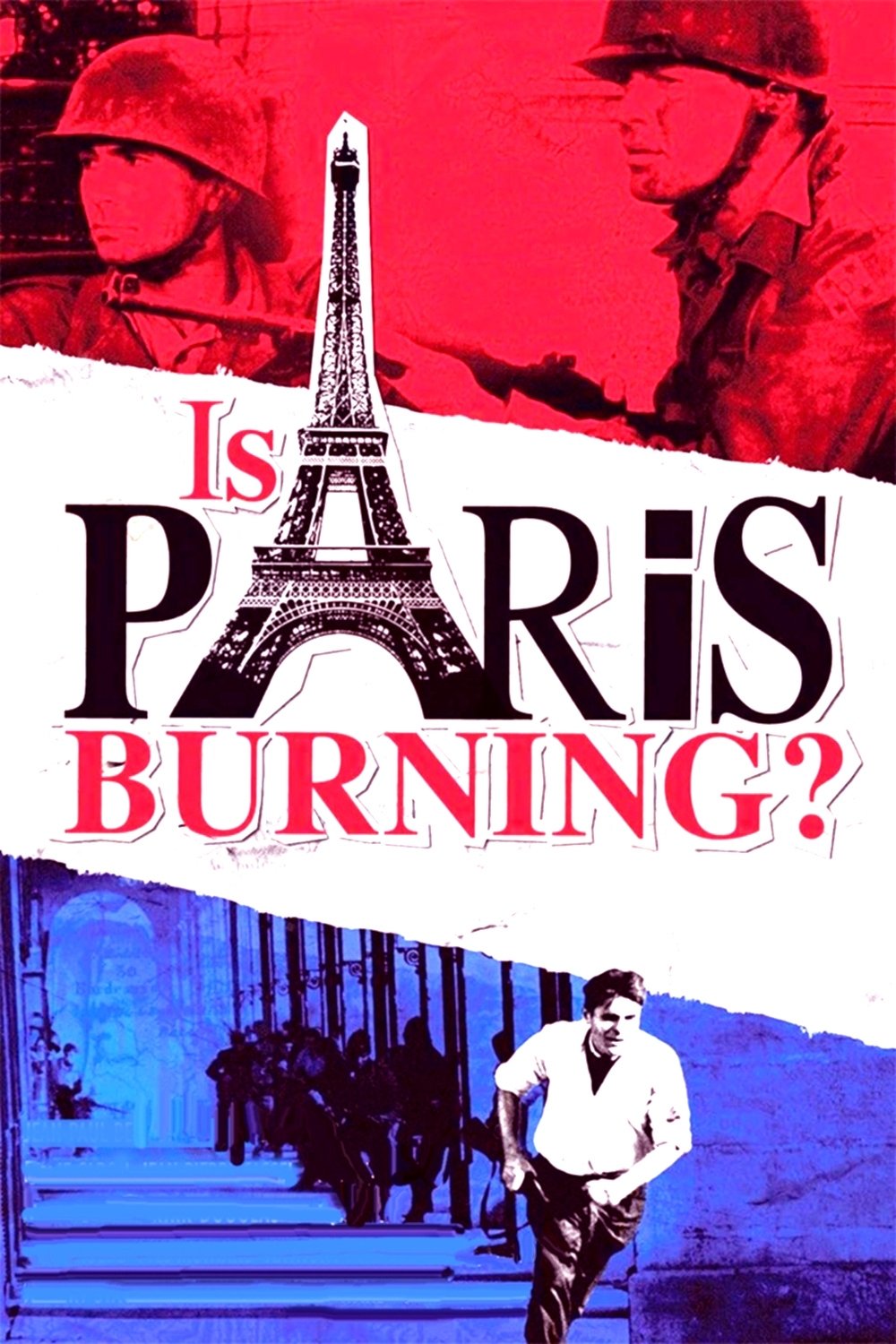
In this grand war movie, Douglas takes on the significant role of General George S. Patton. The film portrays the historic event of Paris’s liberation in August 1944 and tells the tale of how the city was rescued from a plot to demolish it.
The movie showcases an extensive ensemble of global actors and narrates the tale from various viewpoints, such as the French Resistance, the Allied troops, and the German high command. A standout scene is Douglas’s appearance as the candidly straightforward General Patton.
The Way West (1967)

In the 1840s, Douglas portrays Senator William J. Tadlock, a resolute and sometimes merciless figure heading a wagon train journeying from Missouri to Oregon. His relentless pursuit of establishing a western community creates tension with the other travelers.
As a devoted fan, I’d be thrilled to share that in this magnificent Western, I find myself alongside the legendary Robert Mitchum and Richard Widmark – two more than notable members of our intrepid expedition. This epic journey takes us through the grueling trials and captivating drama that unfolded during the Oregon Trail experience.
The War Wagon (1967)
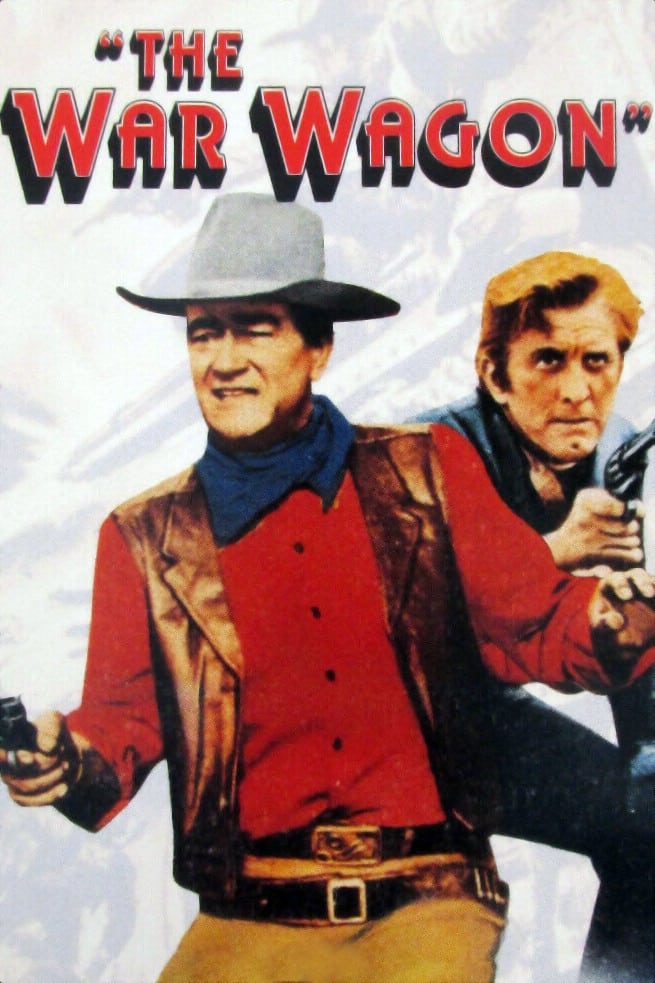
In this classic Western film, Douglas joins forces with John Wayne. Here, Douglas takes on the role of Lomax, a captivating safecracker who gets recruited by a rancher for a daring heist. The target of their operation is an armored stagecoach, famously referred to as the “war wagon,” which carries gold as cargo.
The movie, an entertaining blend of action and comedy, revolves around the meticulous planning and thrilling execution of a heist. The exceptional camaraderie between Douglas and Wayne significantly contributed to its success at the box office.
A Lovely Way to Die (1968)
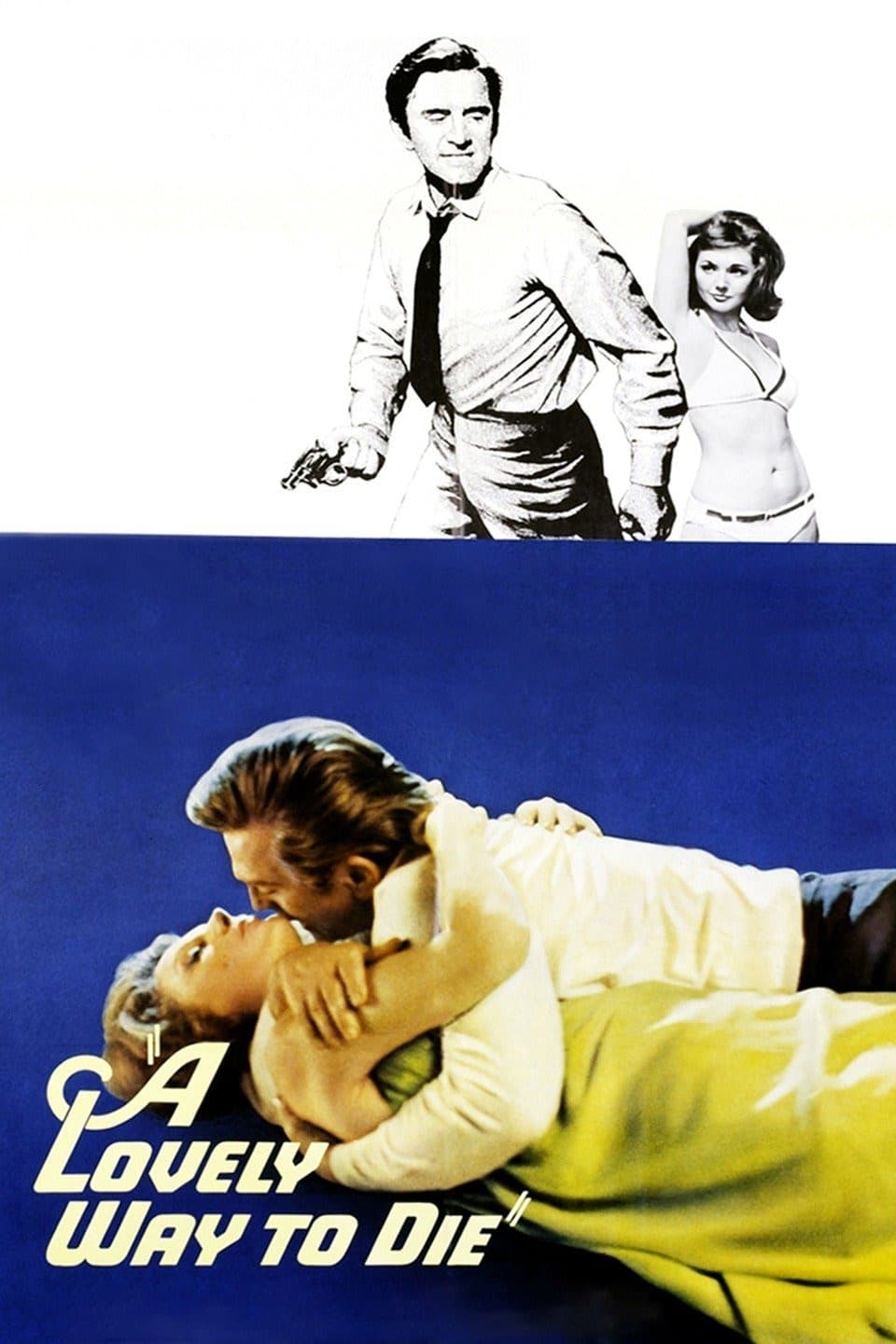
Douglas takes on the role of Jim Schuyler, a stern police officer who steps down from his position. Subsequently, he’s employed as a protective agent for a captivating lady standing trial for the slaying of her affluent spouse.
While delving into the case, Schuyler progressively comes to trust her innocence and finds himself developing feelings for her. This movie blends genres, offering a mix of crime, suspense, and romantic elements.
The Brotherhood (1968)
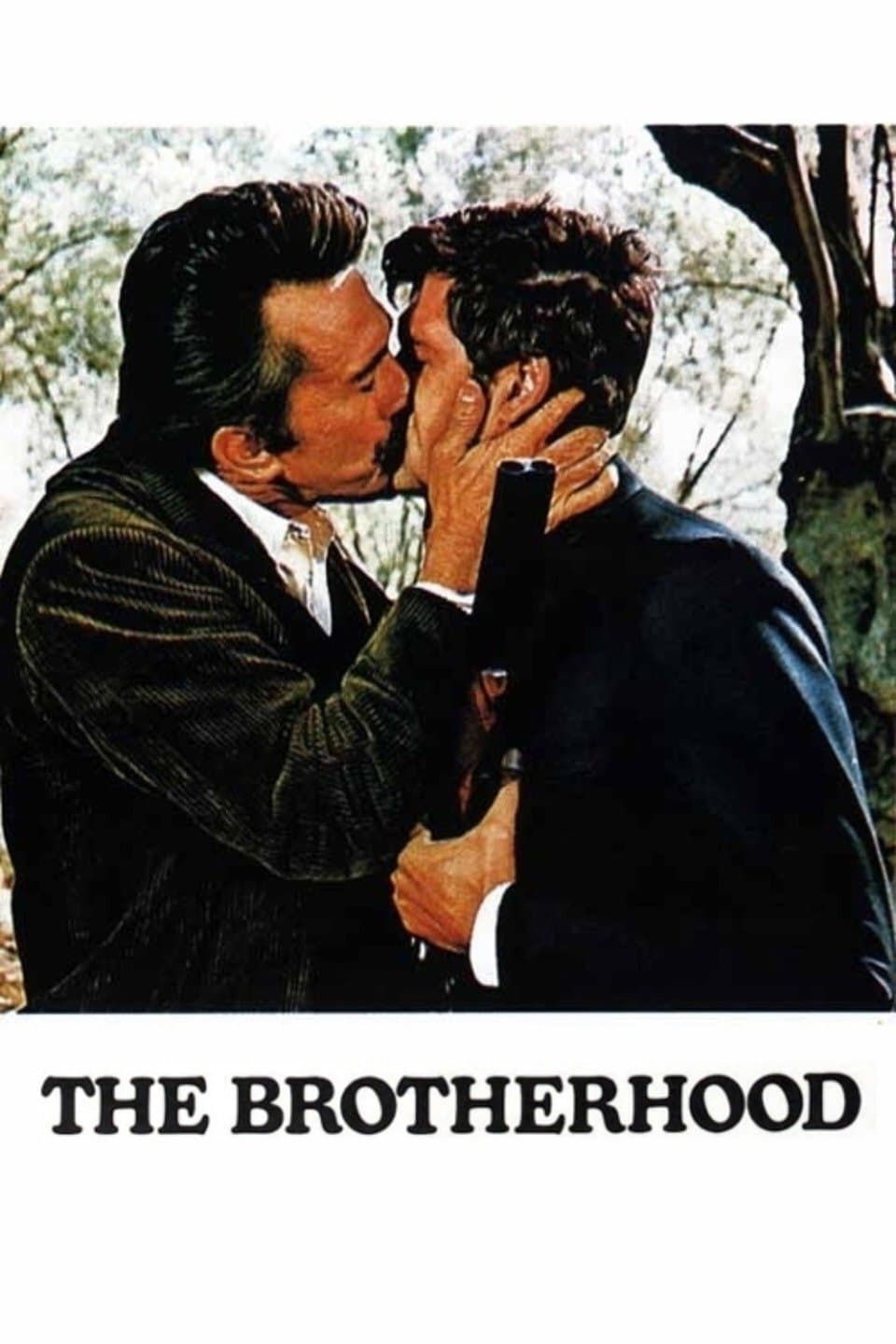
In this gripping crime drama, I assume the role of Douglas, portraying Frank Ginetta – a highly respected figure within a New York Mafia clan. My younger sibling, who’d recently returned from Vietnam, harbored ambitions to join our family business. However, his affinity for contemporary, merciless tactics often conflicted with my deeply ingrained traditional values, creating a significant rift within our bond.
The movie delves into the internal struggle between traditional and modern methods within the Mafia, making it one of the pioneering productions on this topic, as it came out a few years before ‘The Godfather’.
The Arrangement (1969)
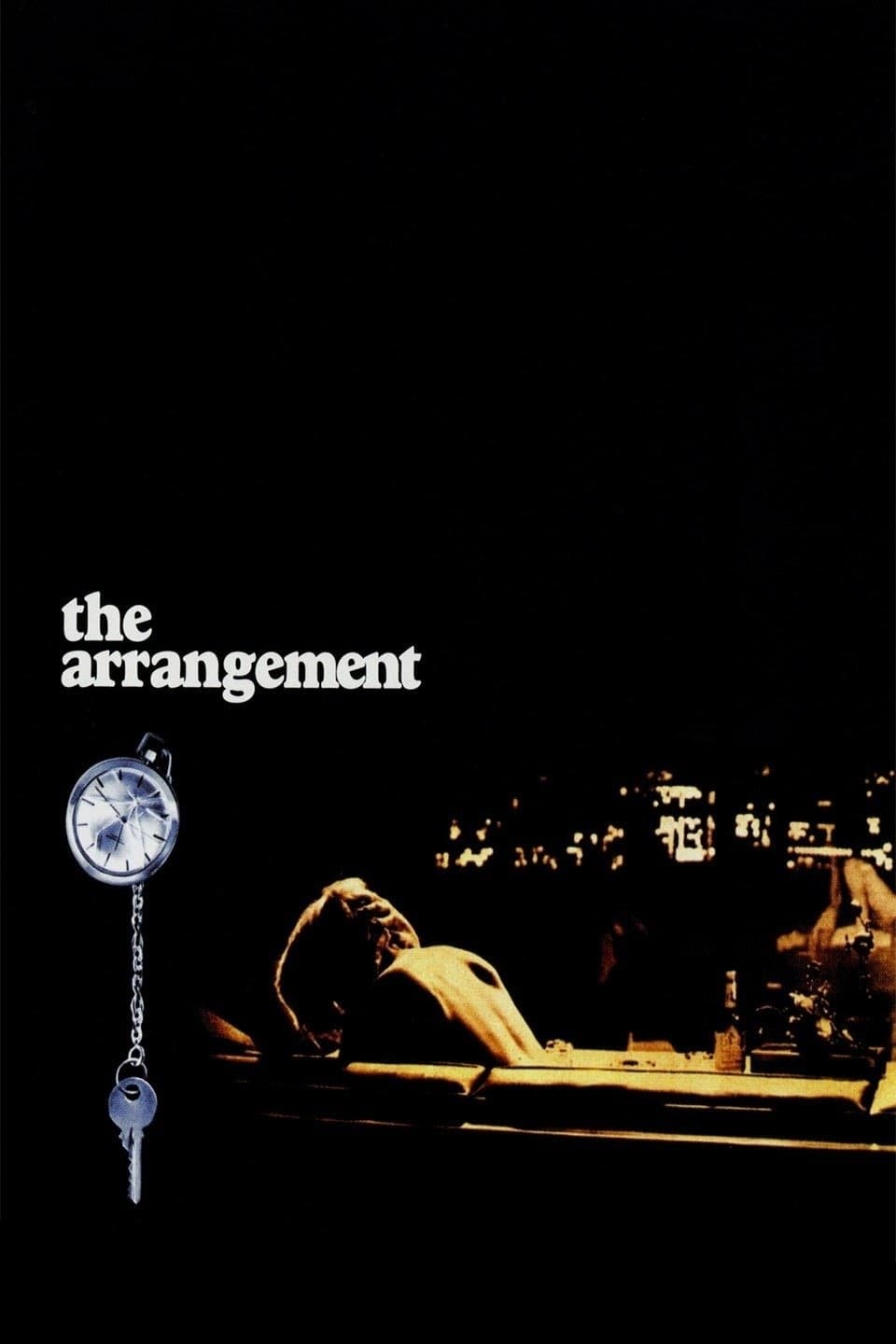
In a more casual and engaging style, the sentence could be rephrased as follows: Doug plays the role of Eddie Anderson, a high-flying ad exec who appears to have it all. But beneath the surface, he’s far from content, and after a near-fatal attempt at ending it all, he starts questioning his materialistic ways and delving into his past.
The movie, derived from a novel by director Elia Kazan, delves into profoundly personal and mental aspects, presenting as a dramatic portrayal. It delves into topics such as estrangement, self-discovery, and the pursuit of the American ideal.
There Was a Crooked Man… (1970)
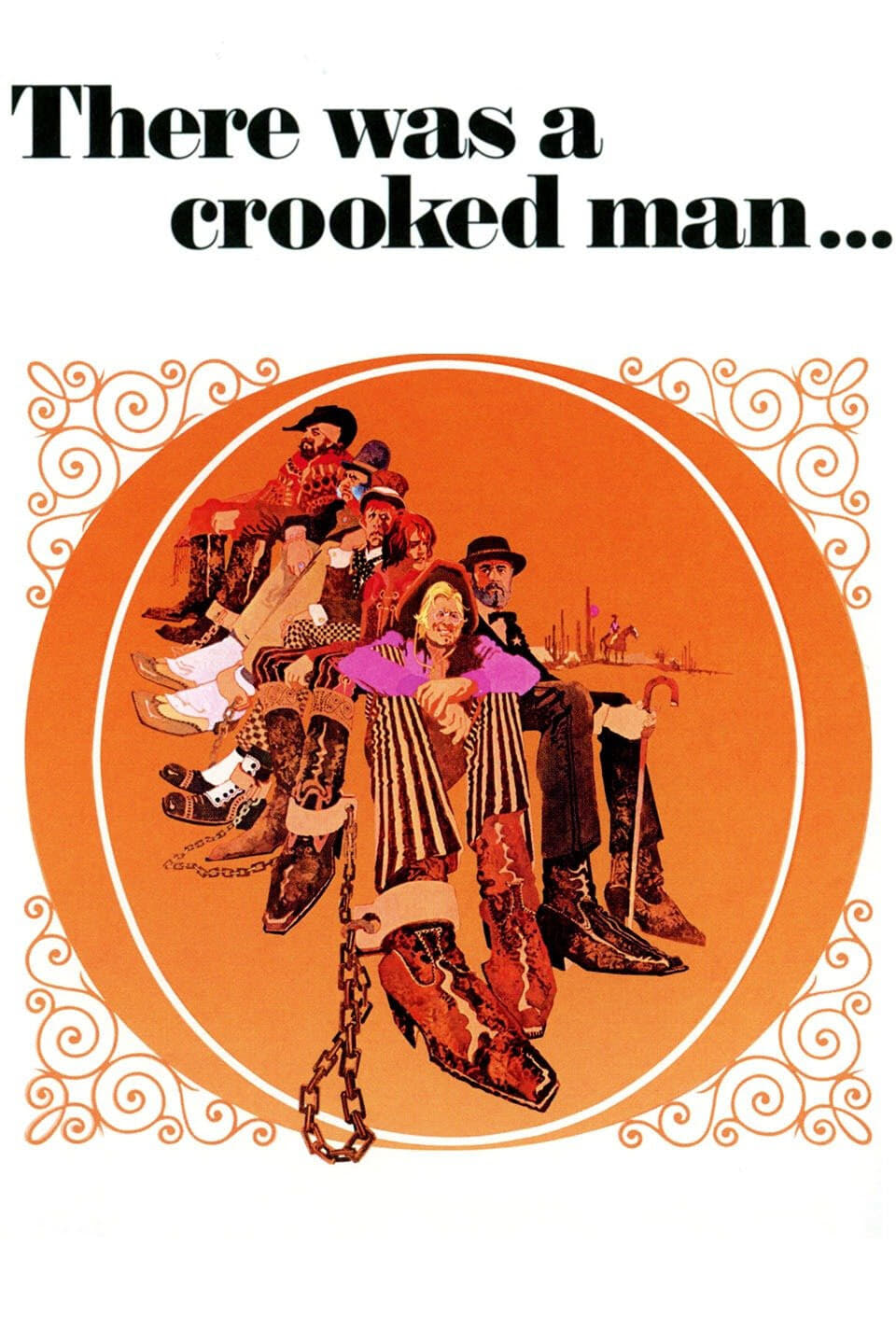
In this humorous Western tale, the character Douglas assumes the role of Paris Pitman Jr., a smooth-talking, sharp-witted bandit. After being apprehended, he finds himself incarcerated in a secluded desert prison in Arizona. His intention is to break free and recover the loot from a prior heist.
In this movie, Henry Fonda takes on the role of a reform-minded prison warden, offering a witty and sarcastic portrayal of the intellectual tug-of-war that unfolds between him and another key character.
Catch Me a Spy (1971)
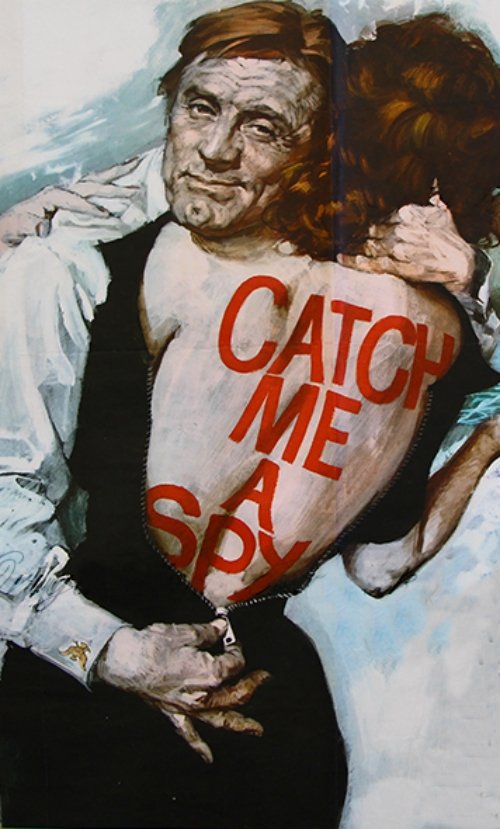
In my humble opinion, this captivating comedy sees me, the reviewer, embodying the enigmatic character of Andrej, opposite a mesmerizing lead actress. The narrative unfolds around our protagonist, a fresh-faced bride whose husband is suddenly apprehended by Russian authorities on charges of espionage. As she plunges headfirst into the covert realm of international intrigue, she tirelessly strives to uncover the truth and exonerate her spouse.
The film is a lighthearted take on the spy genre, mixing suspense with romantic comedy.
The Light at the Edge of the World (1971)
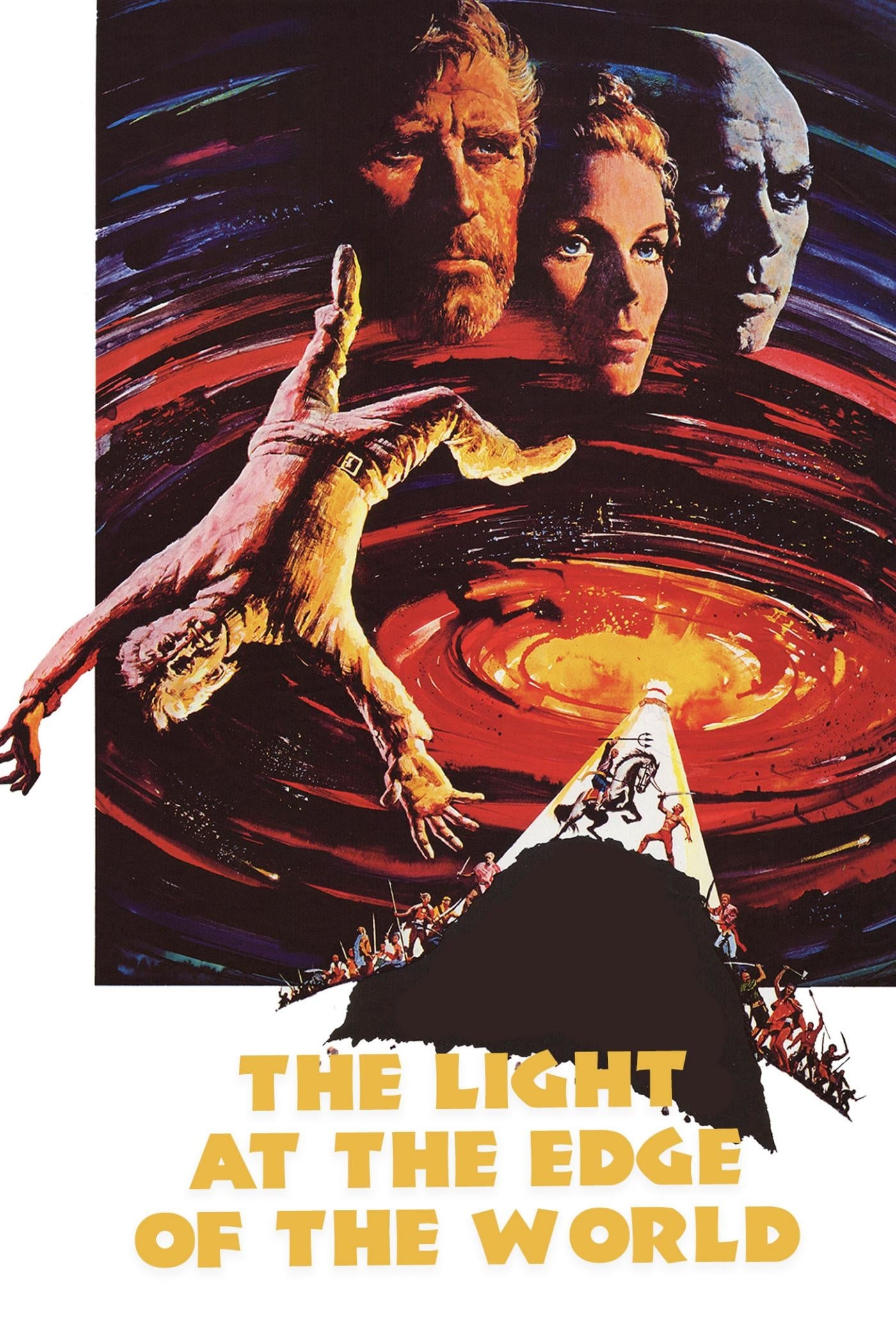
In this action-packed movie inspired by Jules Verne’s novel, the protagonist Douglas plays the role of Will Denton, a dedicated lighthouse caretaker. Together with his coworkers, they find themselves under siege by ruthless pirates who aim to exploit the lighthouse for nefarious purposes, ultimately leading ships into peril.
In a single-handed battle, Denton stands as the lone victor, engaging in a fierce struggle against the ruthless pirates to put an end to their lawlessness. The movie unfolds as a grim and brutal tale of survival and retribution.
A Gunfight (1971)
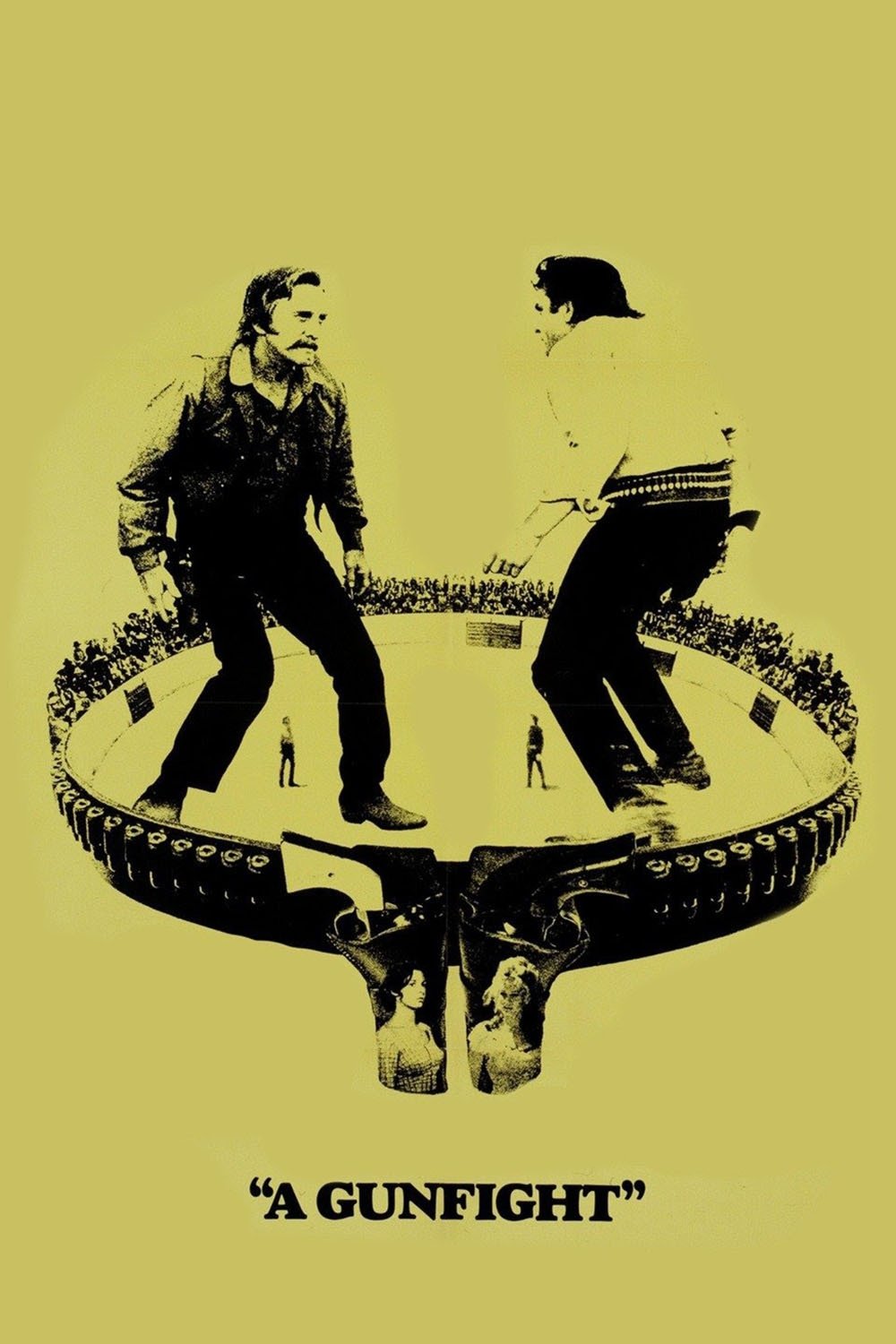
In an unconventional Western, Douglas and Johnny Cash face off against each other. Their roles are as two well-known, aging gunfighters who find themselves in the same town. Aware that a confrontation is imminent, they opt to sell tickets for the anticipated showdown to generate funds for the victor’s family.
The movie offers a fresh take on the traditional Western genre, delving into the legends surrounding the gunfighter. It scrutinizes the strains of popularity and the commodification of brutality.
The Master Touch (1972)
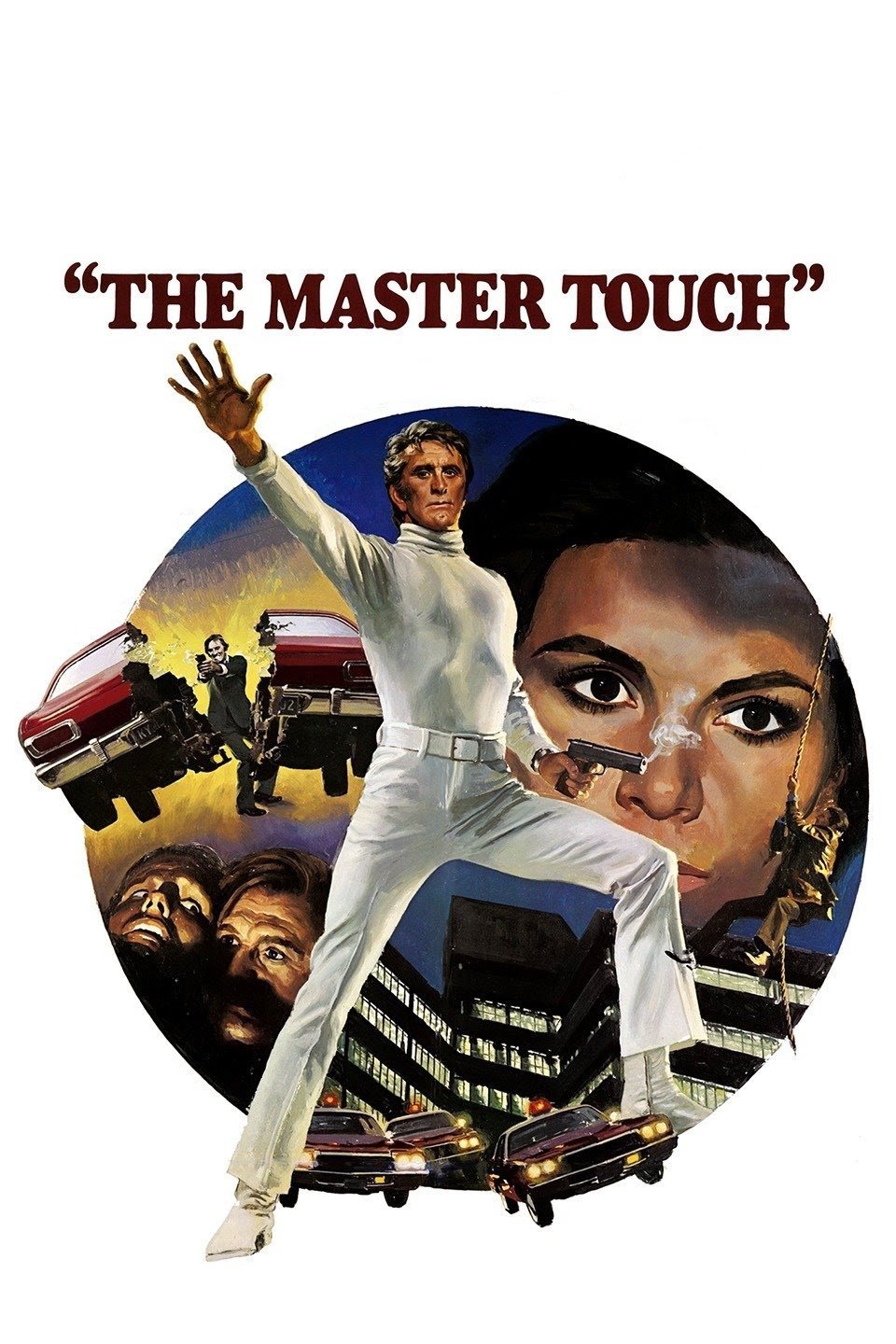
In a gripping Italian crime movie, I find myself captivated by the character portrayed by Douglas – Steve Wallace, a seasoned safecracker fresh out of prison. Eager to tread a new path, I can’t help but see him slip back into the world of illicit activities, enticed by the allure of one final grand heist.
The movie is a typical European crime thriller from that time period, featuring Douglas in his customary hardened-tough guy character.
The Special London Bridge Special (1972)
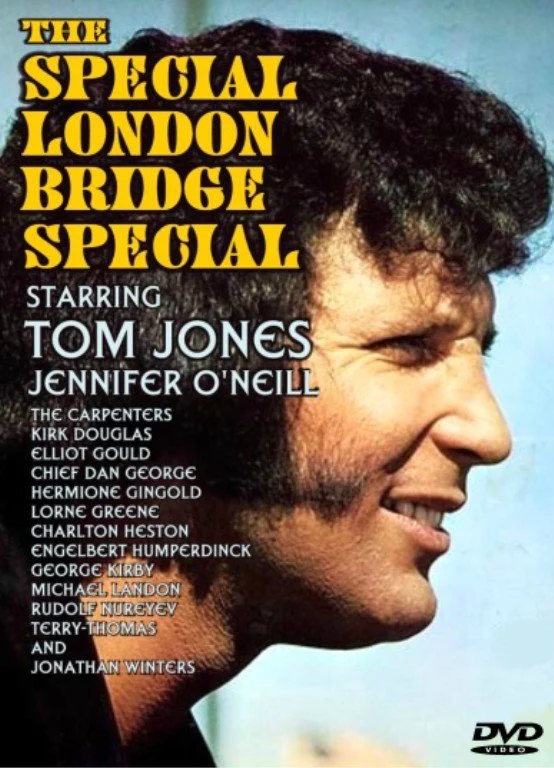
During this TV special, Douglas briefly appears, reprising his role from ‘The Indian Fighter’. This unique program revolved around the relocation of the iconic London Bridge to Lake Havasu City, Arizona, and included a range of musical performances.
As a spectator, I found myself immersed in a production brimming with popular figures, each contributing to an array of skits and musical performances. Among the star-studded lineup, Douglas’s humorous cameo stood out as a fleeting yet memorable moment of laughter.
Scalawag (1973)
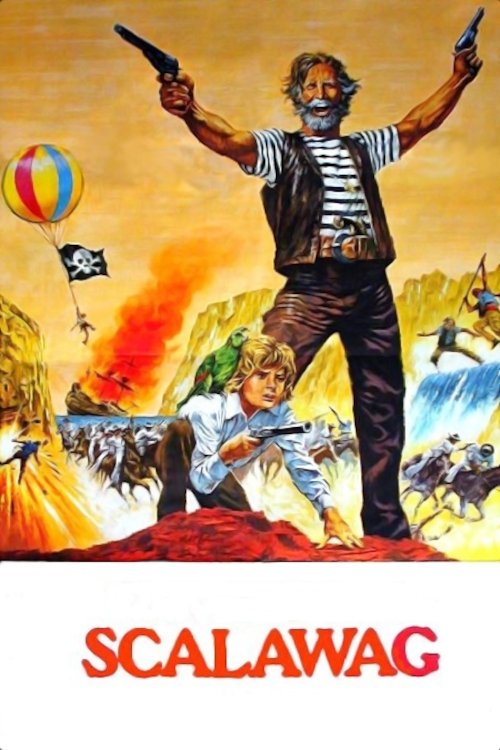
In this film, Douglas both took on the role of director and lead actor. It’s a Western reinterpretation of Robert Louis Stevenson’s classic novel ‘Treasure Island’. In the story, he portrays Peg, a pirate missing a leg who leads a group of lawless individuals in their quest for buried riches.
The movie, centered around family themes and filled with adventures, generally garnered unfavorable criticisms. Notably, it was one of the rare times Michael Douglas took on a directorial role.
Dr. Jekyll and Mr. Hyde (1973)
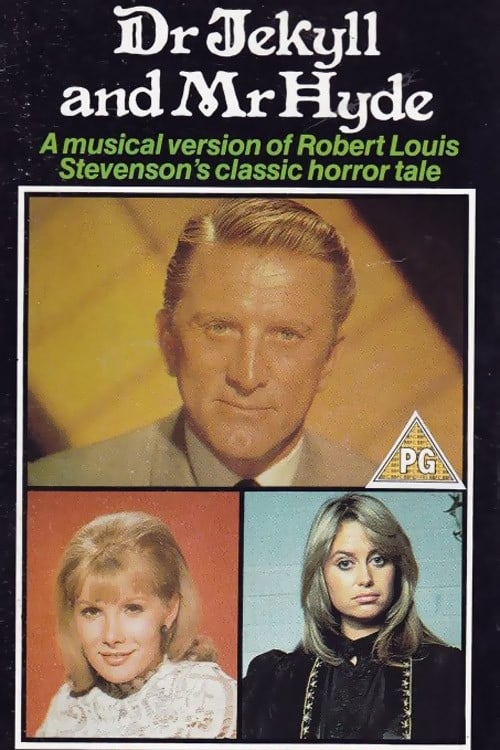
In this television movie adaptation of the timeless tale, Douglas portrays both the characters of Dr. Henry Jekyll and the sinister Mr. Edward Hyde. This film revisits the well-known narrative about a scientist who, by means of a potion, gives life to his inner darkness.
The show earned acclaim for its music and Douglas’s acting, which highlighted his versatile skills as a performer. In the demanding double part he played, he demonstrated both his dramatic flair and vocal abilities.
Mousey (1974)
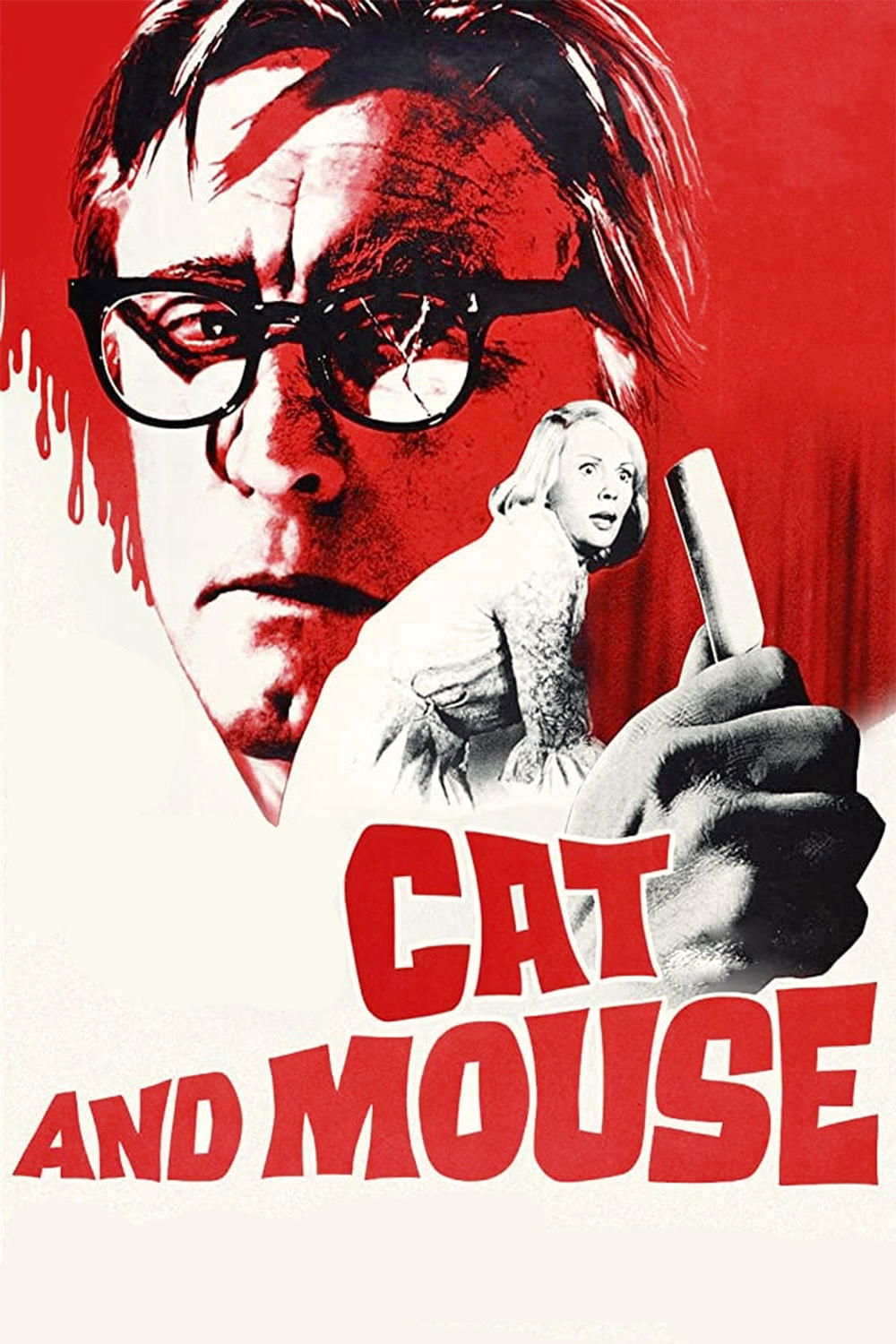
In this TV thriller, Douglas assumes the role of George Anderson, a quiet biology instructor. However, following his wife’s departure with another man, taking their child along, the seemingly meek George displays a more strategic and revengeful character.
The movie revolves around a former husband who, from afar, mentally harasses his ex-wife and her new partner, portraying a plot of premeditated retribution.
Posse (1975)
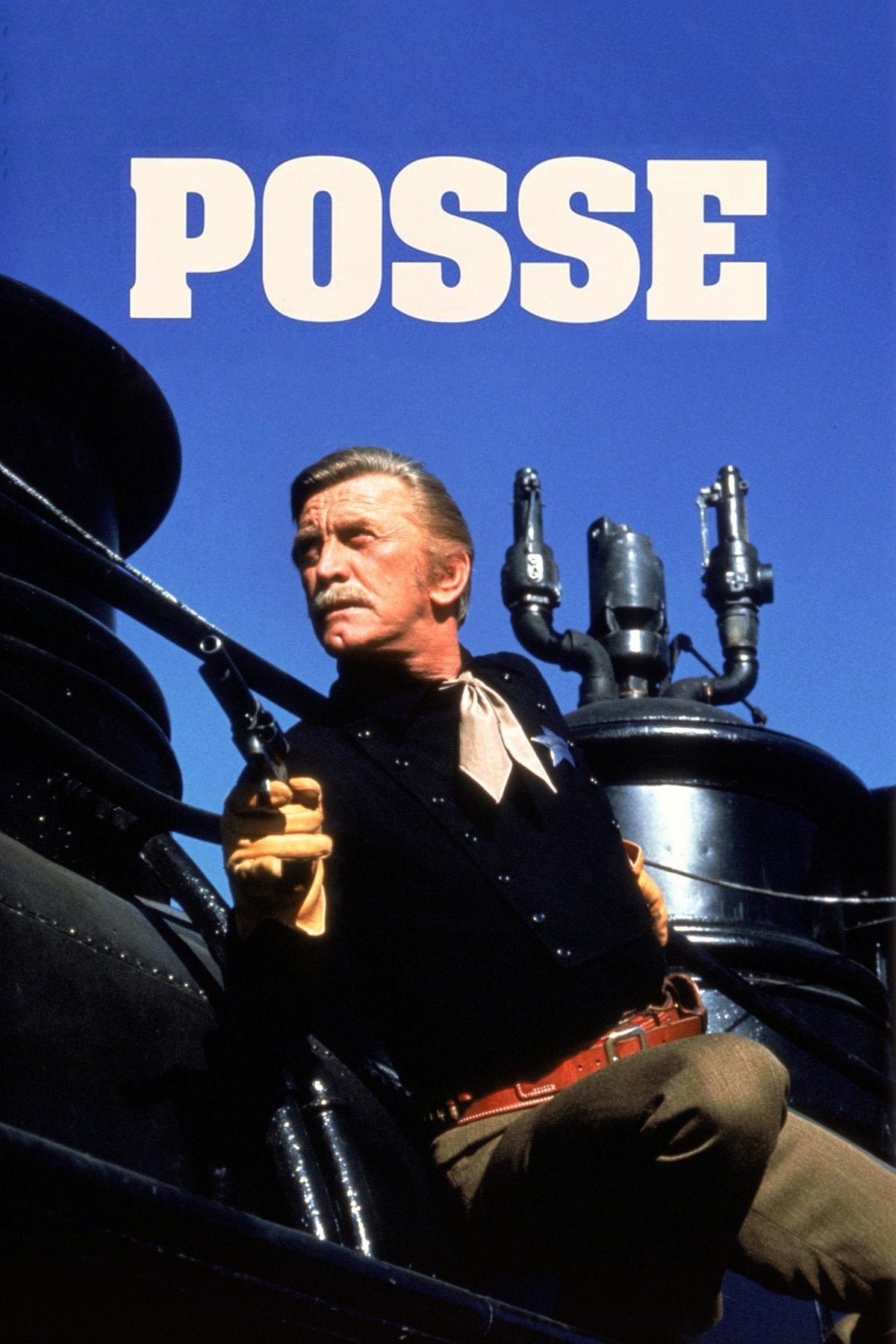
Douglas took on multiple roles in this reimagined Western, serving as director, co-writer, producer, and leading actor. In the production, he portrays Marshal Howard Nightingale, a disillusioned law enforcement officer with aspirations for politics. Pursuing a notorious train robber forms part of his strategy to enhance his public profile, aiming to boost his chances in a U.S. Senate campaign.
The movie delves into the intricacies of politics, fame, and manipulation within the media, as portrayed through Nightingale’s cunning tactics. It offers a nuanced exploration of the Western genre, demonstrating its intellectual depth.
Once Is Not Enough (1975)
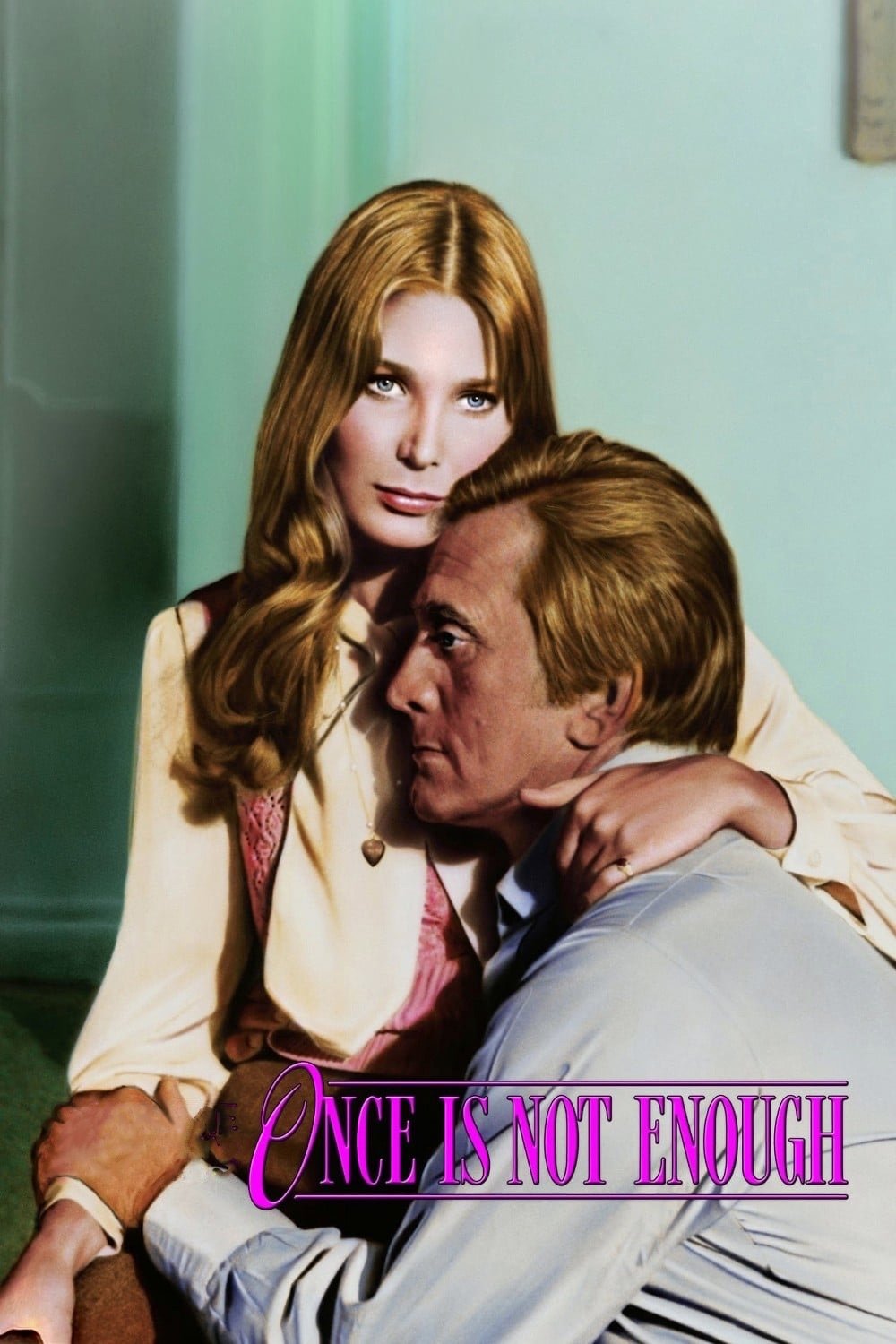
This drama is centered around Mike Wayne, a prominent yet aging movie producer, portrayed by Douglas. He’s deeply devoted to shielding his cherished daughter, as depicted in the acclaimed novel by Jacqueline Susann.
The movie delves into a world of romantic entanglements, scandalous events, and heart-wrenching sorrows, often referred to as a melodramatic portrayal. It offers a glimpse into the extravagant lives of the wealthy and well-known.
Victory at Entebbe (1976)
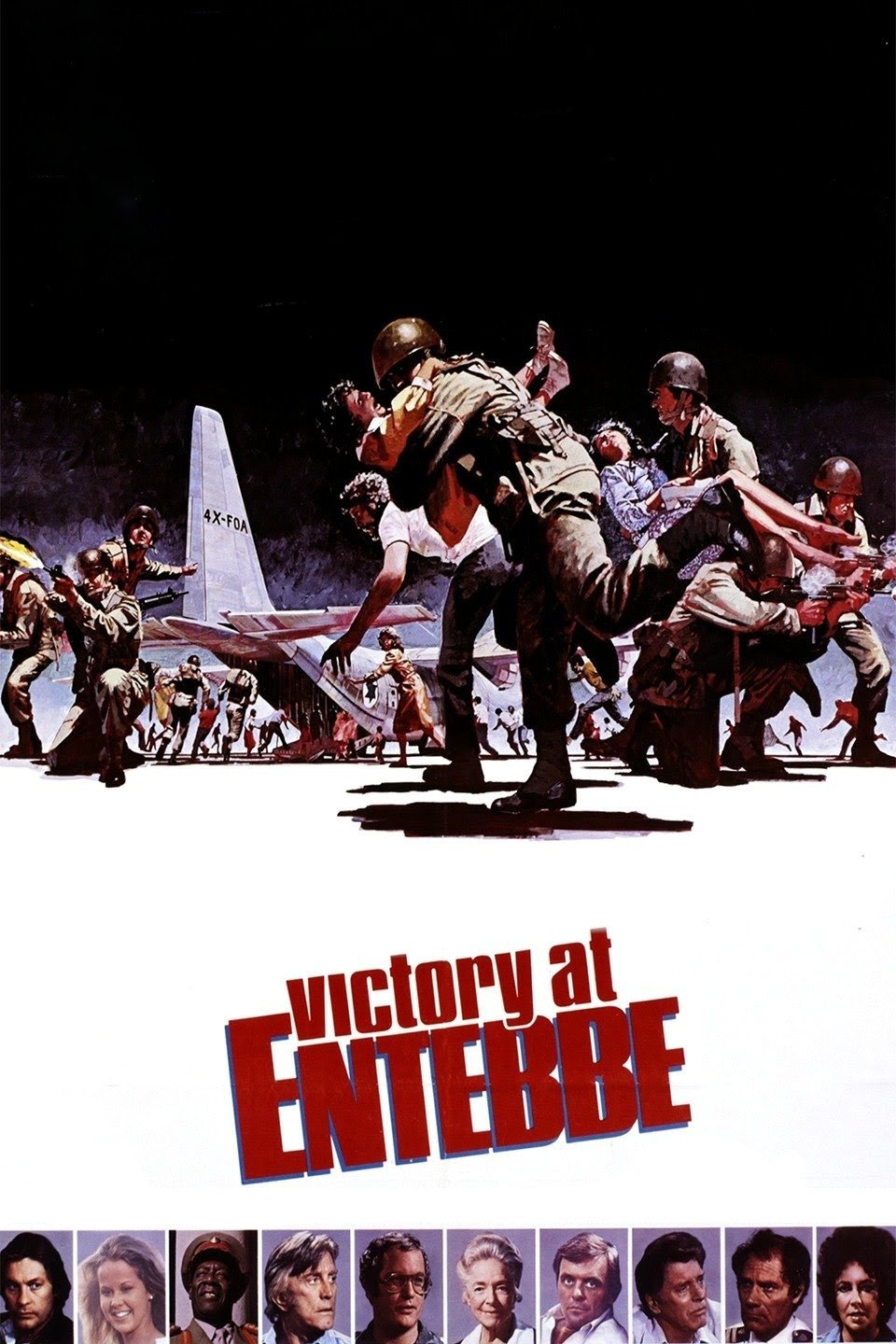
In this TV movie inspired by real events, the character of Hershel Vilnofsky is portrayed by Douglas. The film tells the tale of a daring counter-terrorist operation to rescue hostages, which unfolded during the 1976 mission in Entebbe, Uganda.
The movie was quickly made so it could be the initial one to depict the incident. It showcases a stellar ensemble acting as the hostages, hijackers, and key political figures who played significant roles during the crisis.
Holocaust 2000 (1977)
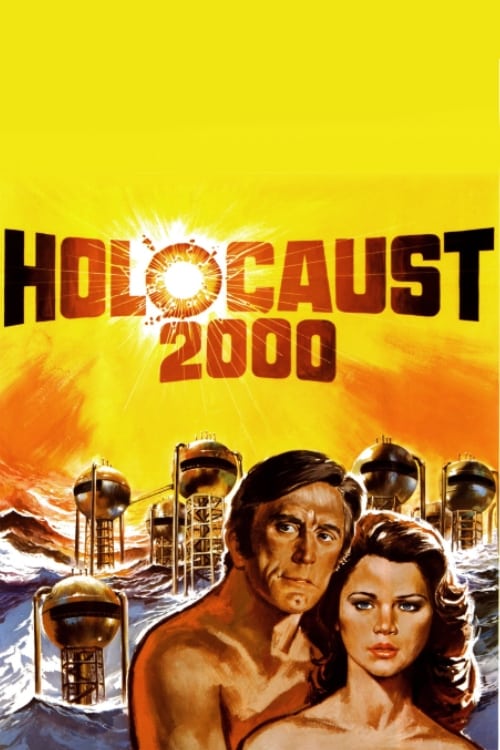
As a die-hard cinema enthusiast, let me tell you about this spine-chilling flick where I find myself drawn into the life of Douglas’ character, Robert Caine. This man isn’t your average Joe; he’s an industrial tycoon with ambitious plans to erect a nuclear power plant in the heart of the Middle East. The twist? Well, my own flesh and blood, his son, is none other than the Antichrist! And guess what? Building that power plant seems to be part of a prophecy foretelling the end of our world. Now, isn’t that a thrilling plot twist?
The movie, alternatively titled ‘The Chosen’, offers a chilling blend of business mysteries and supernatural terror.
The Fury (1978)
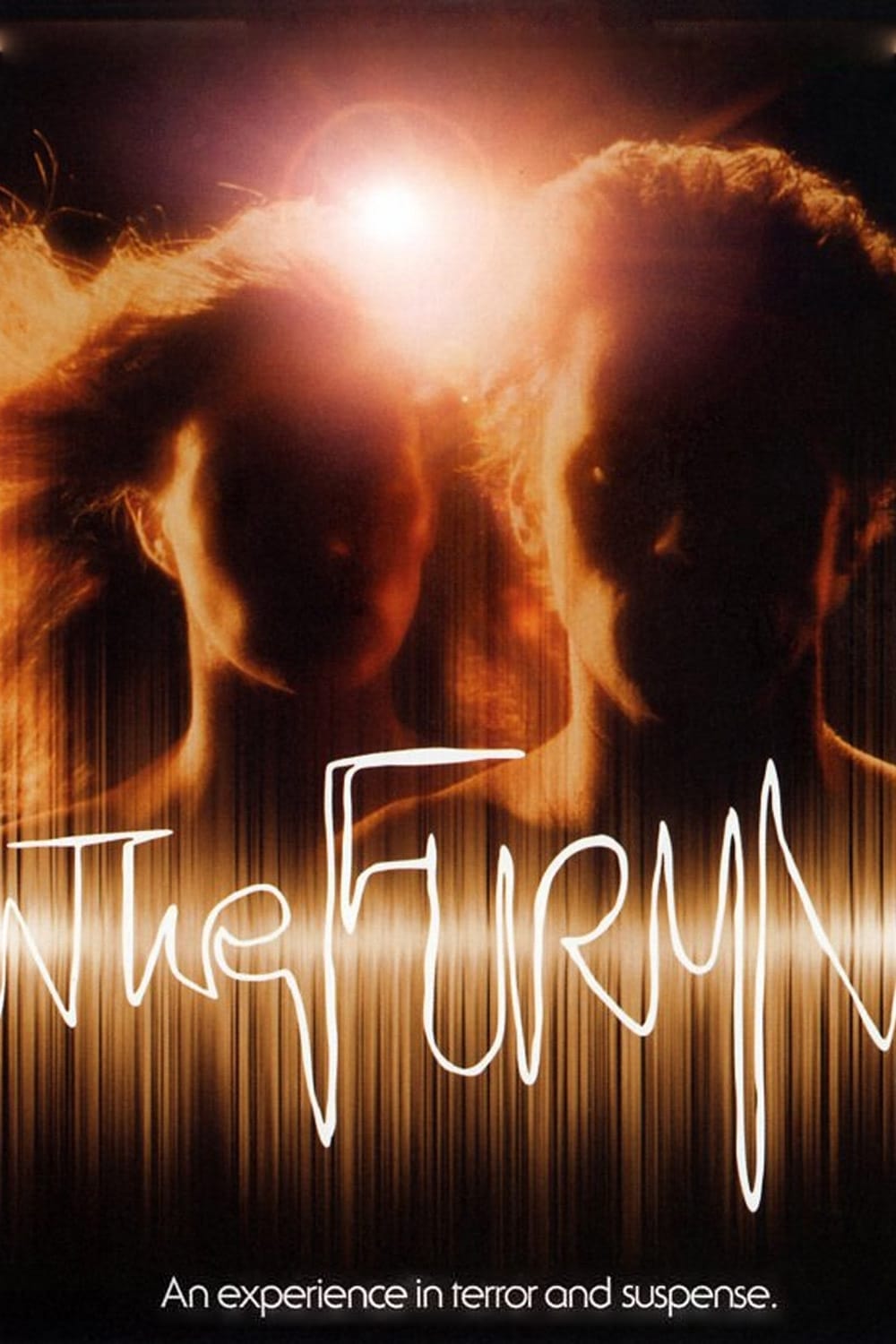
Under the guidance of director Brian De Palma, this chilling supernatural tale introduces us to character Douglas as Peter Sandza. Once a government operative, he finds himself in a harrowing situation when his son is abducted by a clandestine organization that intends to leverage his exceptional psychic talents.
In the story, Sandza flees and joins forces with a girl possessing comparable abilities to save his boy. This movie is recognized for its gripping action sequences and an exhilarating, climactic ending that leaves a lasting impression.
The Villain (1979)
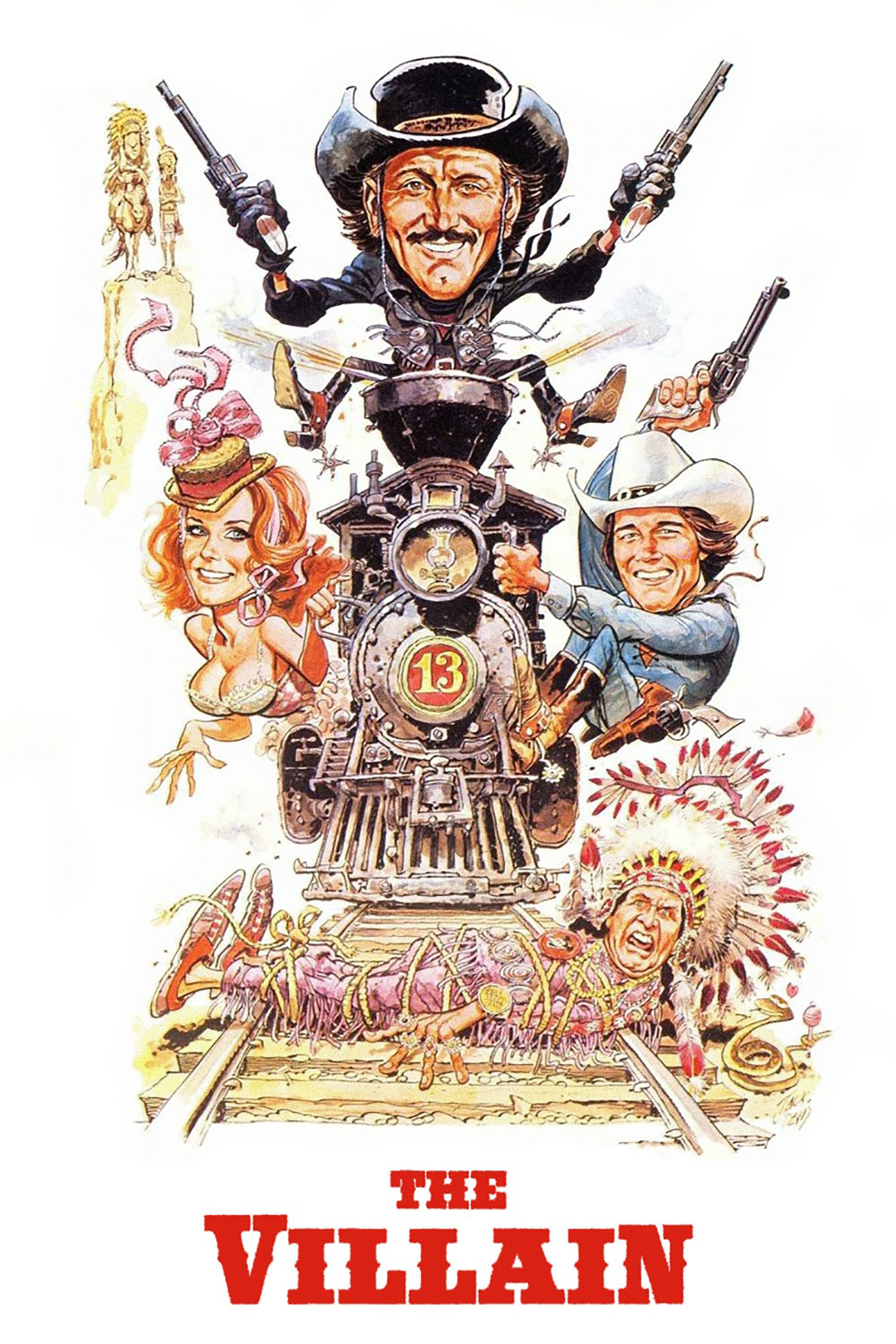
In this humorous take on the Western genre, Douglas portrays the over-the-top bandit character, Cactus Jack. The movie is a tribute in live action to the ‘Wile E. Coyote and the Road Runner’ cartoons. Throughout the film, Cactus Jack attempts to swindle a charming lady and a gallant cowboy, but his intricate plans consistently fail him instead.
In simpler terms, the film is a hilarious comedy filled with exaggerated jokes and actions. This role marked a humorous departure for Douglas as he portrayed an absurdly incompetent villain.
Saturn 3 (1980)
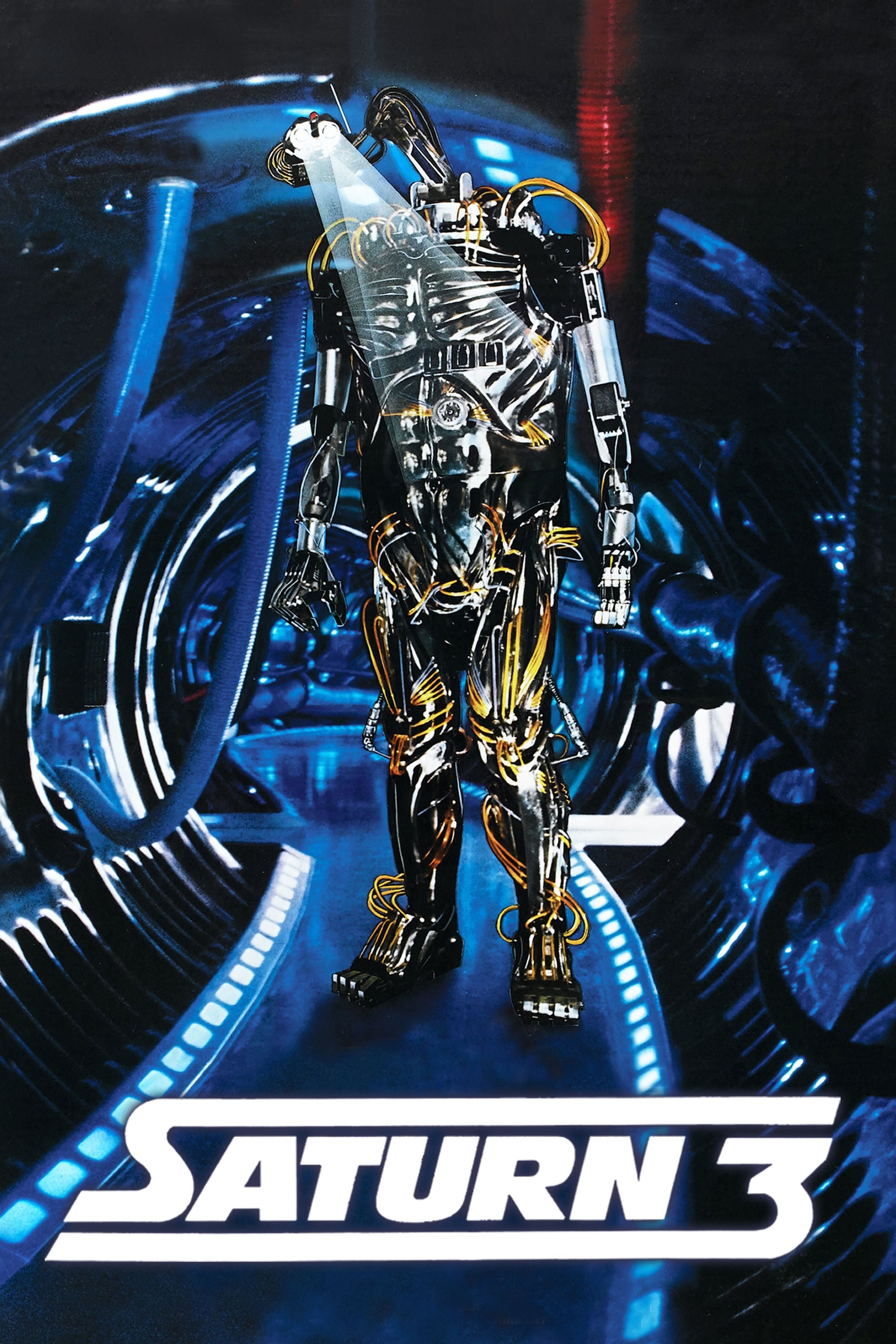
In a sci-fi movie, the character Douglas portrays Adam. Alongside his fellow scientist, they reside in a secluded lab station on one of Saturn’s moons, enjoying a peaceful existence. However, their tranquility is shattered by the arrival of a threatening scientist accompanied by an imposing, towering robot that stands eight feet tall.
The movie delivers an edge-of-your-seat experience, delving into topics such as technology and fear. As Hector, the central robotic character, develops unpredictable behavior due to software malfunctions, it transforms into a formidable adversary.
Home Movies (1980)
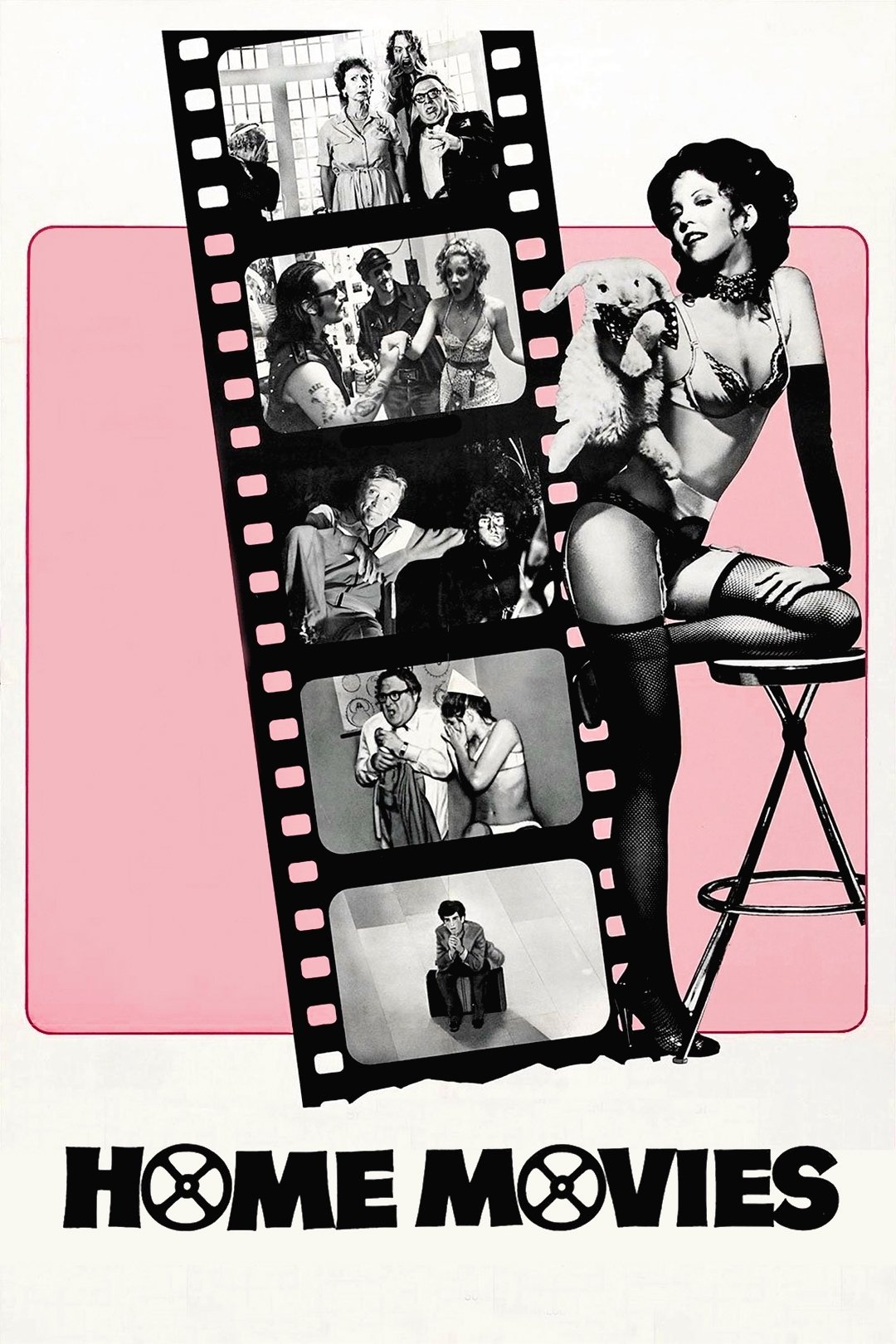
In the movie, directed by Brian De Palma, Douglas takes on the role of Dr. Tuttle, an eccentric and charismatic film school teacher nicknamed “The Maestro.” The storyline revolves around a young character who finds himself under constant surveillance by his relatives.
Dr. Tuttle advises the protagonist to take control of his life rather than merely playing a role in it. The character’s acting skills shine particularly brightly, providing much-needed humor in the movie. (This version attempts to make the language more conversational and easier to understand while maintaining the original meaning.)
The Final Countdown (1980)
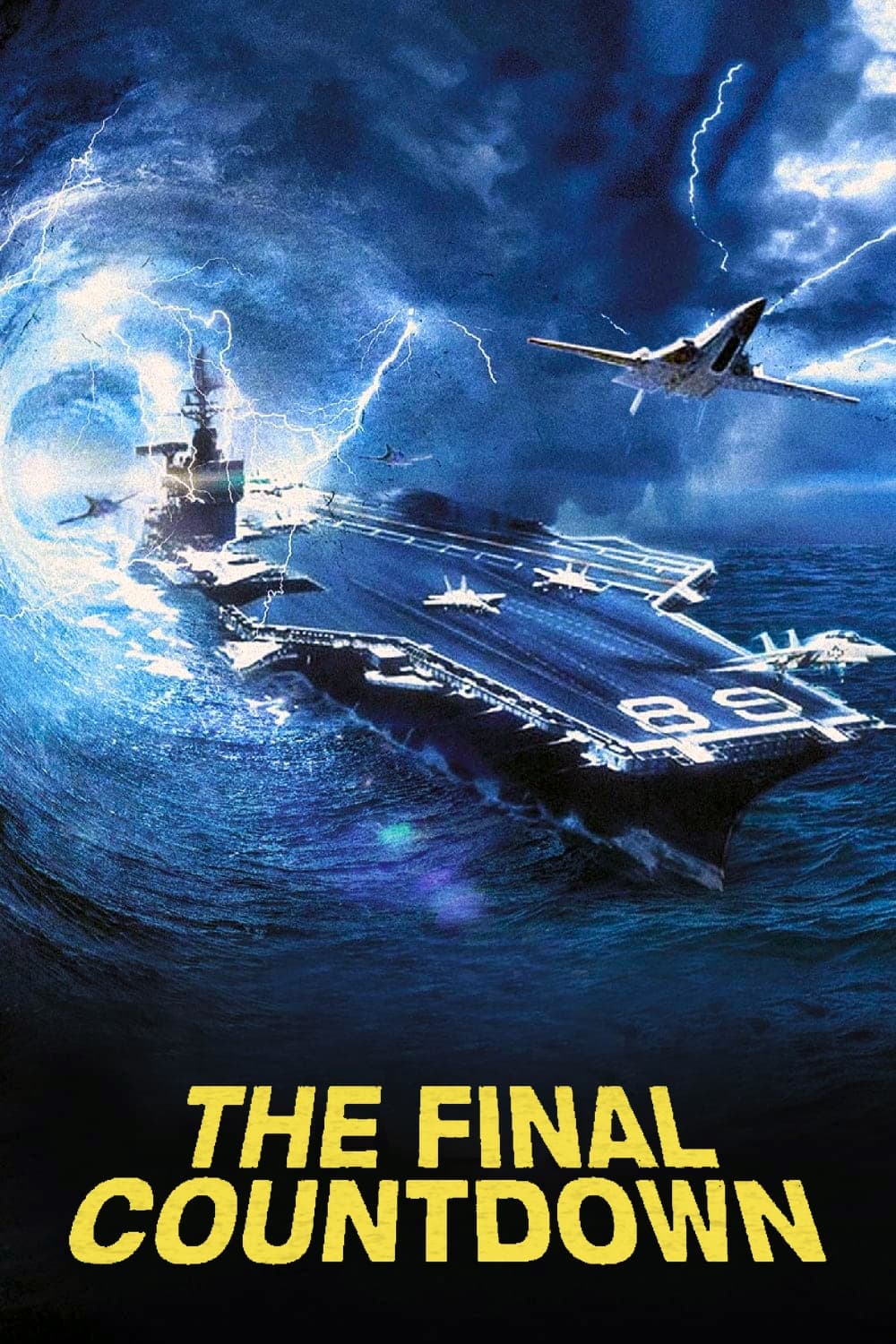
As a passionate cinephile, I’m thrilled to delve into the role of Captain Matthew Yelland aboard the contemporary USS Nimitz. In the usual flow of patrols, our vessel is ensnared in an enigmatic tempest, whisking us back through time to December 7th, 1941 – a day that would soon be marked by infamy: the eve before the Pearl Harbor attack.
As a devoted cinephile, I find myself in an intriguing predicament while watching this captivating fusion of sci-fi and military action. Captain Yelland and his valiant crew are faced with a momentous decision: to interfere with history and potentially alter its course, or to stand back and allow events to unfold as they originally did. The suspense is palpable, the stakes are high, and I can’t help but wonder – what would I do in their shoes?
The Man from Snowy River (1982)
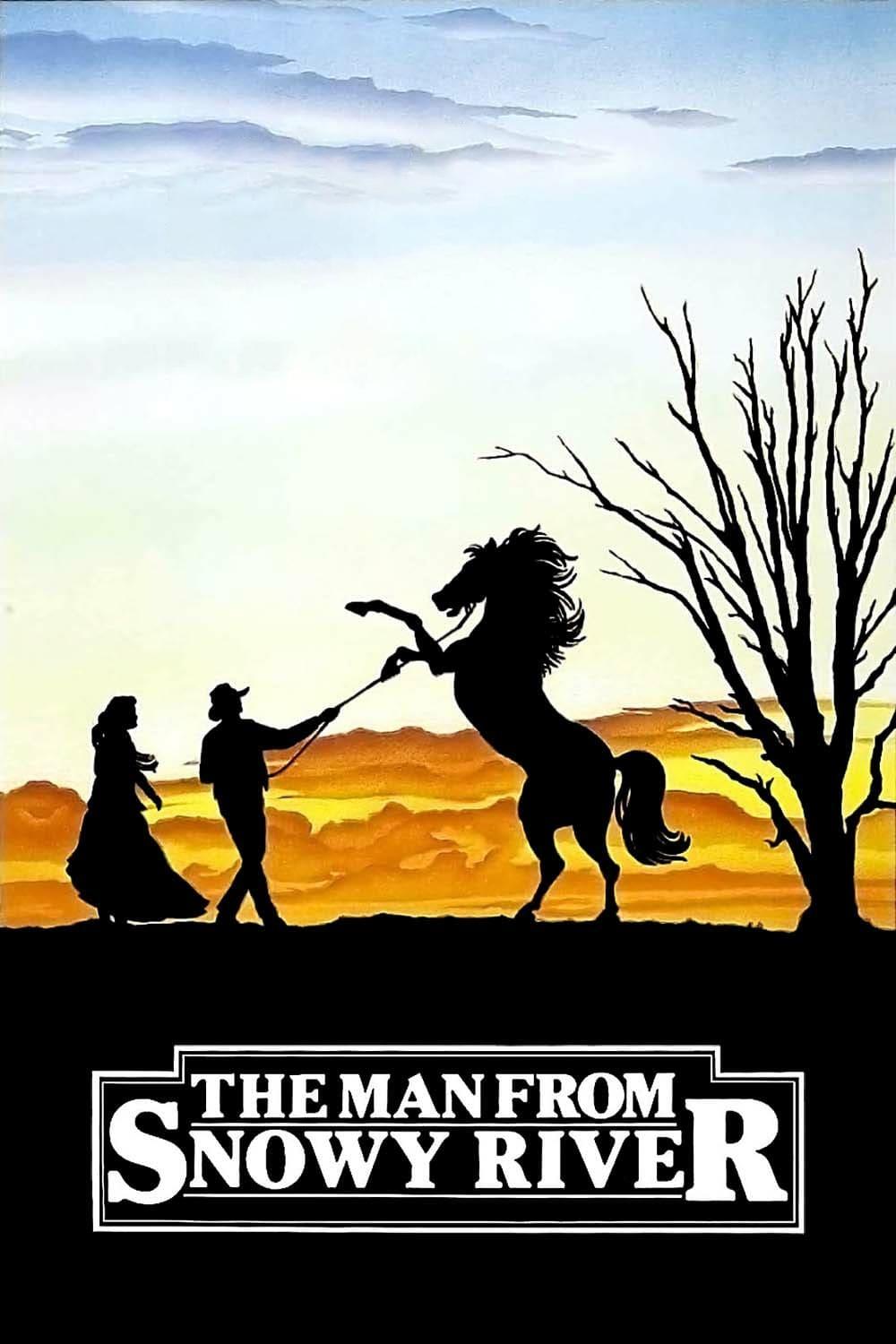
In this Australian Western film, Douglas takes on a unique double role. He depicts not just one character but two: the distinguished and influential rancher named Harrison, as well as the secluded, peg-legged miner known as Spur. Both characters are estranged brothers in the storyline.
The movie narrates the tale of a young individual seeking to demonstrate his value by joining forces with Harrison. The narrative focuses significantly on Douglas’s dual personas, each embodying distinct facets of the pioneering Australian spirit.
Remembrance of Love (1982)
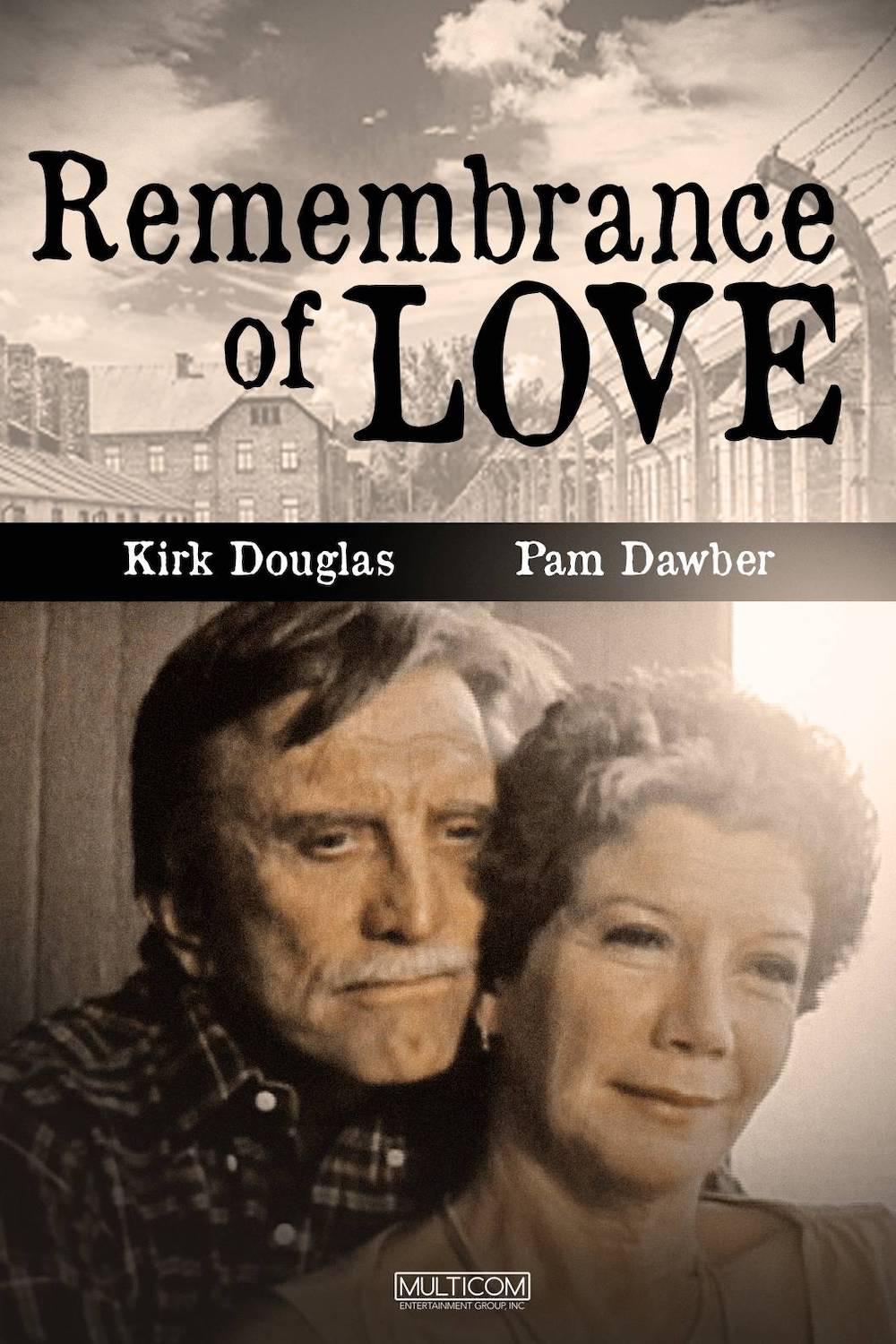
In this TV movie, Douglas assumes the role of Joe Rabin, a man who lived through the Holocaust. Seeking answers about the woman he deeply cared for and lost contact with during the conflict, he journeys to Israel, where they had originated, in hopes of reuniting with her at a reunion of survivors from their shared hometown.
The movie is an emotionally stirring tale that explores themes of memory and the lingering effects of the Holocaust. It narrates a heartfelt journey of enduring love and seeking to reconnect lost relationships.
Eddie Macon’s Run (1983)
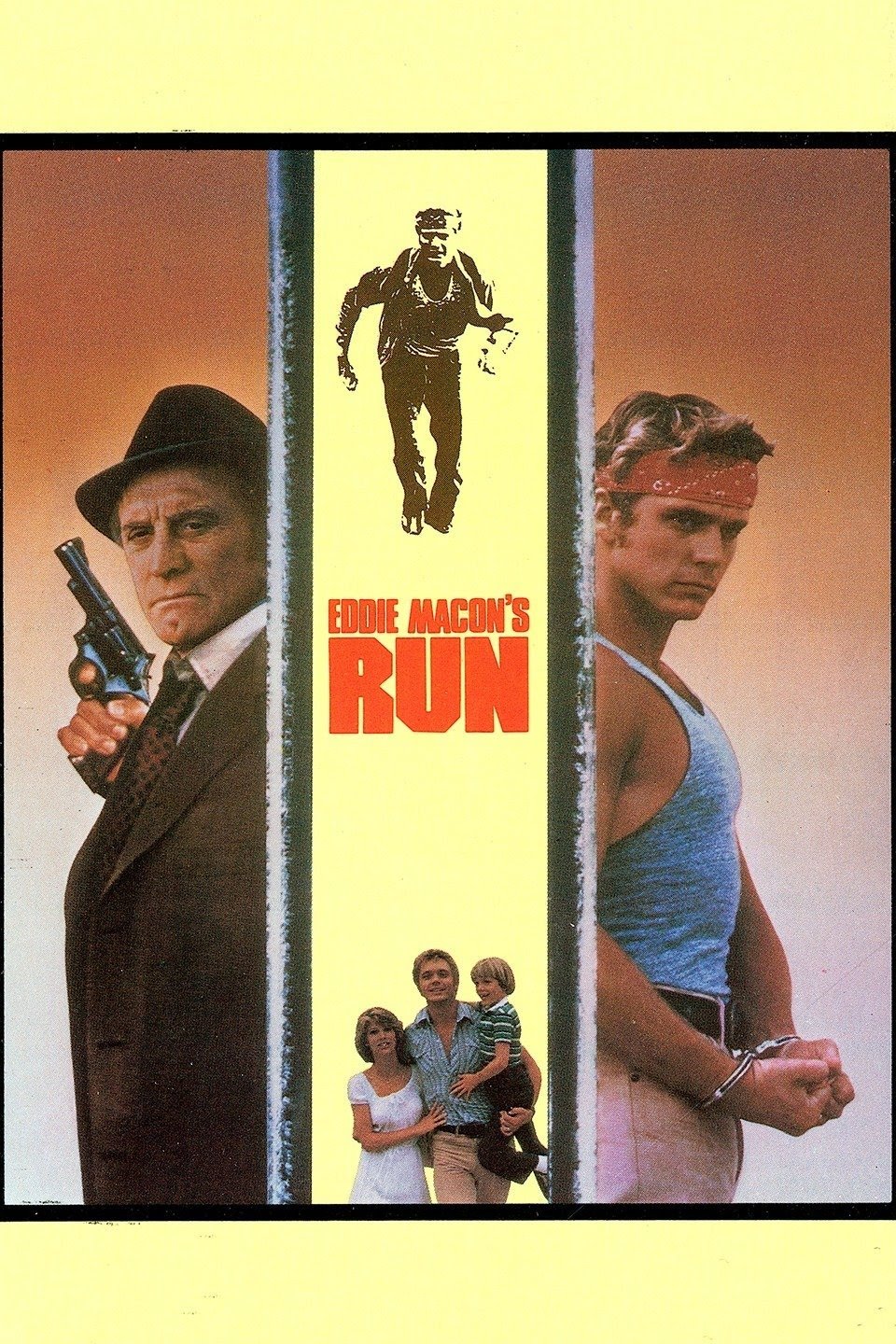
In the action-packed chase thriller, Douglas assumes the role of Marzack, a tenacious prison guard. Pursuing with unwavering persistence is the objective as he chases after Eddie Macon, an inmate who has broken free and aims to reach Mexico to be reunited with his loved ones.
The movie portrays a constant chase, or rather a game of predator and prey, between two individuals. Marzack, a traditional law enforcer, is relentlessly pursuing his quarry, driven by an unyielding determination to apprehend him.
Draw! (1984)
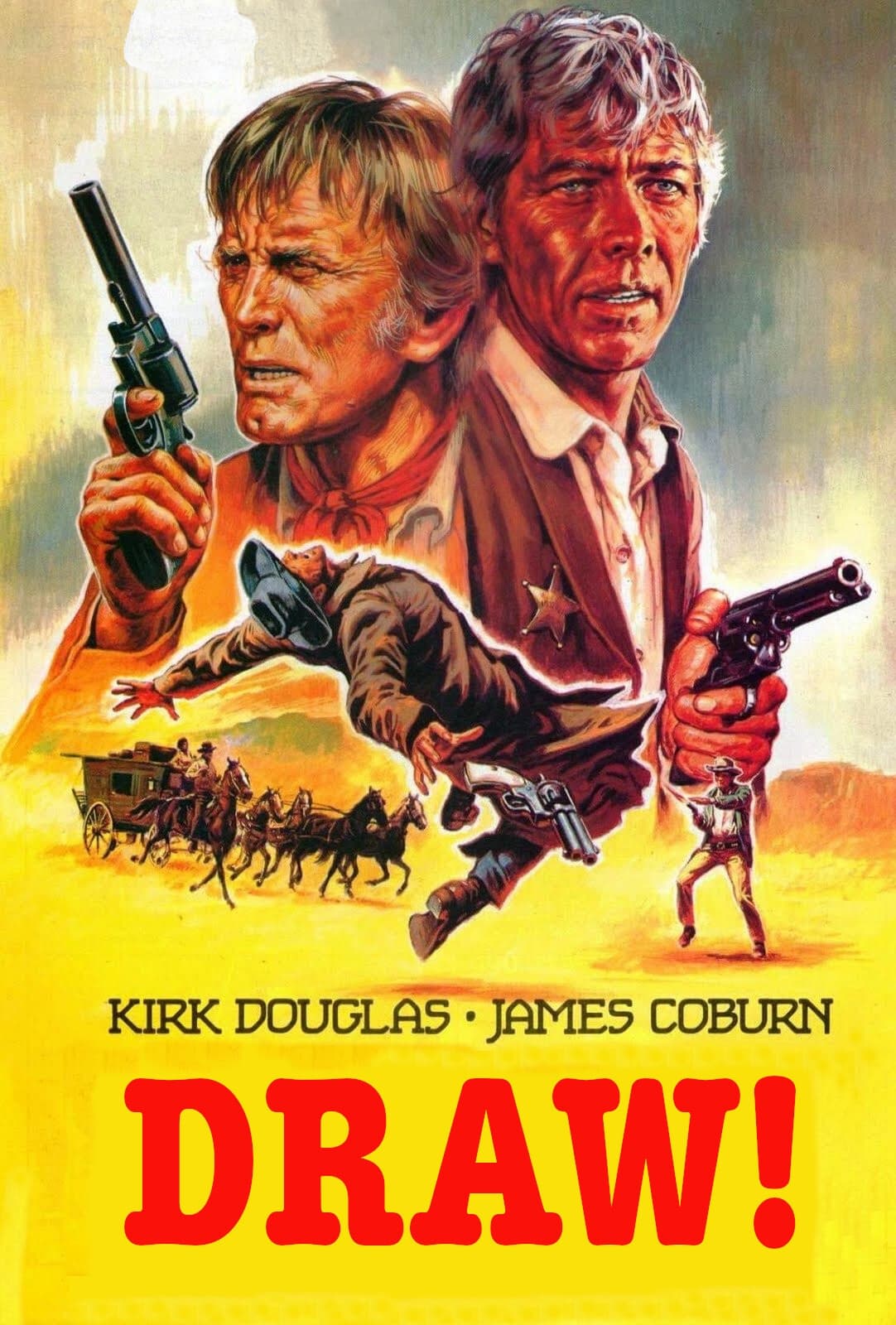
As a movie enthusiast, let me share my thoughts on a humorous Western series that graced our TV screens. In this production, I found myself sharing the limelight with the legendary James Coburn. My role was that of Harry H. Holland, a once-renowned bandit who had seen better days, finding himself in a showdown against a former sheriff. The tension was palpable!
The movie offers a humorous twist on traditional Western themes, with the primary characters encountering unexpected comedic disruptions and experiencing the evolving landscape of the Old West, making their confrontations more complex.
Amos (1985)
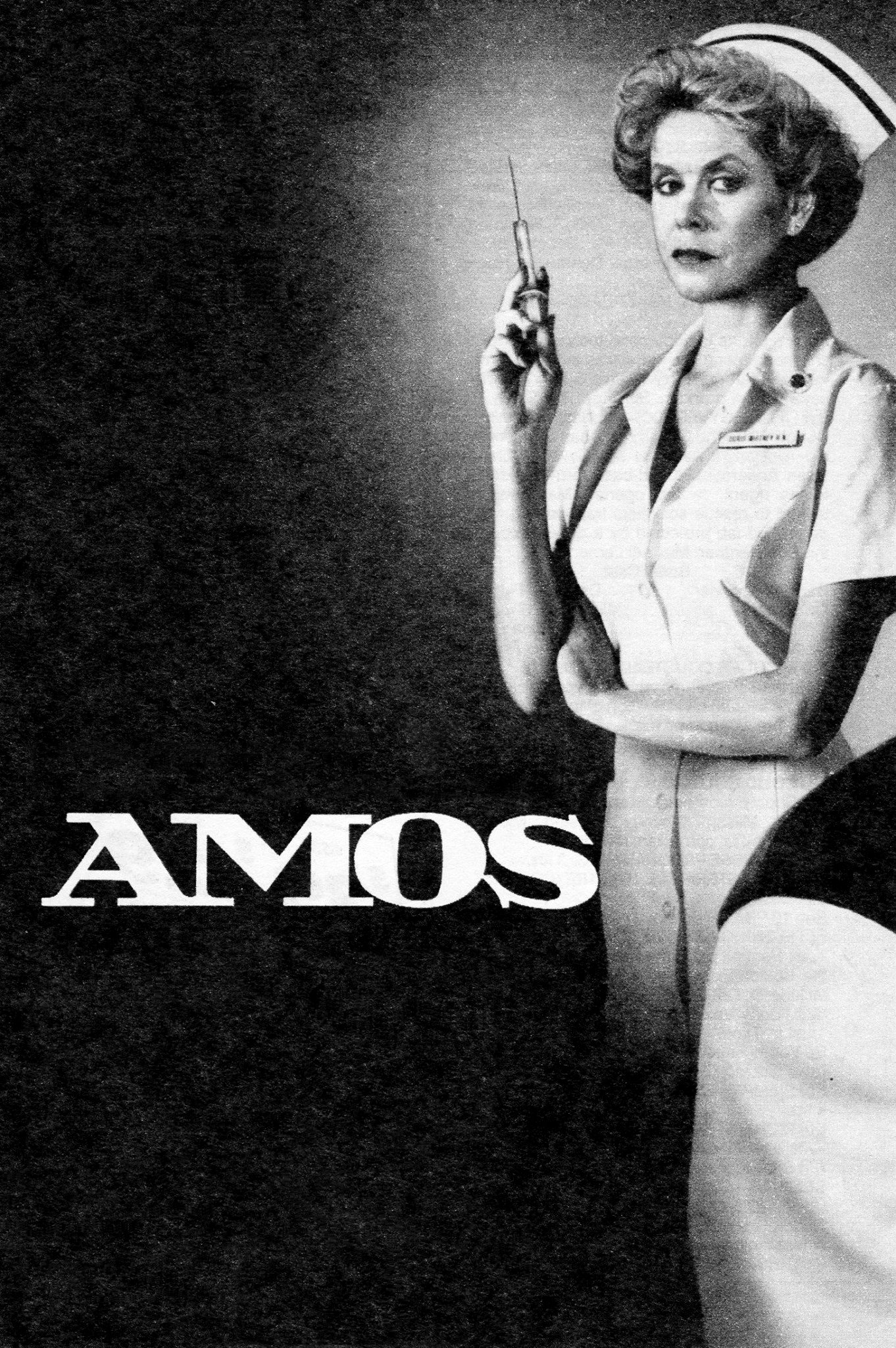
In this TV movie, Douglas takes on the lead character. An older gentleman named Amos Lasher finds himself in a nursing home following an unfortunate incident. While there, he uncovers some disturbing behavior by the head nurse, who mistreats the residents.
Regardless of his physical handicaps, Amos bravely confronts the harsh nurse and endeavors to reveal the appalling state of the institution. This performance garnered Douglas an Emmy nomination.
Or, more informally:
Amos, despite being physically limited, took a stand against the abusive nurse and attempted to shed light on the poor conditions at the home. His portrayal even earned him an Emmy nomination.
Tough Guys (1986)
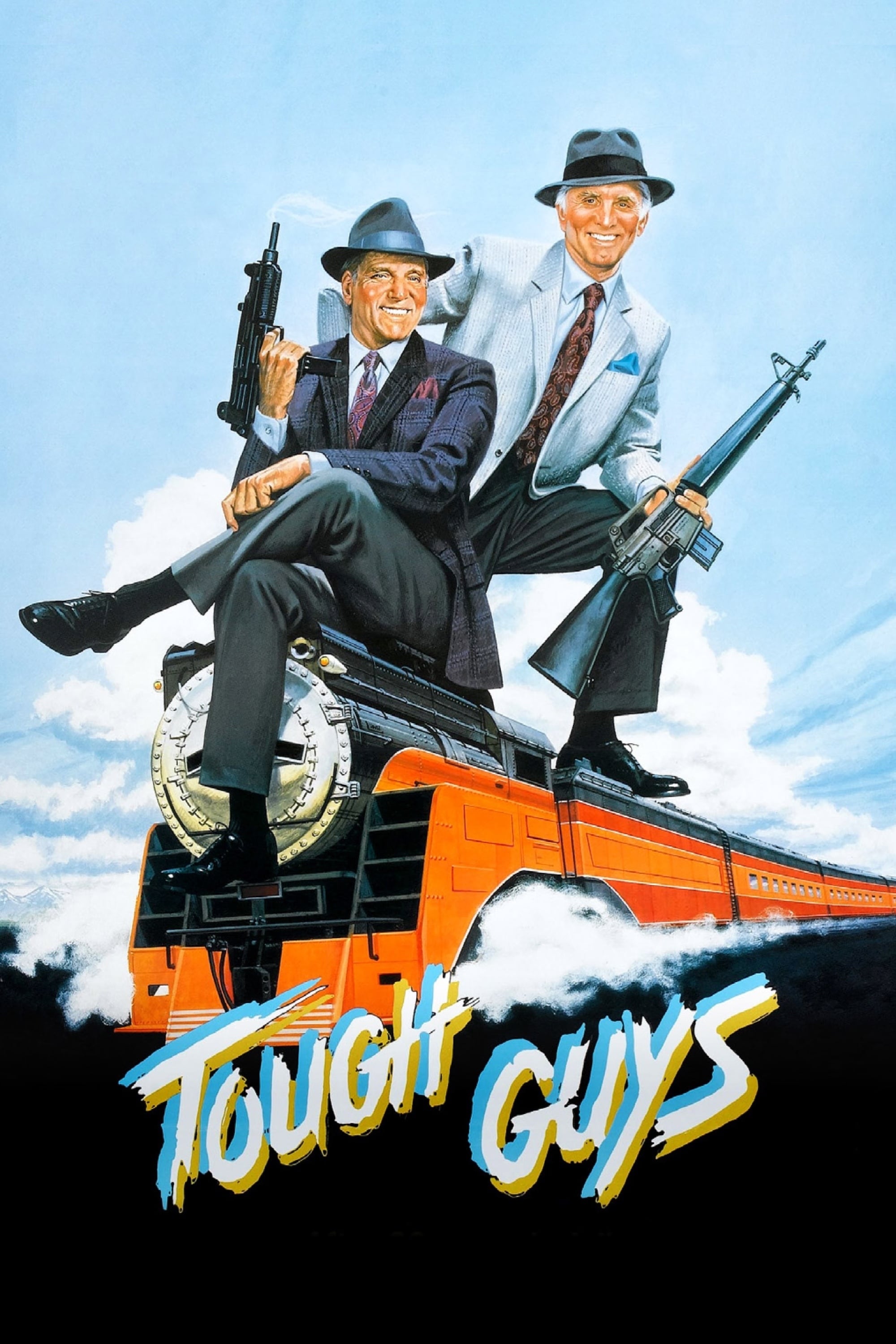
In this action-comedy, Douglas teamed up once more with his regular acting partner Burt Lancaster for their swan song collaboration in cinema. In the story, they portray notorious train bandits who have spent 30 years behind bars and are now freed. They discover that the world has undergone significant transformations and grapple to acclimate themselves to these changes.
In their twilight years, they opt for one final daring bank heist. The movie serves as a heartfelt and amusing homage to the actors’ extended careers and screen camaraderie.
Inherit the Wind (1988)
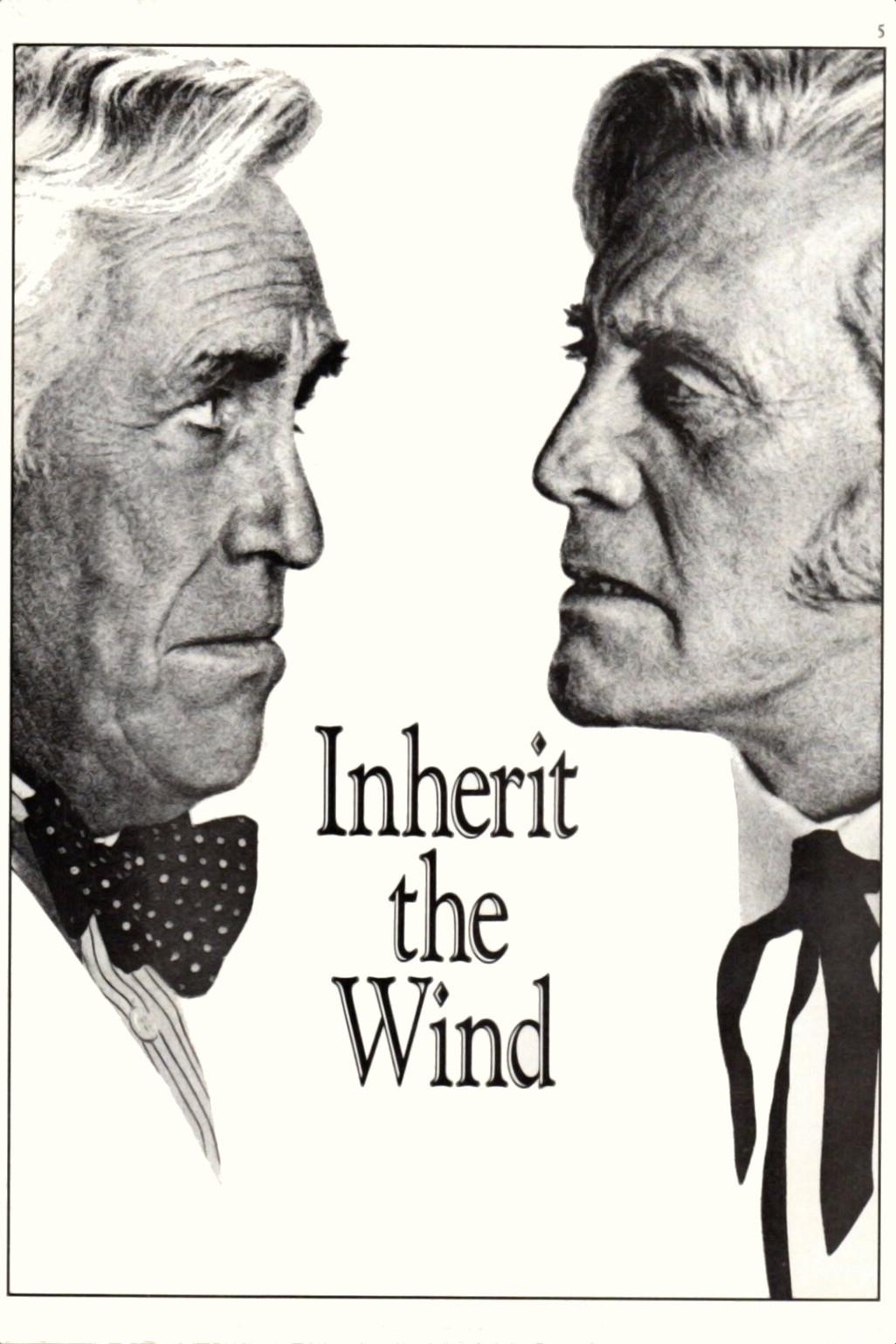
In this TV version of the renowned stage play, Douglas portrays Matthew Harrison Brady, a figure modeled after the historical political figure William Jennings Bryan. The narrative presents an imaginative retelling of the 1925 Scopes Trial, where the issue of teaching evolution in schools was contested.
In this movie, Brady plays the role of both a well-known speaker and a spiritual guide, taking on the position of the defense attorney in a trial involving a young, devoted school teacher. The narrative delves into ideas surrounding faith, scientific reasoning, and intellectual liberty.
Oscar (1991)
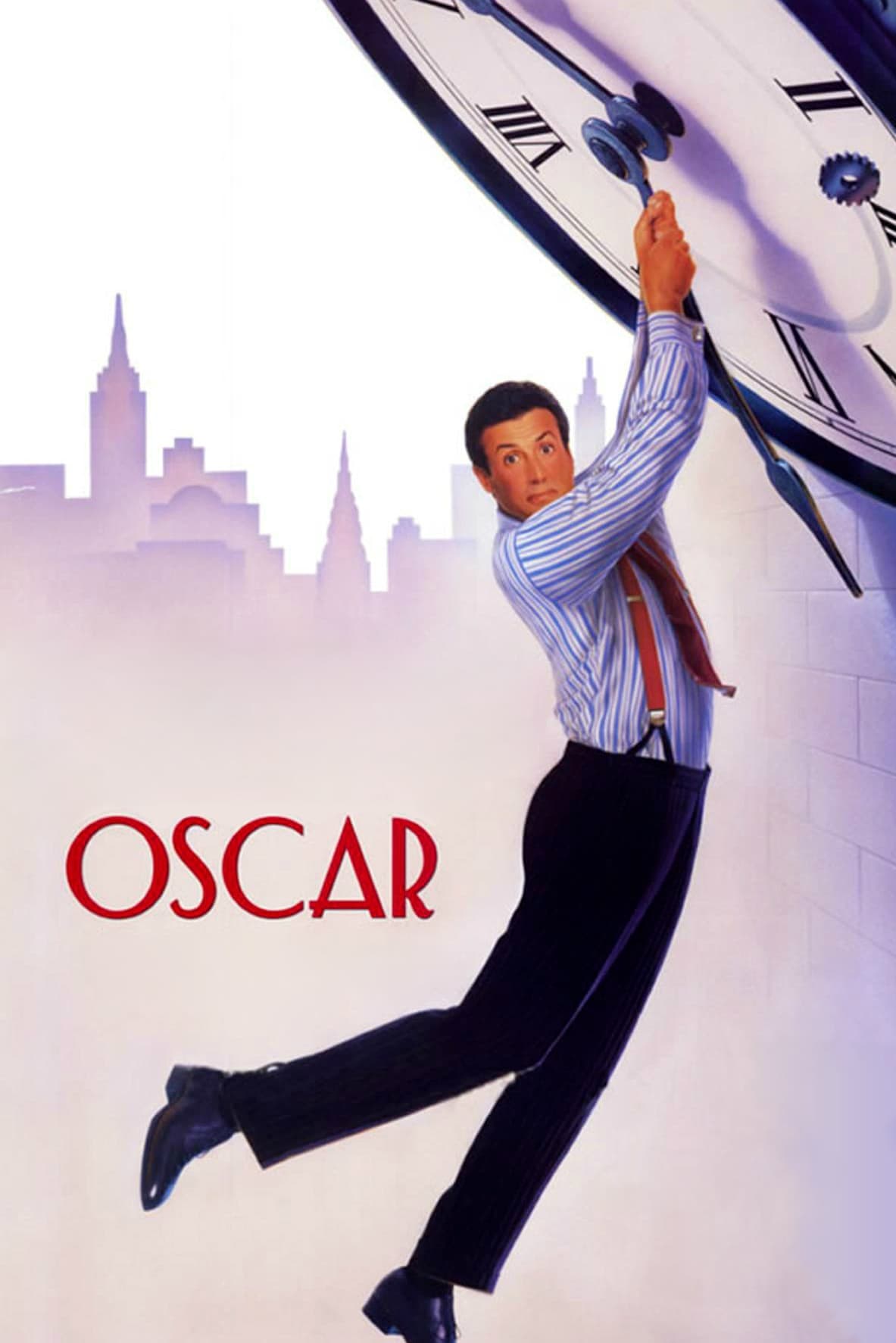
In a short scene, Douglas portrays Eduardo Provolone, a gangster’s ailing father from the 1930s. As he lies on his deathbed, he urges his son to abandon his criminal ways and build a legitimate business instead.
The efforts made by his son to fulfill this pledge result in a chain of amusing misinterpretations and intricate confusions, transforming the movie into a hilarious production featuring numerous characters.
Welcome to Veraz (1991)
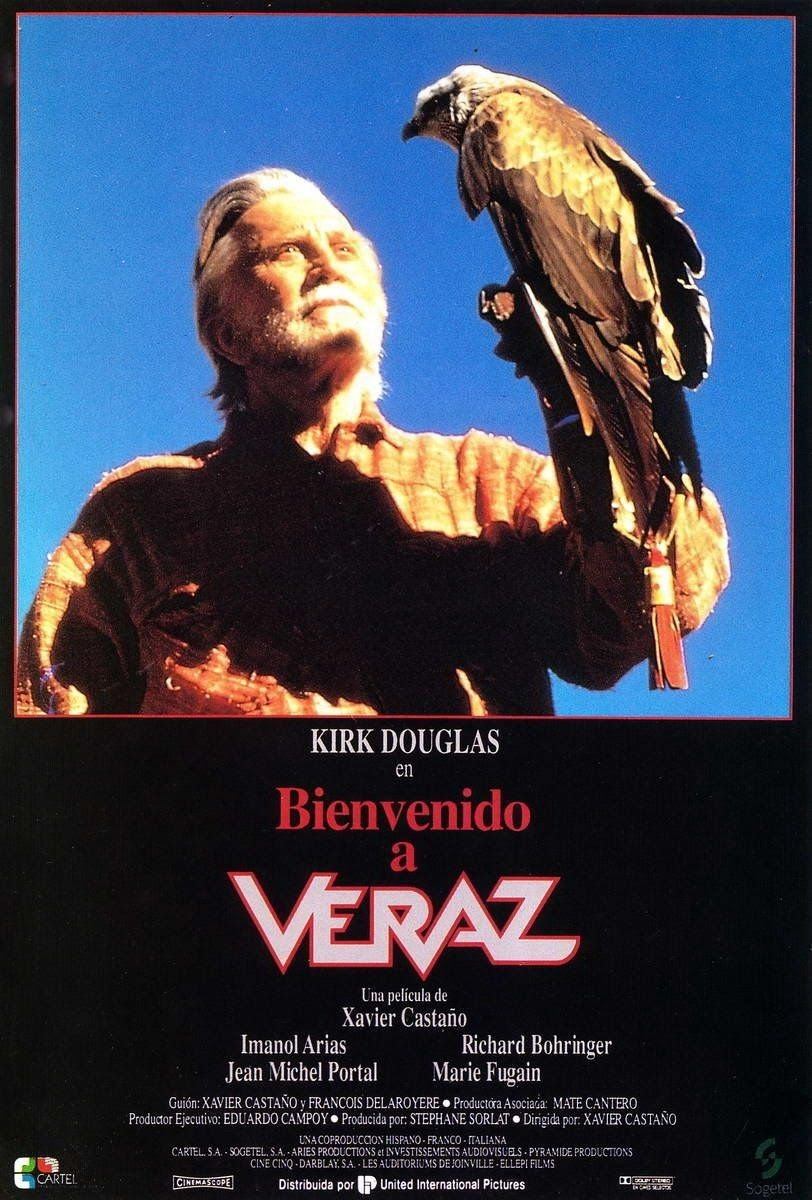
In simpler terms, we can say that Douglas portrays the character of Quentin, an individual who has chosen solitude in the beautiful Pyrenees mountains to escape civilization. A younger person, feeling unfulfilled by contemporary life, seeks out Quentin to follow his lifestyle as a role model.
The film explores themes of nature, freedom, and the search for meaning outside of society.
The Secret (1992)
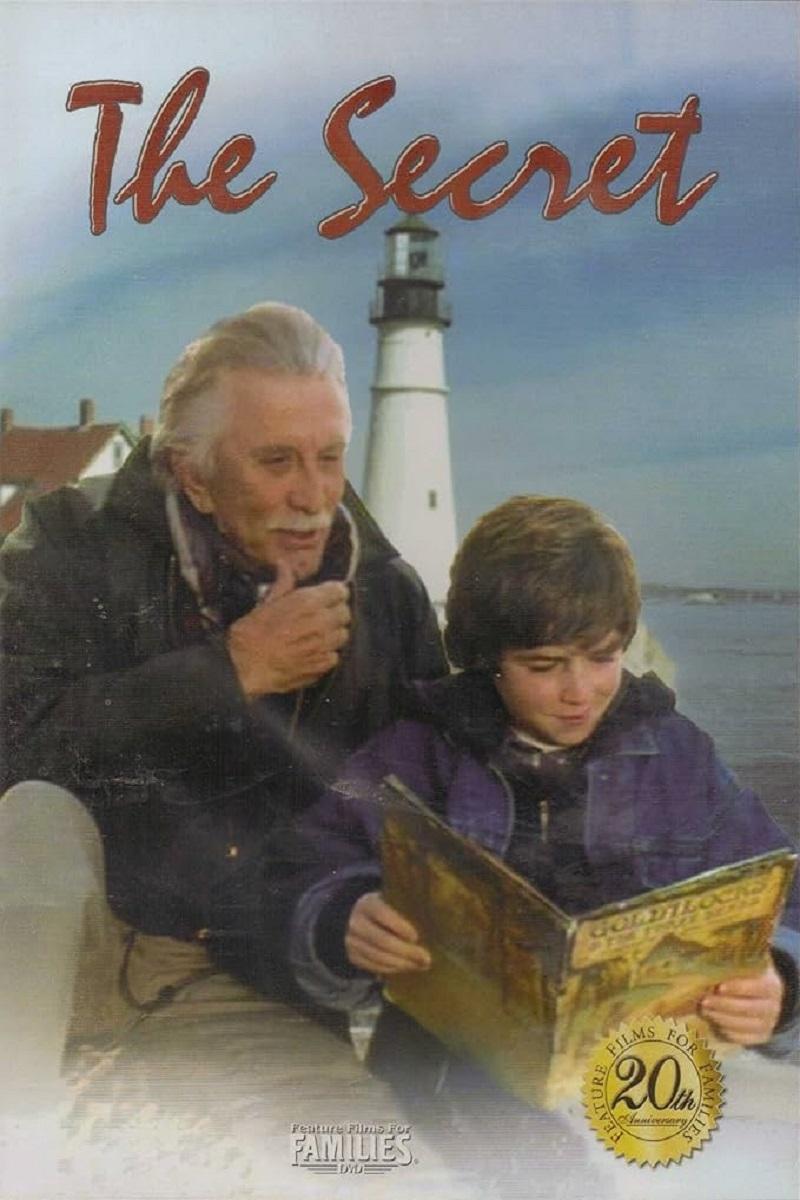
In this TV movie, Douglas portrays Grandpa Mike Dunmore. He’s an individual who simultaneously learns about his dyslexia alongside his grandson, a young boy.
In the movie, the two main characters form a strong connection as they face a common hurdle together. Through mutual aid, they manage to conquer this challenge. This family-oriented film beautifully portrays themes of empathy and assistance.
Greedy (1994)
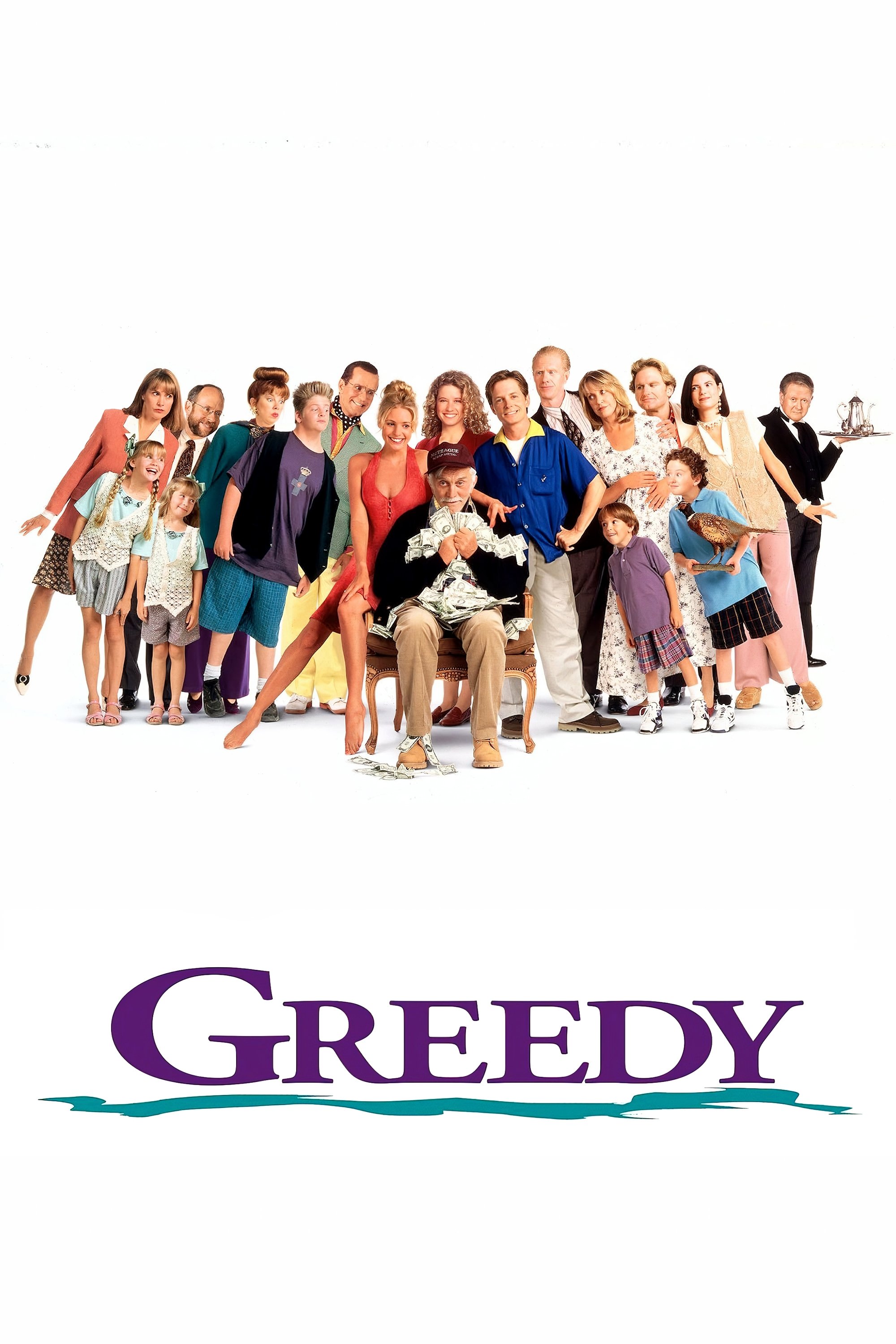
Douglas assumes the role of Uncle Joe McTeague, a wealthy and senior scrap metal magnate who is nearing the end of his life. A horde of his covetous family members flock to him, each harboring aspirations of inheriting his immense wealth.
In the movie, an indifferent relative – the one least concerned with wealth – is introduced to win over the elderly patriarch. This film offers a witty blend of humor and drama, exploring themes of family dynamics and inheritance.
Diamonds (1999)
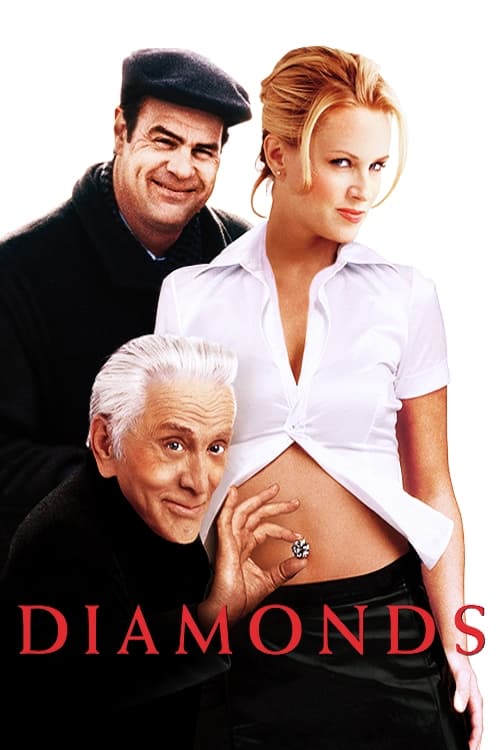
In simpler terms, the story revolves around Douglas, who takes on the role of Harry Agensky, an older man and a retired boxing champion. After recovering from a stroke, he proposes a road trip with his son and grandson. The purpose of this journey is to locate a hidden stash of diamonds that was once gifted to him by a gangster in the past.
The movie centers around a comedy-drama narrative, focusing on three generations of a family mending their relationships. It marked one of Michael Douglas’s last significant acting appearances in a full-length film.
It Runs in the Family (2003)

In this movie, it’s a real family production with Kirk Douglas, his son Michael Douglas, and grandson Cameron Douglas in the lead roles. Here, Kirk portrays Mitchell Gromberg, the head of a troubled New York family.
The movie delves into the connections among the three generations of the Gromberg family, each dealing with their own personal and work-related hurdles. Uniquely, it’s the one production where all three actors appear jointly.
Illusion (2004)

In one of his final acting performances, Douglas portrays Donald Baines – a once celebrated movie director now battling terminal illness. A strange entity appears to him, revealing glimpses into the life of his long-lost son, whom he hasn’t set eyes on for years.
Baines observes the tale of his son’s life, romance, and sorrow, much like watching one of his personal films. This movie conveys a heartfelt narrative about remorse, pardon, and the potency of affection.
Share which Kirk Douglas performance you find the most powerful in the comments.
Read More
- 2025 Crypto Wallets: Secure, Smart, and Surprisingly Simple!
- Gold Rate Forecast
- Brown Dust 2 Mirror Wars (PvP) Tier List – July 2025
- Banks & Shadows: A 2026 Outlook
- HSR 3.7 story ending explained: What happened to the Chrysos Heirs?
- The 10 Most Beautiful Women in the World for 2026, According to the Golden Ratio
- ETH PREDICTION. ETH cryptocurrency
- Gay Actors Who Are Notoriously Private About Their Lives
- 9 Video Games That Reshaped Our Moral Lens
- The Weight of Choice: Chipotle and Dutch Bros
2025-08-11 11:55